Updated on December 28, 2019
Day 6 of 2019 Western US Tour, July 17, Yellowstone Geysers
A day spent on watching various geysers in the lower-left corner of Yellowstone’s figure-8 loop.
Since we had a rather action-packed day the previous day, from before dawn till after dusk, we woke up reasonably late today and checked out of historic Old Faithful Inn at 10am. Our plan for the day was to tour Upper Geyser Basin, from Old Faithful Geyser all the way to Morning Glory Pool in the morning, and then various clusters of geysers in the lower-left part of Yellowstone’s figure-8 loop later in the day, before reaching Lake Yellowstone Hotel where we would be spending the night.
Upper Geyser Basin
And there were lots of (probably too many) geysers along the way. The day’s warmer, and my nose seemed to have adapted to sulfide smell from the geysers, so that’s two miseries from yesterday being taken care of.
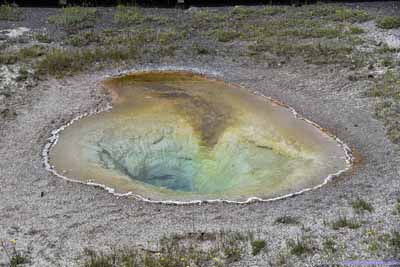
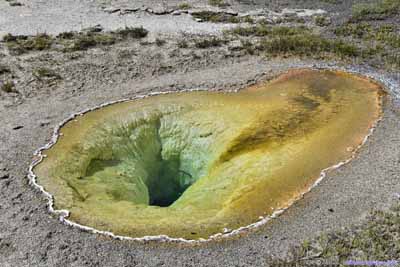 Belgian PoolNot many pools in Yellowstone were named after nations. For Belgian Pool, “it was renamed after a visitor from Belgium fell into it and died in 1929”.
Belgian PoolNot many pools in Yellowstone were named after nations. For Belgian Pool, “it was renamed after a visitor from Belgium fell into it and died in 1929”.
Then we bumped into Grand Geyser, world’s tallest predictable geyser, the only geyser along the way that had arrays of benches around its perimeter, like the famous Old Faithful.
Click for information about Grand Geyser
Grand Geyser
Known for the height and beauty of its eruptions, Grand geyser’s activity is linked with that of nearby geysers. An intricate sequence of events that takes place over 7 to 15 hours culminates in explosions of boiling water and steam from Grand’s pool. A full eruption can last from 9 to 12 minutes and reach heights of 180 feet or more.
The Grand Group
The prominent sinter bowl next to Grand Geyser is Turban Geyser. A small crack left of Turban’s sinter shoulder is Vent Geyser. These three geysers share a subterranean source of hot water.
Turban Geyser erupts more frequently than the other two. Grand will erupt just before or after Turban erupts. The water level in Grand fluctuates with each Turban eruption, usually dropping noticeable. As an eruption of Grand Geyser nears, boiling water surges over the rim of its pool. Within seconds, Grand will erupt. Finally, Vent Geyser comes to life, jetting water to heights of 75 feet. Though Grand’s eruptions last only about 10 minutes, Vent and Turban can continue to erupt for an hour or more.
Source: Information board nearby.
But since its eruption interval was rather long, we didn’t feel like waiting here was a sensible choice. So we moved on.
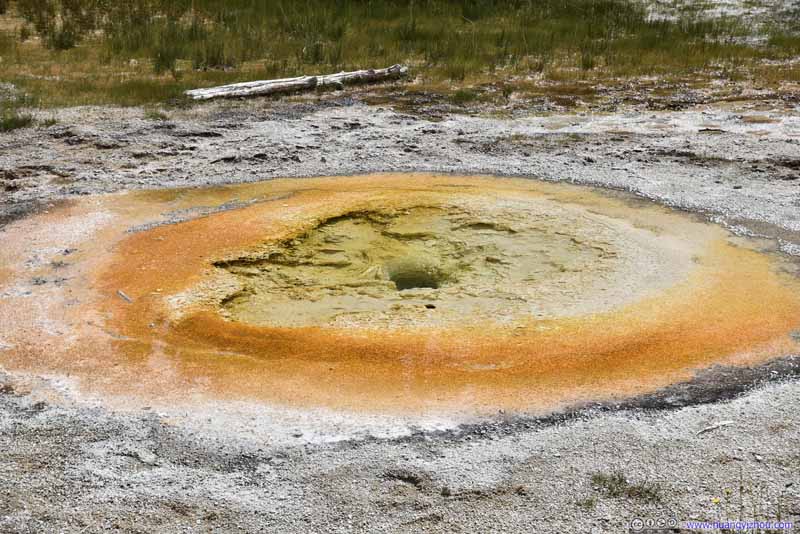
Economic Geyser“Economic Geyser is believed to be named for its behavior during its active days. It is reported that most of the water ejected drained back into the vent after the eruption, thus making the geyser appear to conserve its water.”
And we found a bastard that certainly ignored signs to keep on the boardwalk.
Click for information about Beauty and Chromatic Pools
Living Color
The vivid colors of Beauty Pool’s basin and runoff channels are created by microscopic lifeforms. Incredibly, these organisms survive and thrive in an environment that would be lethal to us and most other living creatures. Scientists are just beginning to understand these lifeforms; amazingly, hot spring environments may sustain a diversity of organisms rivaling that of terrestrial rain forests.
Thermal Feature Color Gradient
In the geyser basins with alkaline or neutral pH (Upper, Midway, Lower, West Thumb, and Mammoth Hot Springs), color is primarily a function of what lives and grows in a feature. The graph to the right represents the upper environmental temperature limits for life and the corresponding colors (which vary over the course of a year as a consequence of seasonal changes) in the features or runoff channels.
Hidden Connections
Beauty Pool shares an underground link with Chromatic Pool (to your immediate left). When Beauty Pool is full, Chromatic Pool’s water level is much lower; sometimes the reverse may be observed. Many other features in the Upper Geyser Basin have demonstrated similar behavior. The factors affecting such exchanges of function are many and may include phenomena such as earthquakes and continuing mineral accumulations in each feature’s underground “plumbing.”
Source: Information board nearby.
Then we came up to Grotto and Rocket Geyser, a rather unique duet of geyser eruptions. Probably because of their ugliness, they were not the most famous in the park.
Click for information about Grotto Geyser
Grotto is perhaps the most unusual of Yellowstone’s geysers. Geologists believe that hundreds (or thousands) of years ago, Grotto Geyser emerged in a stand of dead or dying trees and, through time, deposited layer upon layer of siliceous sinter (silica) over the stumps and branches.
Fast Facts:
• Grotto’s initial eruption can reach heights of more than 40 feet, but then generally subsides to about 15 feet.
• The duration of Grotto’s eruption can vary from about 50 minutes to more than 24 hours.
Source: Information board nearby.
Then, we found another little creature running around.
Finally, we were at the end of our morning excursion, Morning Glory Pool.
Standing by its side, it’s hard to gauge its depth from its concave structure that displayed various colors, each unique to a particular kind of bacteria.
It used to have a blue-ish color, but with many visitors tossing coins into the pool and clogging entryways, hot water supply and thus appearances of the pool had changed, to a green-ish color nowadays.
On our way back, we took a detour on a trail leading to Punch Bowl, visiting a few more geysers along the way.
Grand Geyser Eruption
At this time, there was a clamor across Firehole River, about Grand Geyser bursting into eruption.
So I rushed there, and caught the end of its eruption.
After that, we resumed our tour.
Click for information about Castle Geyser
The massive cone is a sign of old age. Eruption after eruption, probably for thousands of years, scalding water has deposited this silica mineral formation. By contrast, Old Faithful’s fledgling cone may be only a few hundred years old.
Castle Geyser has dramatically changed its surroundings. By flooding the area with hot, silica-rich water, the geyser has devoured part of a pine forest and turned it into a thermal desert. Tree skeletons are entombed within the cone.
Castle Geyser’s eruptions are predictable; two per day are typically recorded.
Source: Information board nearby.
After that, we were back at Old Faithful Inn. It’s 1pm, lunch time. For that, we headed for Old Faithful Lodge Cafeteria, which was one of the best decisions we made in the park.
It had long been a notion to me that America’s National parks were like the wild frontier away from civilization, where other than hunting, man had to resort to MRE-grade food, I mean, in a glamorous way, like chocolate bar and croissant bread. Unlike many of my friends, in such a place of wonder I would be more than okay with the latter two, I just didn’t expect I can have this:
They called this “Grain & Noodle Bowls”, which was like Panda Express, plus a few lovely toppings and wonderful sauces, and crucially, minus all the excessive and unhealthy cooking oil. And given its premium location inside a park, the larger bowl (with two proteins) seemed like a bargain at 13.95 before taxes. Yes, I had to wait in line to get such bowls, but so was my school’s Panda Express. And for the lucky few with a window seat, Old Faithful Geyser was just out of the window. How wonderful my life could be if they expanded this back home.
Third Eruption of Old Faithful Geyser
After lunch, it was close to another forecasted eruption of Old Faithful Geyser. So we watched it again, this time, among more crowds.
A video of the eruption was under processing.
After that, we got onto our car and started our tour of various clusters of geysers along Grand Loop Road. We planned to visit Black Sand Basin first, but its parking lot was tiny and full, so we moved on next to Biscuit Basin.
Biscuit Basin
Click for information about Biscuit Basin
This thermal basin is particularly volatile, unpredictable. On August 17. 1959, an earthquake recorded at 7.5 on the Richter scale had its epicenter just a few miles to the northwest. Four days later, Sapphire Pool began to erupt violently, blowing away the large rock biscuits around the crater. Biscuit Basin was named for those biscuit-shaped mineral formations.
Source: Information board nearby.
Firehole Lake Loop
After that, we headed for Firehole Lake area, which consisted of a one-lane detour (Northbound only) from Grand Loop Road, with many roadside geysers.
Judging by their size, the following two geysers should be famous. But it seemed that not many visitors to Yellowstone would take this detour and visit them.
A larger parking lot (20 spaces) was located at the side of Firehole, Black Warrior and Hot Lake, which were inter-connected. Like most others, we stopped there for a walk.
It’s interesting to note that I only recalled seeing sign of “Young Hopeful Geyser” in the area (photo above). However, by Wikipedia, “Young Hopeful is currently dormant” with all the eruptions coming from Grey Bulger Geyser. By this it seemed that “Young Hopeful” was no longer hopeful after all.
After that, Black Warrior Lake was just across the road.
At the exit of Firehole Lake Drive was Fountain Paint Pot parking area.
Fountain Paint Pot Area
Then there’s the famous Fountain Paint Pot, with its lovely bursts of bubbles that looked teleported from some post-apocalyptic world.
Click for information about Fountain Paint Pot
Making Mud
This vat of bubbling mud contains the perfect mix of ingredients to create mudpots: heat, gases, water, volcanic rock, minerals, acid, and even living microorganisms! Heat-loving “thermopiles” consume some of the gases and help convert them into sulfuric acid. The acid breaks down rock to form clay — clay that mixes with water in mudpots.
Year after year, this huge mudpot — called “Mammoth Paint Pots” until 1927 — has changed with the seasons. Fountain Paint Pots spits thin, sloppy mud in spring. In drier conditions, thick bubbles of mud and gas ooze through cracks, then burst and collapse, forming cone-shaped mounds.
Understanding the Extremes
Earth’s extreme habitats are studied by scientists who seek to understand life’s ultimate limits. Knowledge gained from Earth-bound studies aids scientists who search for life (and evidence of its past existence) in the extreme environments found elsewhere in our solar system.
Source: Information board nearby.
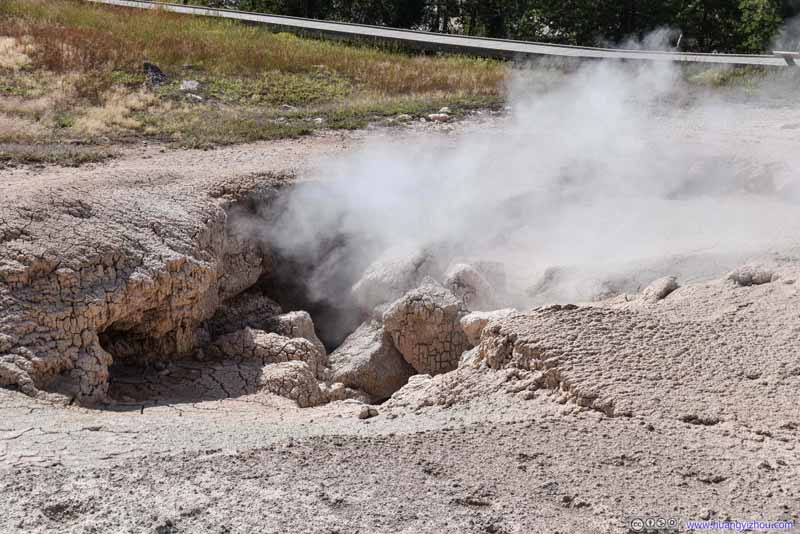
Red SpouterCreated by an earthquake in 1959, Red Sprouter splashes muddy water in spring, mud in summer and vents steam in autumn.
After this, next on our itinerary was Grand Prismatic Spring, the largest hot spring in the United States, and the third largest in the world. (One should certainly rate it as the most beautiful.)
Grand Prismatic Spring Overlook
Arguably the best view of Grand Prismatic was from a nearby hill, where one had to hike 1.3km from Fairy Falls Trailhead parking lot. Probably because of Grand Prismatic’s popularity and Fairy Fall’s remote location (4km of hiking one way from parking lot), almost everyone at Fairy Falls Trailhead was heading for Grand Prismatic. As a result, finding parking spots was challenging at the trailhead.
The trail to overlook was slightly dusty but otherwise in perfect condition, along meadow decorated with wildflowers.
Finally, we were on the hill overlooking Grand Prismatic Spring in all its splendor, beyond what words can describe.
Compared with its huge amounts of visitors, the hillside overlook with its limited space was crowded all the time, which could make taking the perfect photo/selfie difficult.
And after that, we headed back.
Grand Prismatic Spring Up Close
The worst parking experience in the park, period.
The official parking lot only had about 60-70 spaces, so more often than not vehicles queued up all the way to the main park road. Then people decided it might be better off to just park on the side of main park road, and NPS sort of had to condone this. The result was that a stretch of main park road, about a kilometer long, was parked with cars all day long, with traffic jam of cars circling around for a parking spot.
Conclusion: bring patience, prepare to spend 30 minutes on parking.
Click for information about Excelsior Geyser
In the 1880s Excelsior Geyser erupted in bursts 50 to 300 feet high. The thermal violence formed the jagged crater and apparently ruptured the geyser’s underground system, causing eruptions to cease after 1890.
On September 14, 1985, Excelsior roared back to life with forty-seven hours of major eruptions. It is impossible to predict when this dormant but powerful geyser’s next eruption will occur.
Source: Information board nearby.
It was a rather windy day at Excelsior Geyser (and I guessed so for the season), there were too many hats and scarves inside Excelsior Geyser, obviously blown off track from unsuspecting visitors. Not a very pleasant sight.
From the hill overlooking Grand Prismatic, one might appreciate its gigantic scale and wide spectrum of color; and here by its side, I think it’s the transient beauty of shifting veil of steam that’s most adored.
Finally towards the end of day, we were back at Black Sand Basin, probably the smallest geyser basin of the day. It’s past 7pm and parking had certainly eased up.
Black Sand Basin
After that, it’s more than an hour’s drive through dense forest to Lake Yellowstone Hotel, where we would be spending the night.
Lake Yellowstone Hotel
The type of room we booked was individual cottages 100 meters away, but the place to checkin was still Lake Yellowstone Hotel.
The original lake hotel was constructed in 1891, making it the oldest operating hotel in the park. In its lobby still hung pictures of wagons in front of original Lake Hotel, of guests arriving by steamboats touring Yellowstone back in 19-th Century.
Since then, the layout of the lobby barely changed, with guests enjoying a chatful night accompanied by views of Yellowstone Lake under setting sun.
Just across the hotel entrance was an overlook of Yellowstone Lake. After we checked in and received keys to our overnight cottage, we enjoyed the breeze and lovely views of distant snowy peaks under setting sun, before heading off for dinner.
It’s already half past 8 and near its closing time, but the Lake Hotel’s dining hall was still popular with guests. So we decided to head for the nearby Lake Lodge and tried out its cafeteria.
Unfortunately, I missed the “healthy Panda Express” from lunch so much, that I didn’t find dinner and Lake Lodge cafeteria much appealing (another reason was that it’s near closing time too so choices were limited). But after dinner, we had the surprise encounter of a few bison hanging out in the field just across Lake Lodge, that certainly light up our day.
Bison Encounter
END
![]() Day 6 of 2019 Western US Tour, July 17, Yellowstone Geysers by Huang's Site is licensed under a Creative Commons Attribution-NonCommercial-ShareAlike 4.0 International License.
Day 6 of 2019 Western US Tour, July 17, Yellowstone Geysers by Huang's Site is licensed under a Creative Commons Attribution-NonCommercial-ShareAlike 4.0 International License.

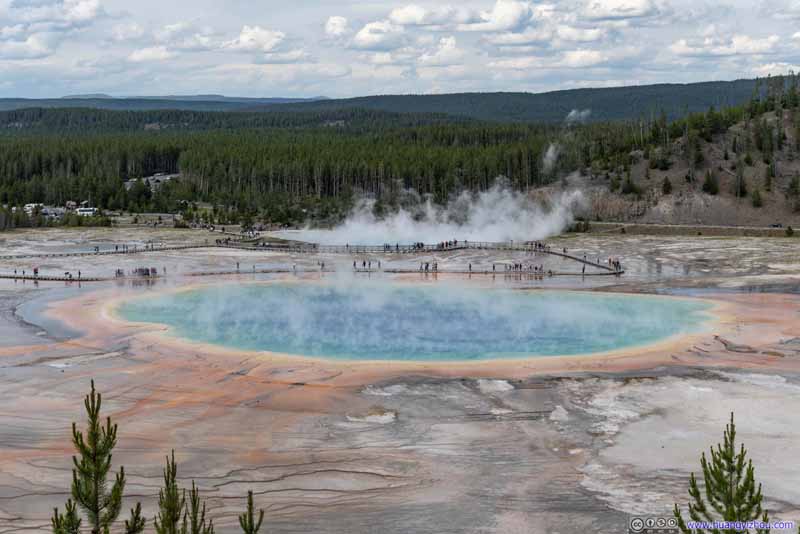
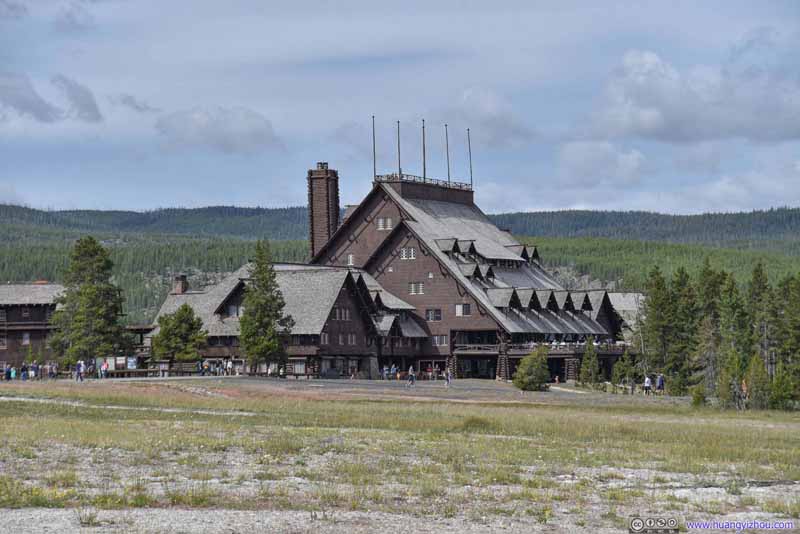
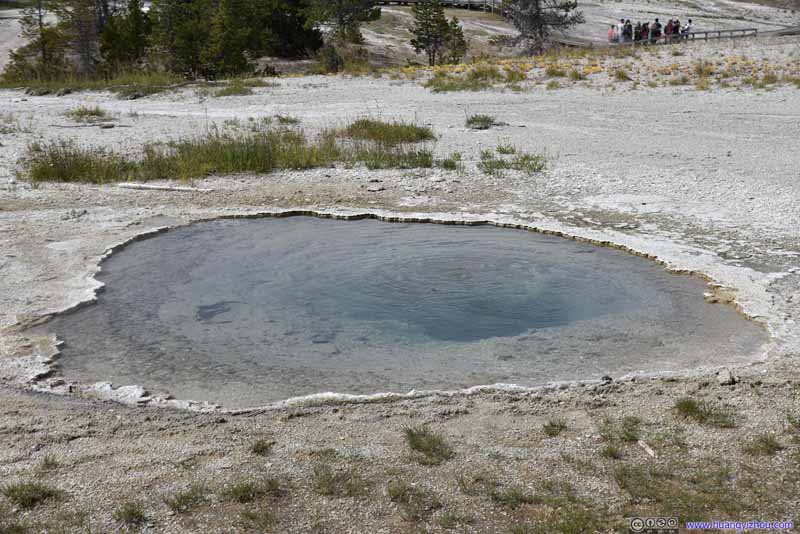
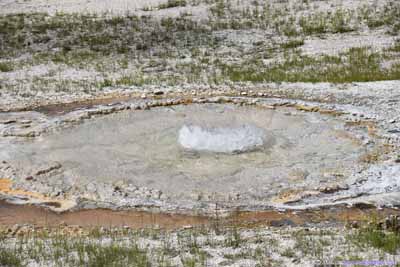
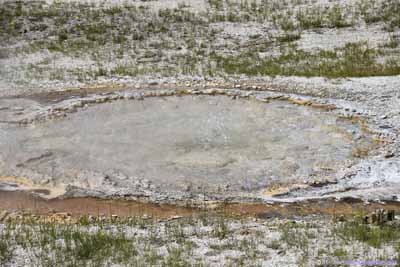
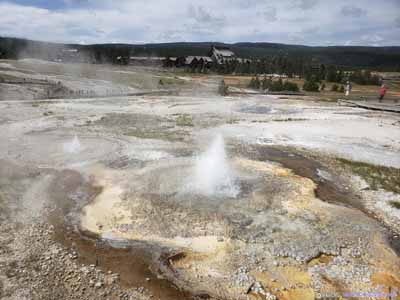
.jpg)
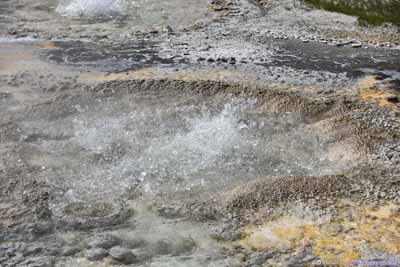
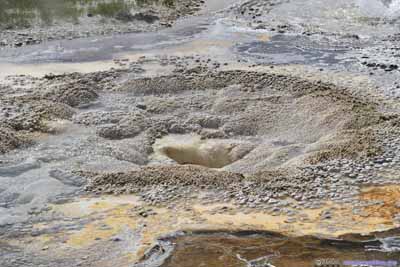
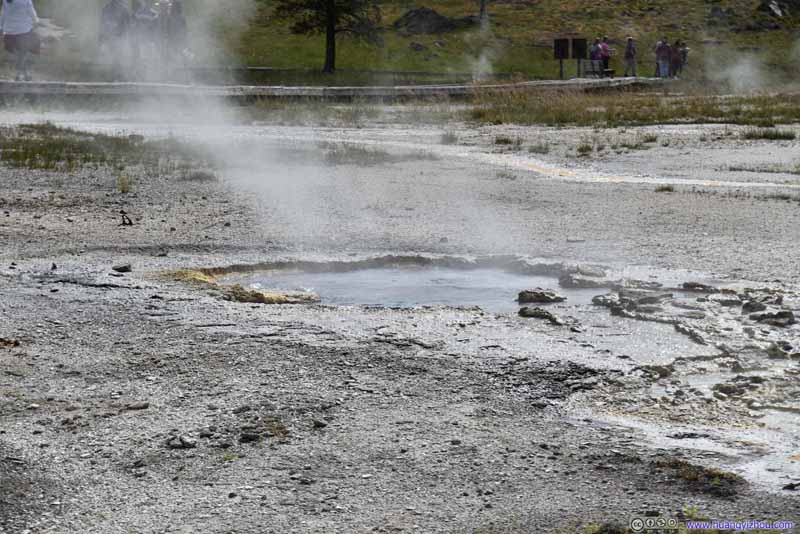
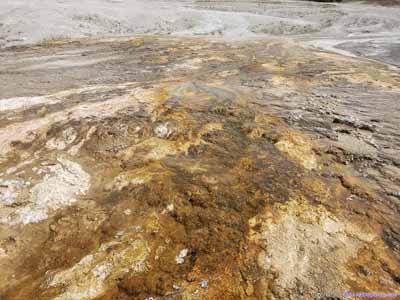
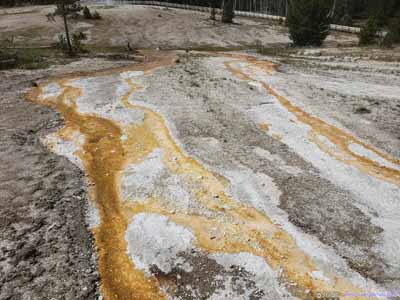
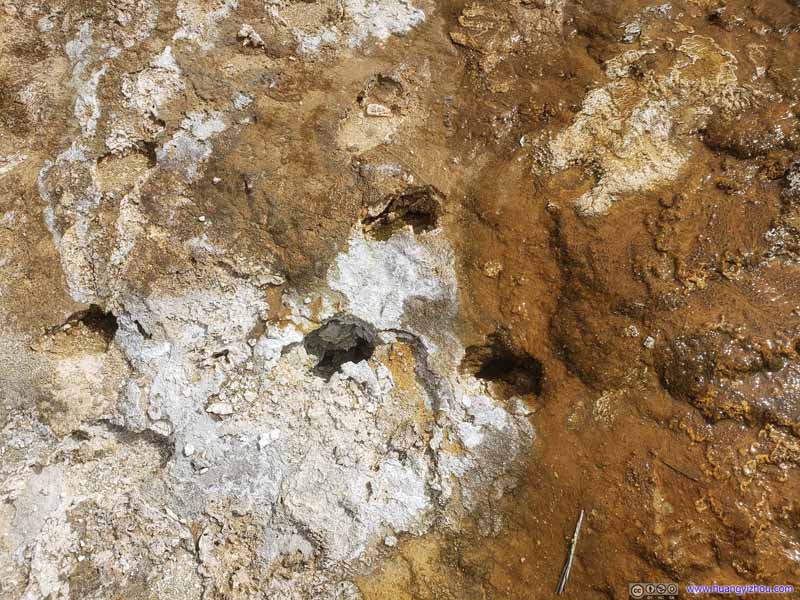
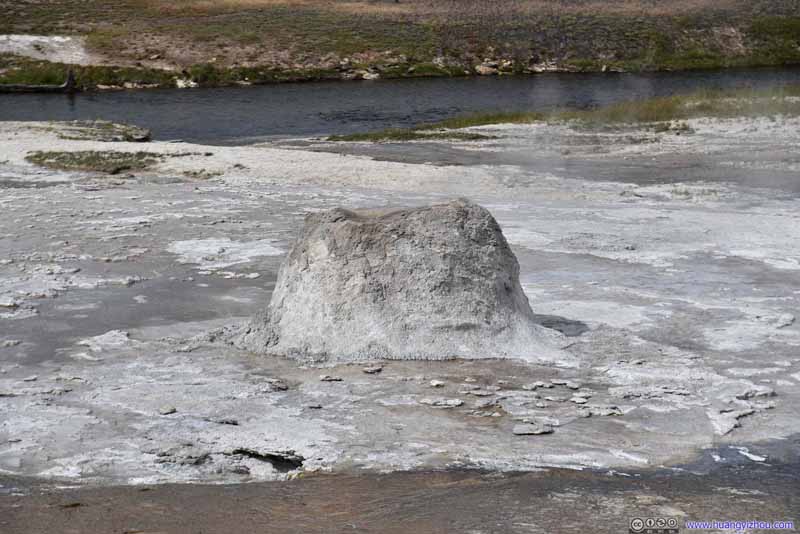
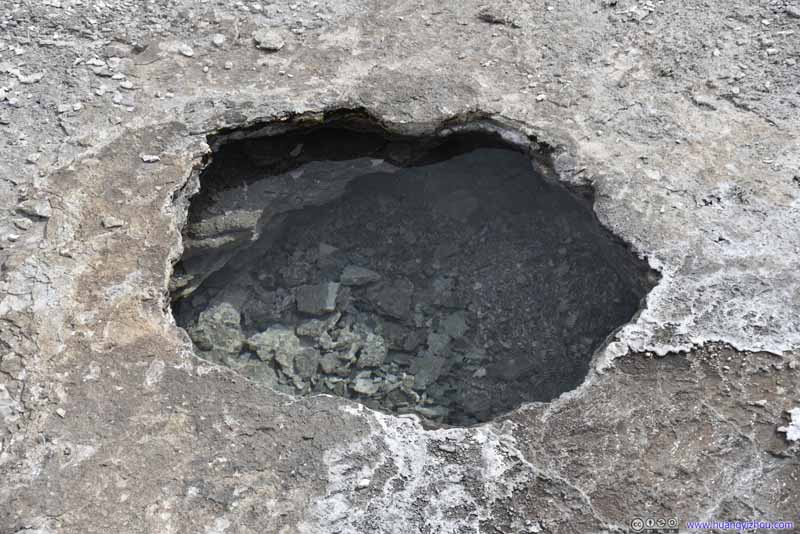
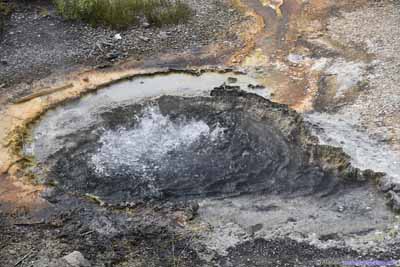
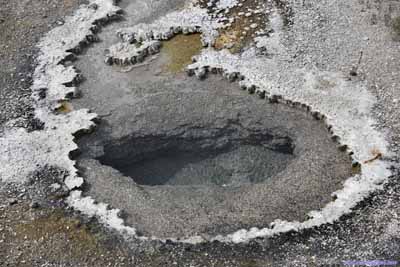
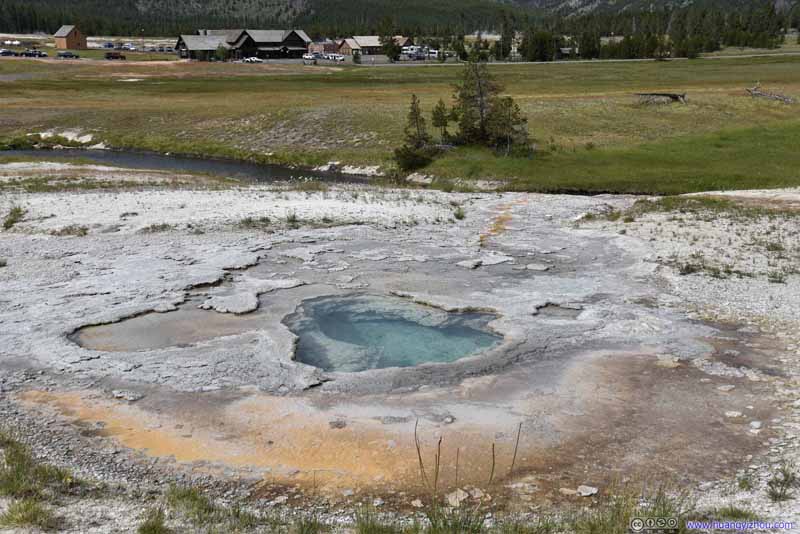
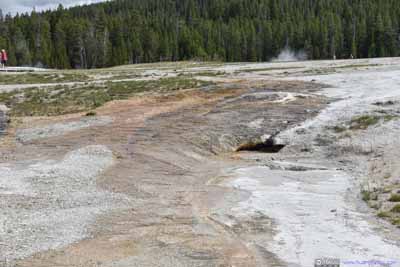
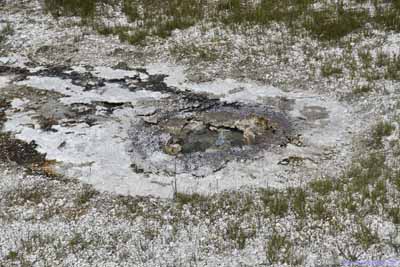
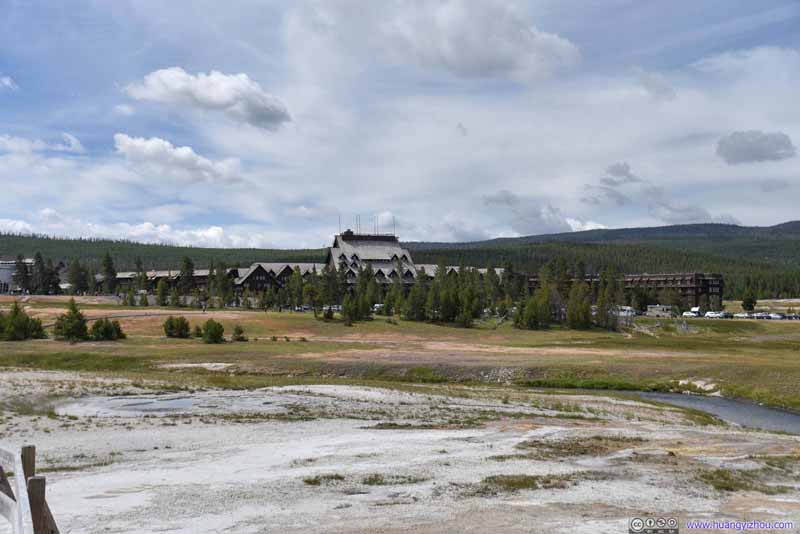
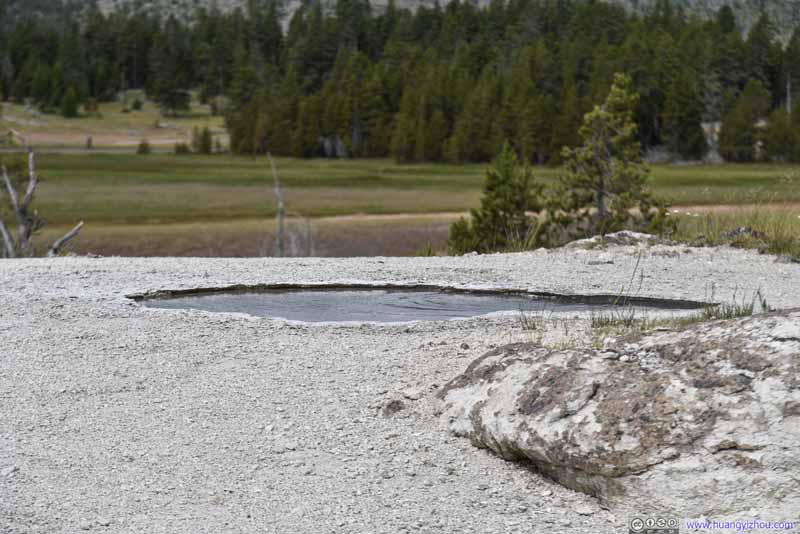
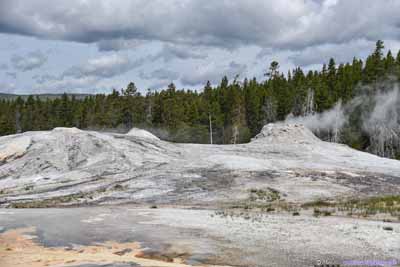
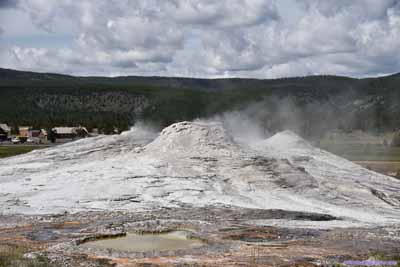
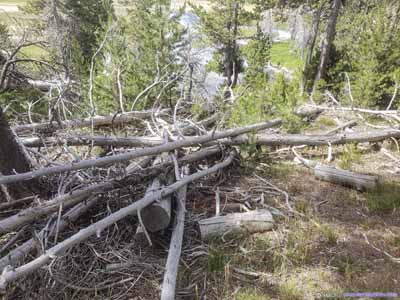
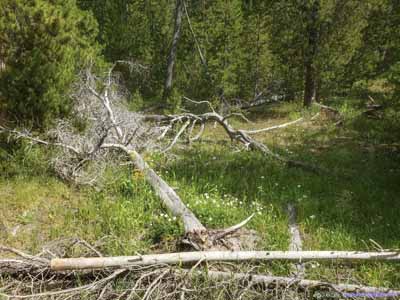
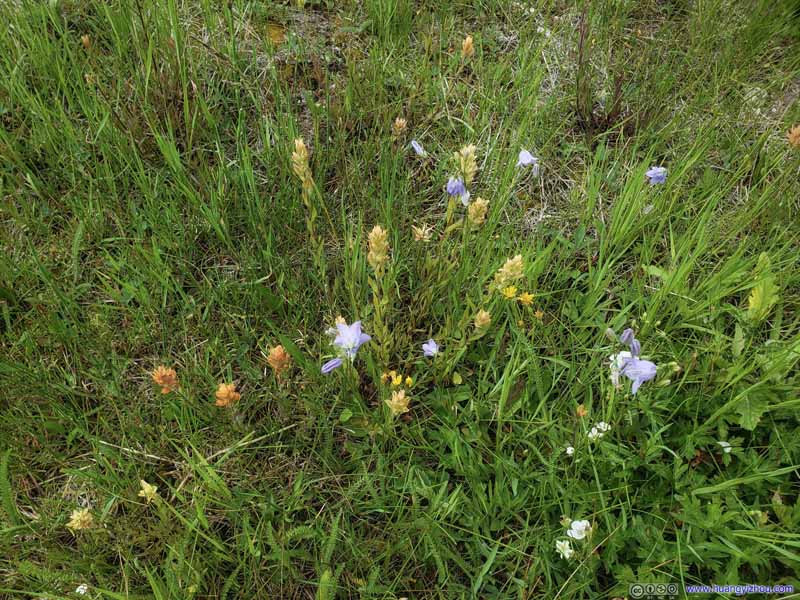
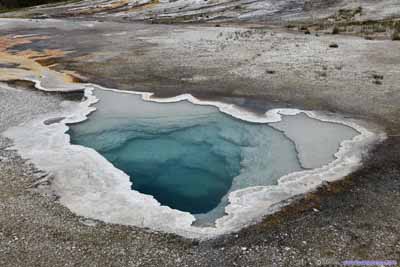
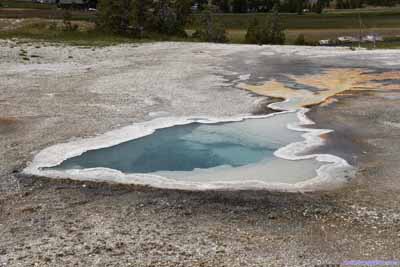
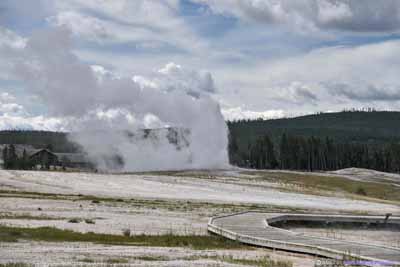
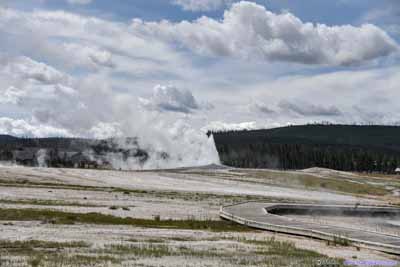
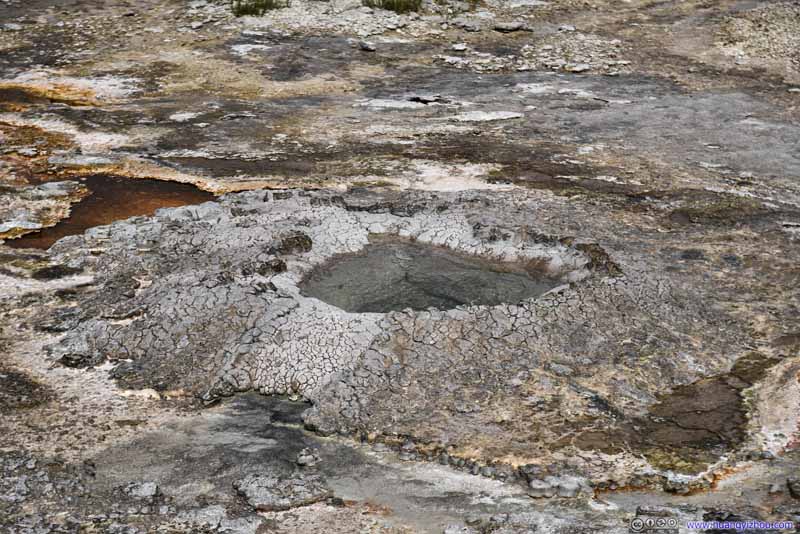
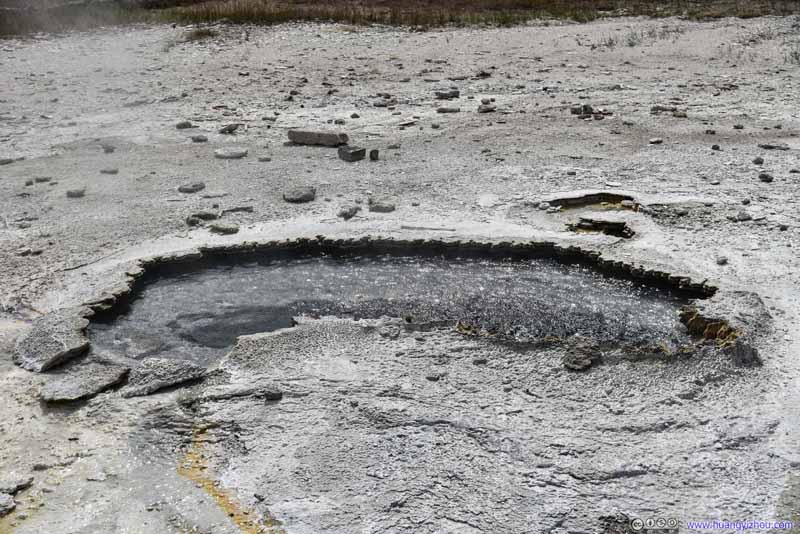
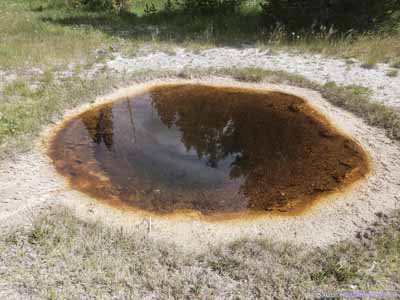
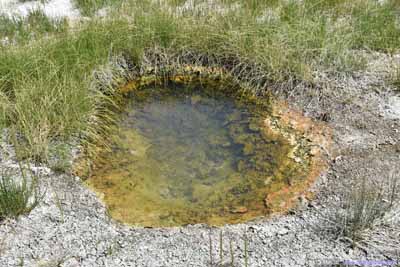
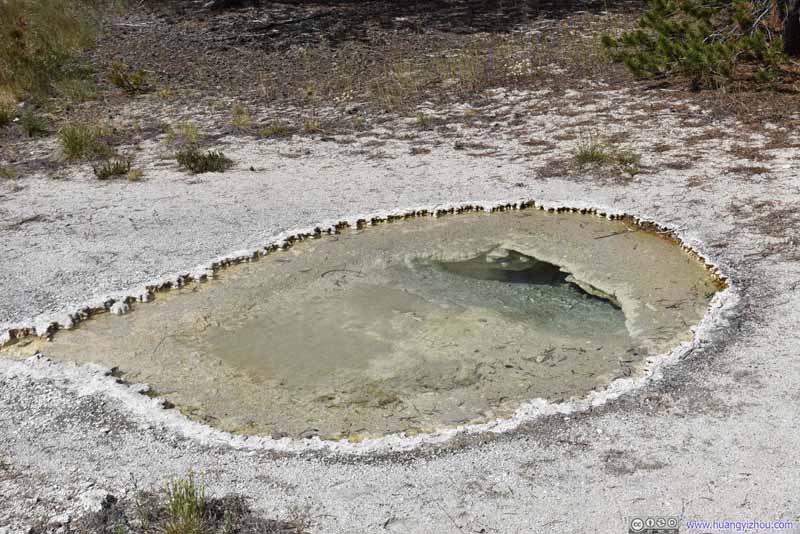
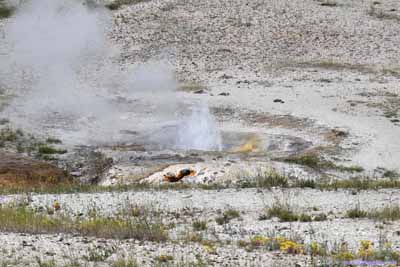
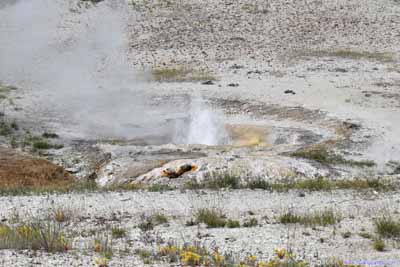
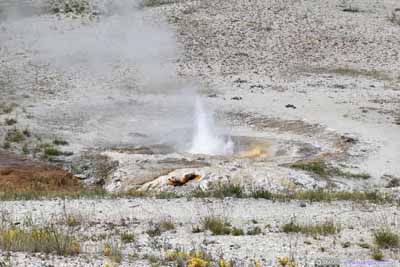
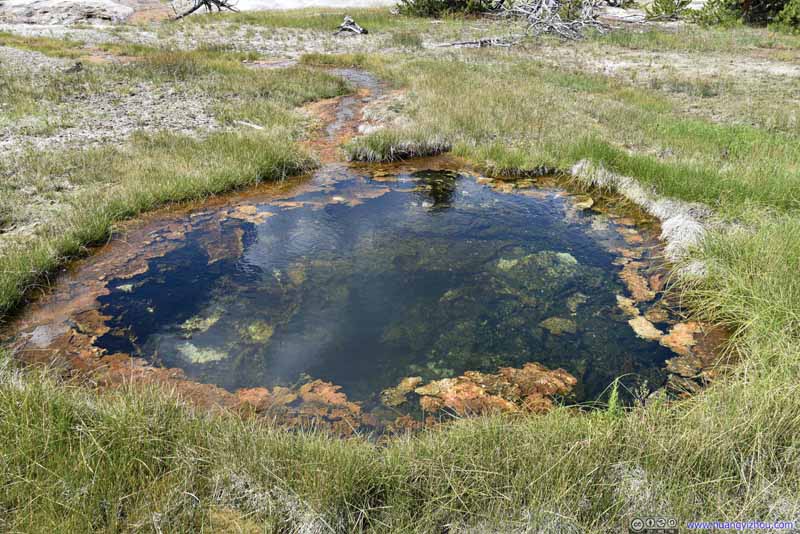
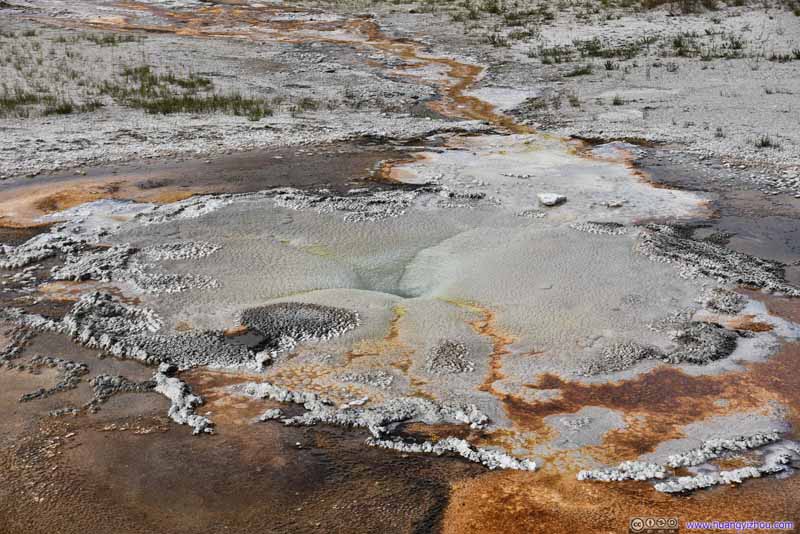
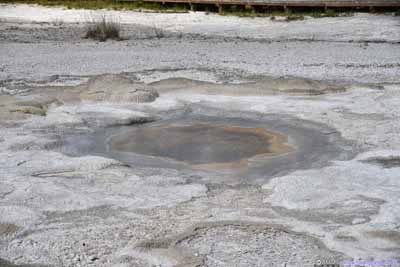
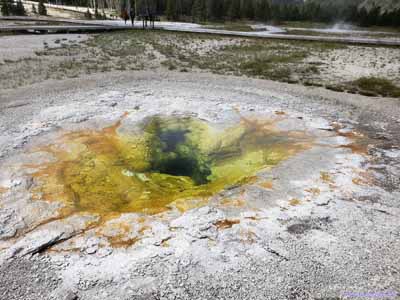
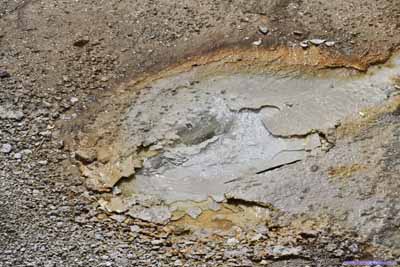
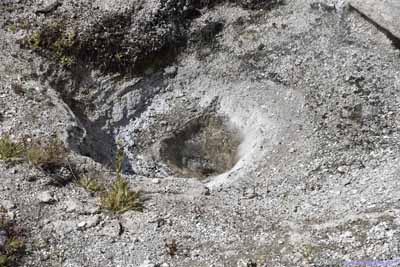
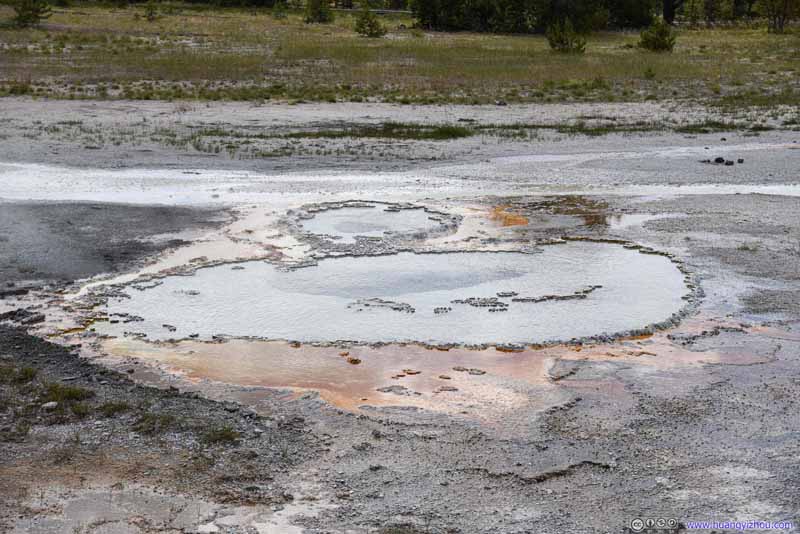
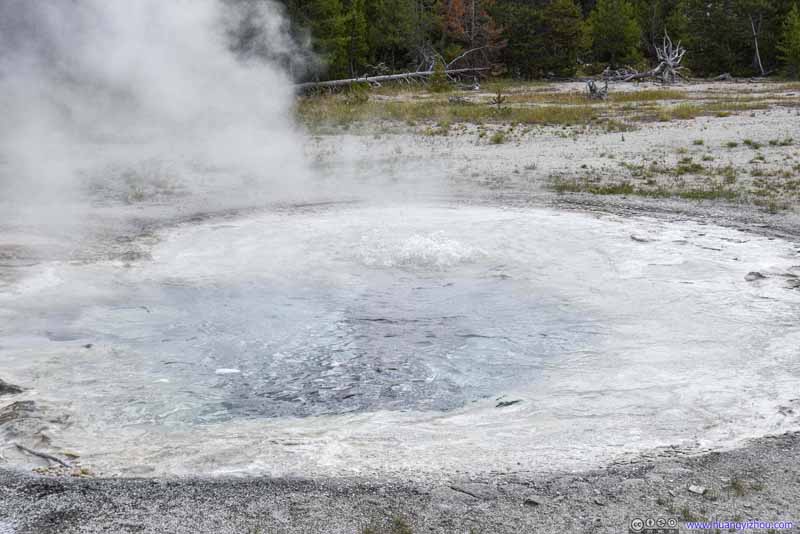
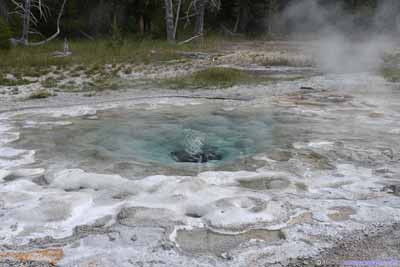
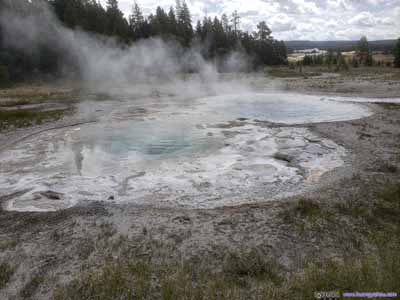
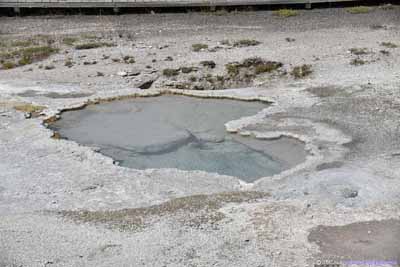
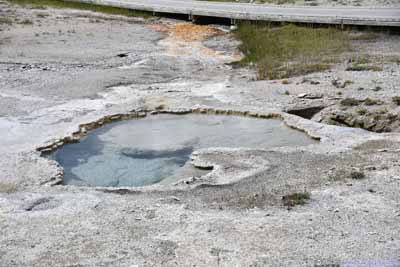
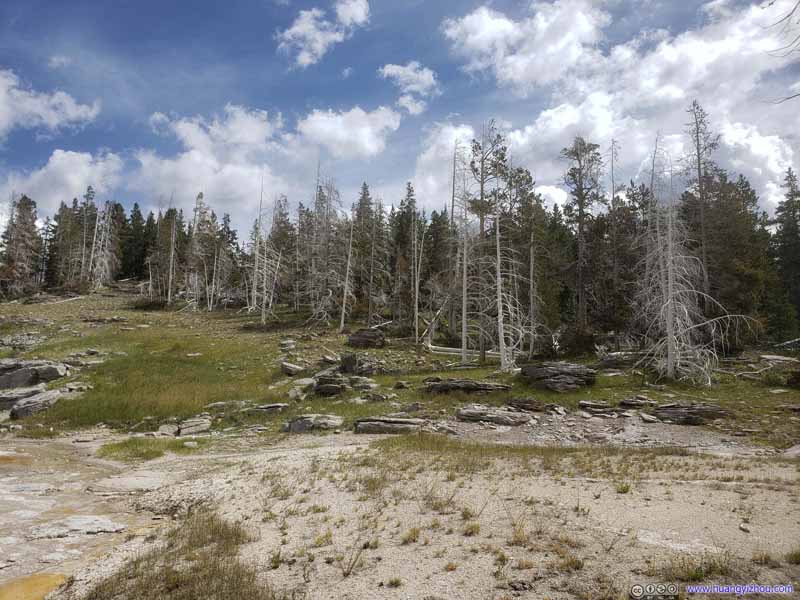
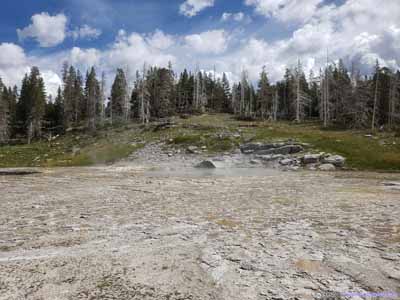
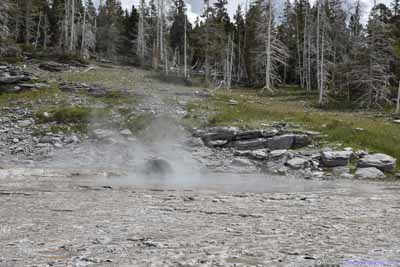
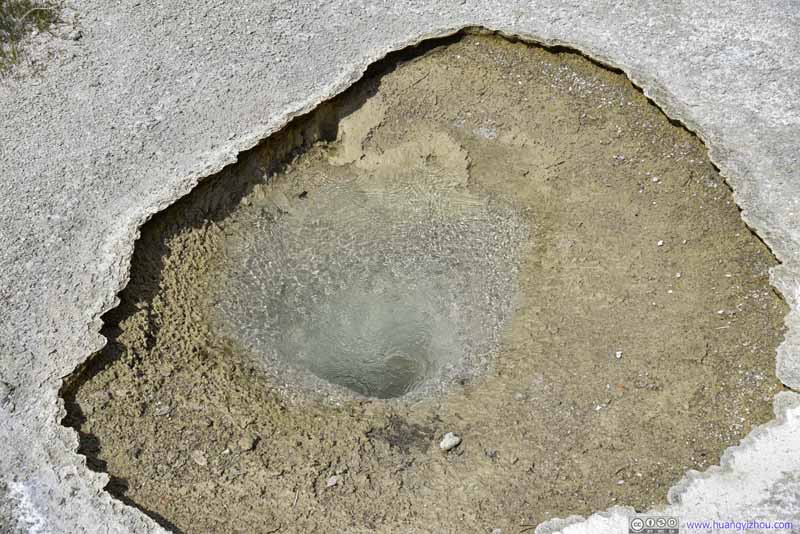
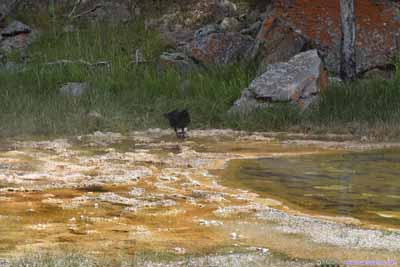
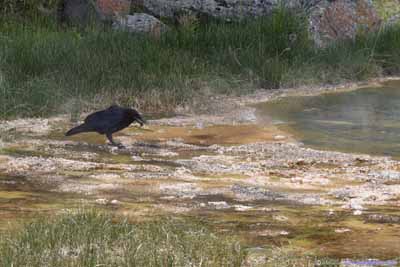
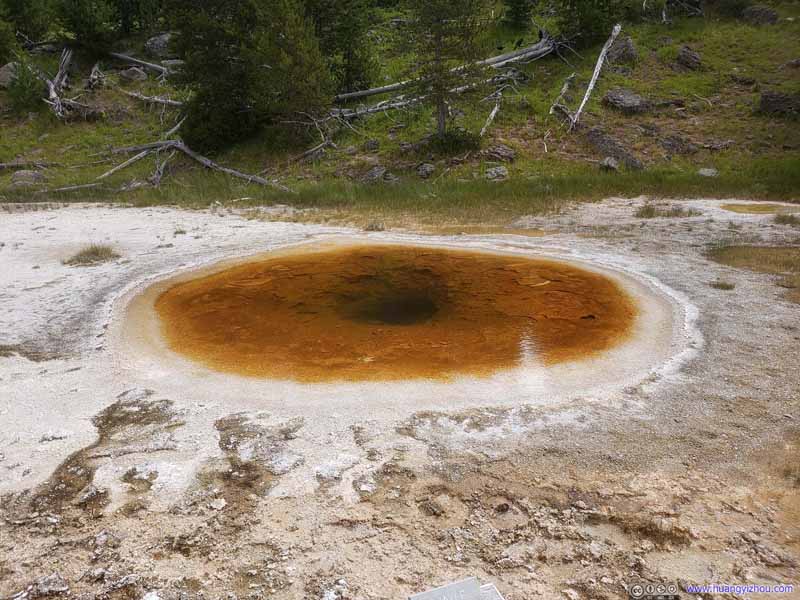
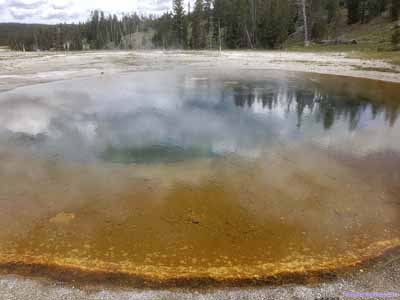
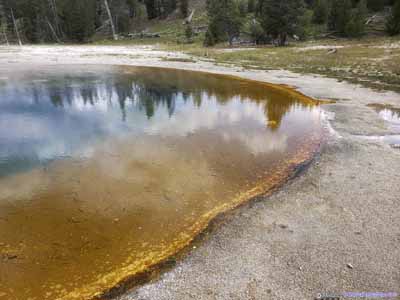
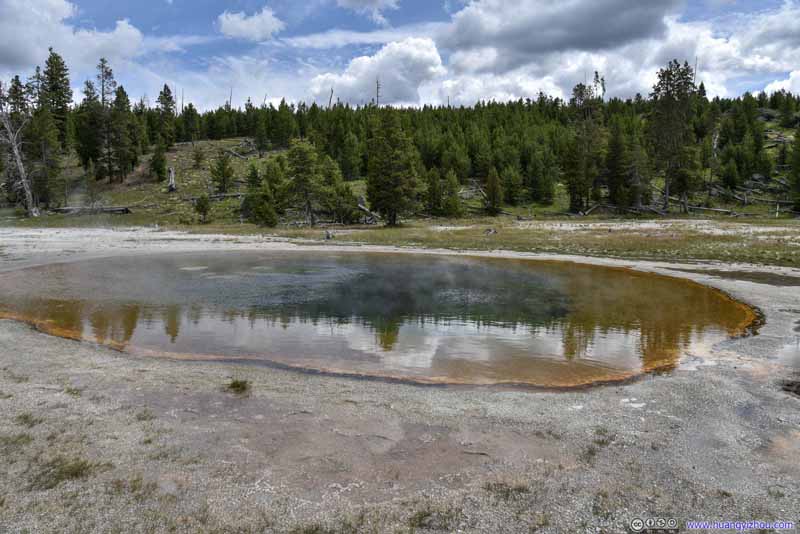
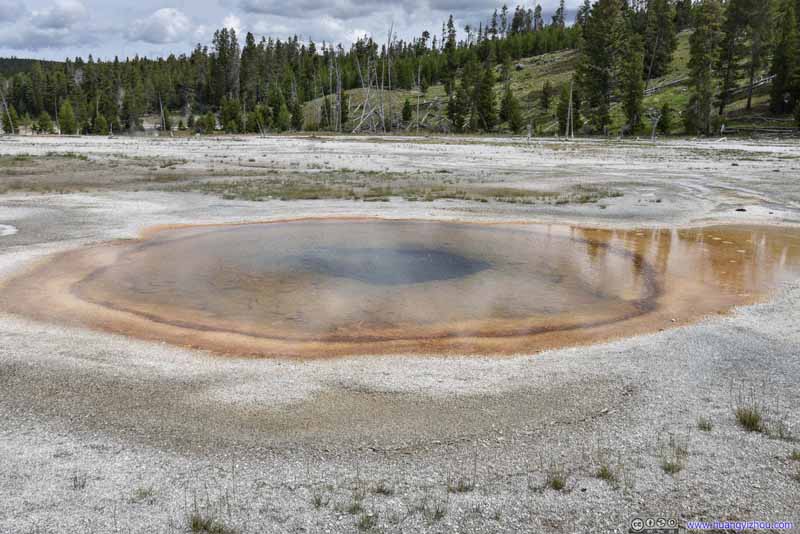
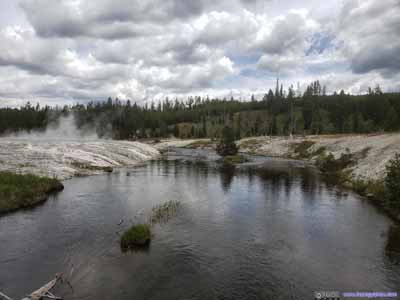
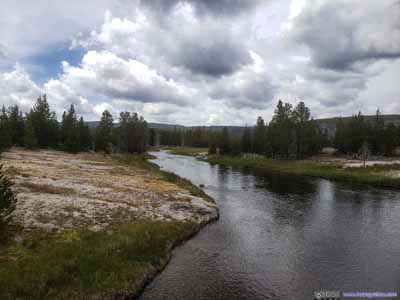
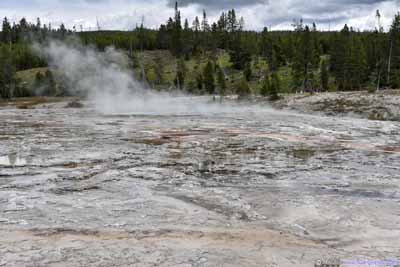
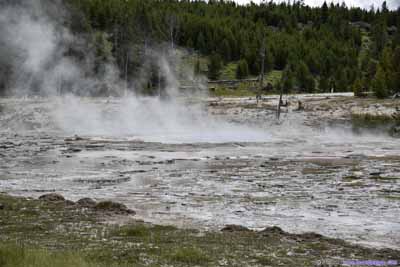
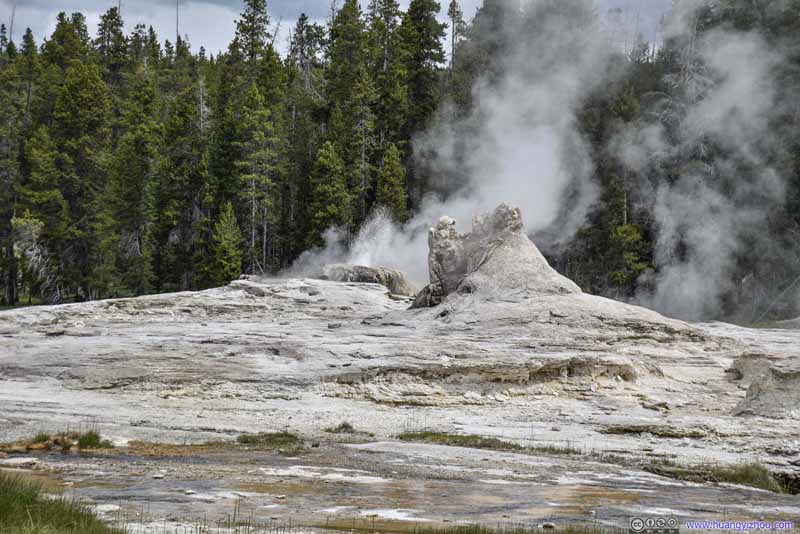
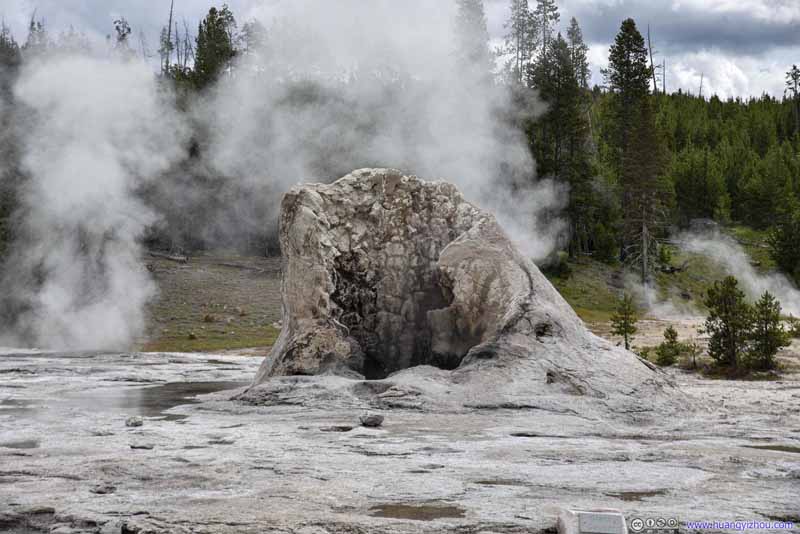
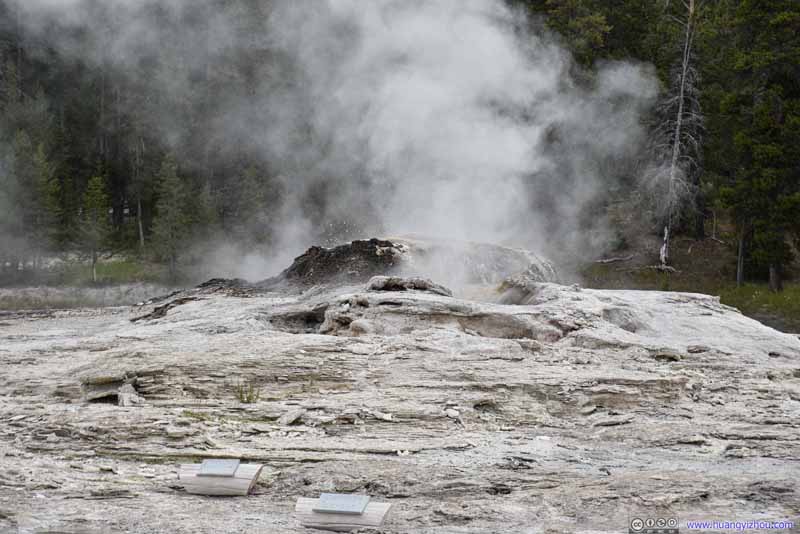
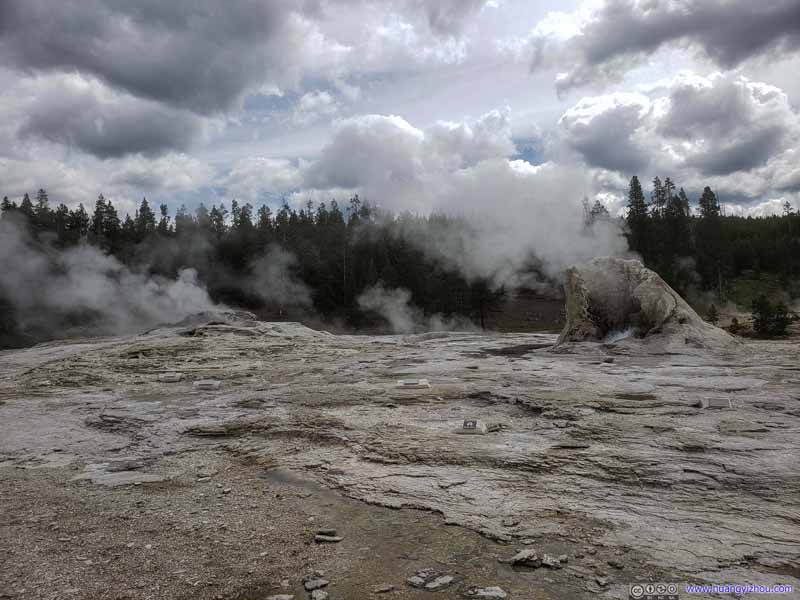
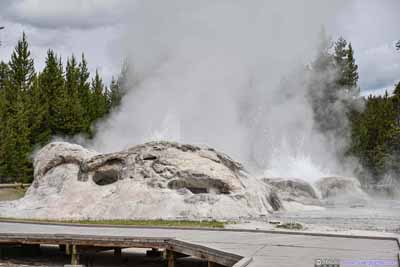
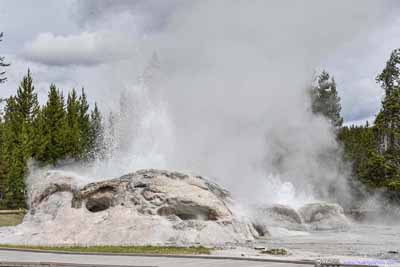
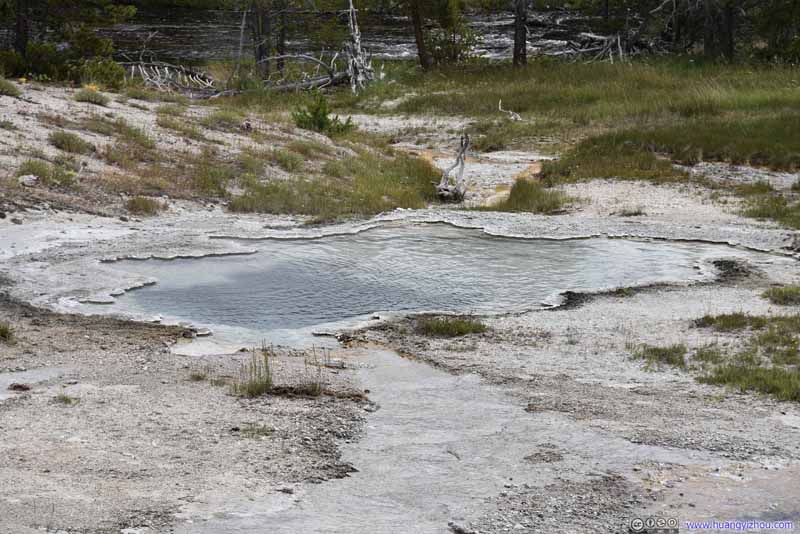
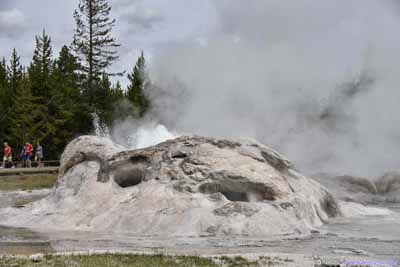
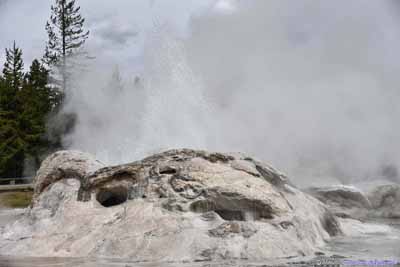
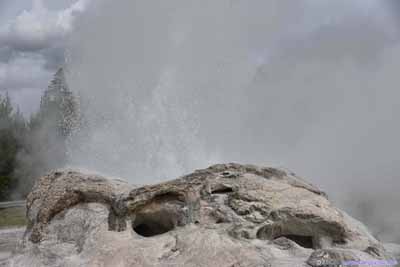
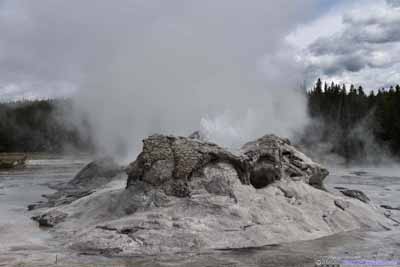
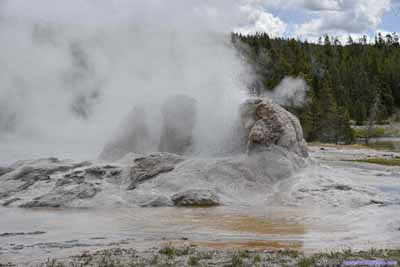
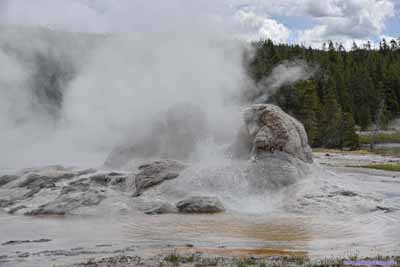
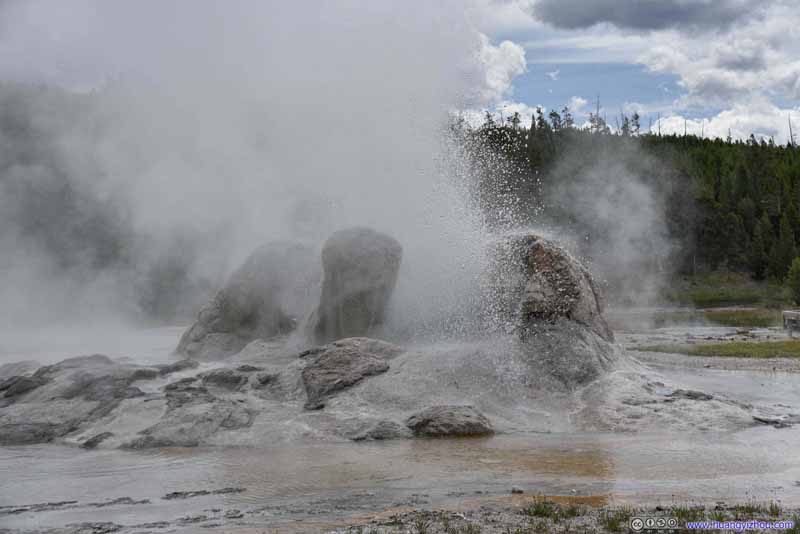
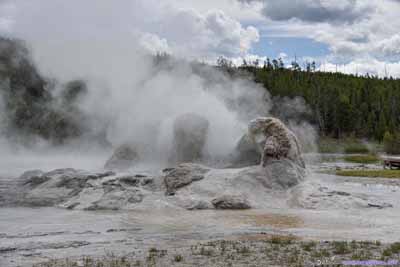
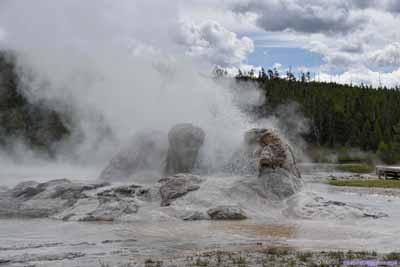
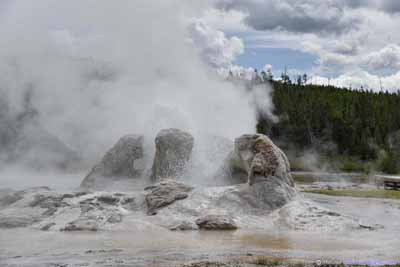
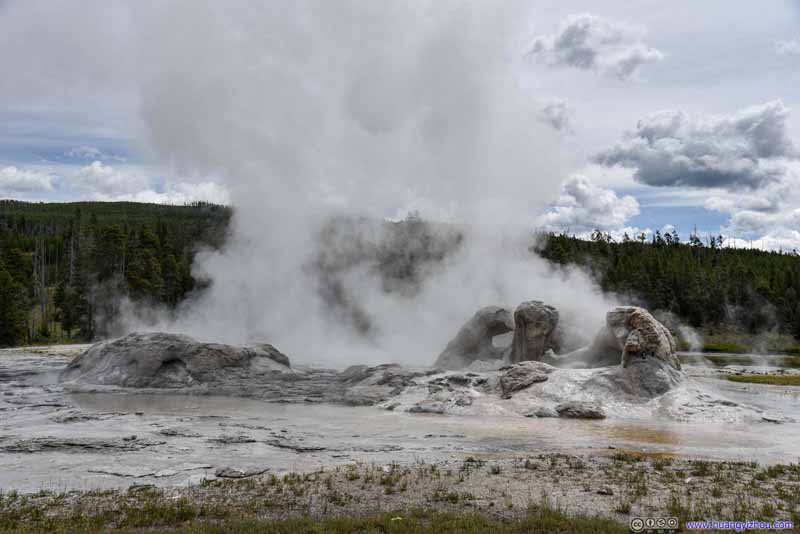
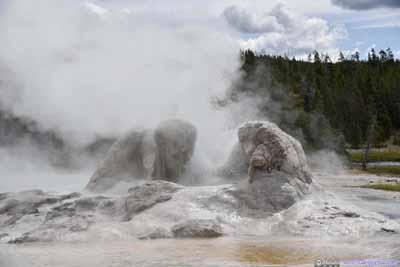
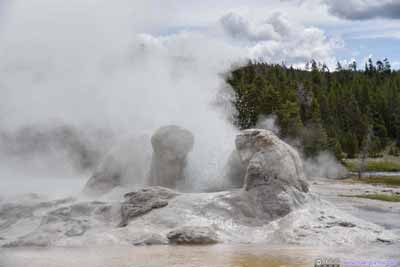
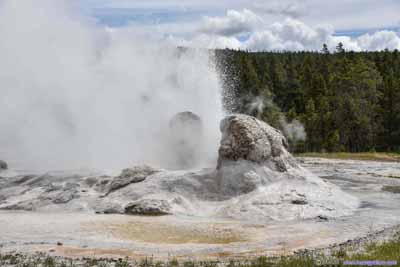
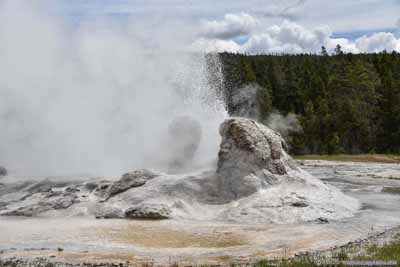
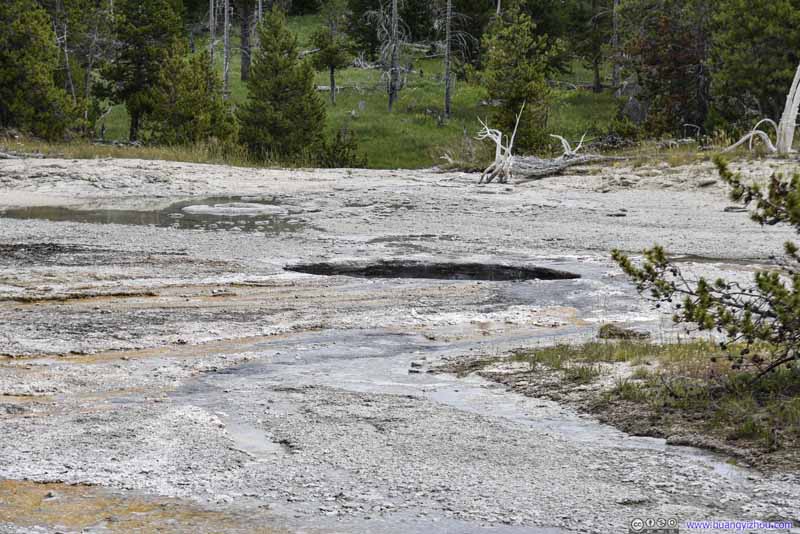
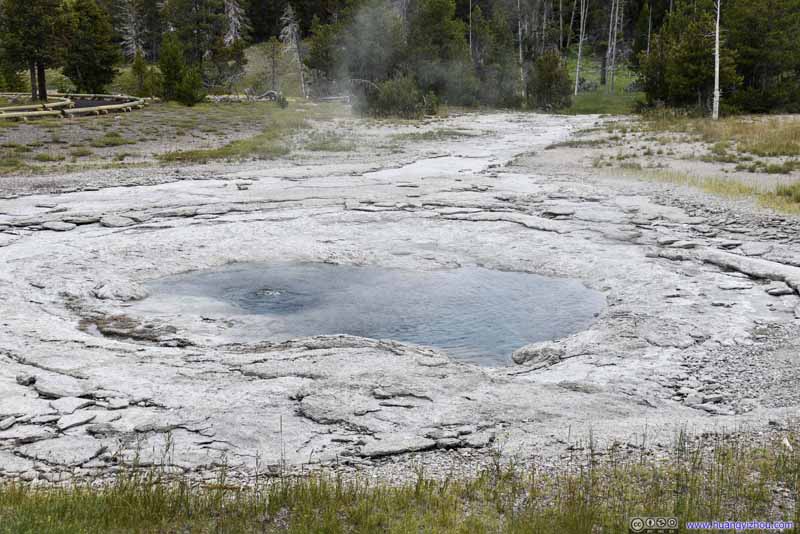
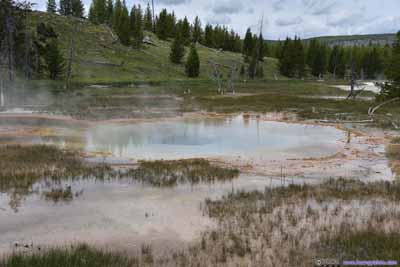
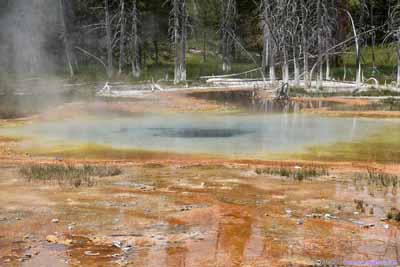
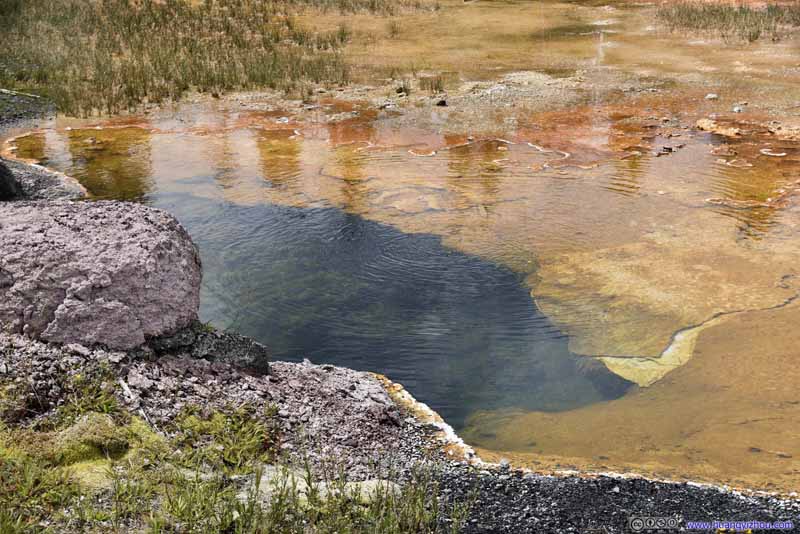
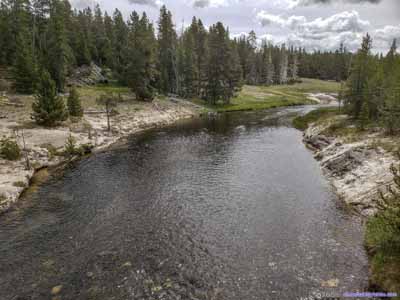
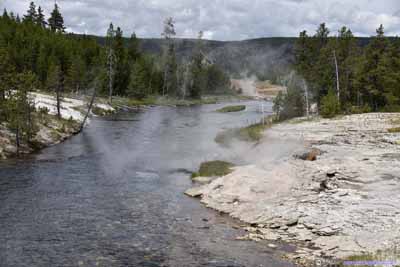
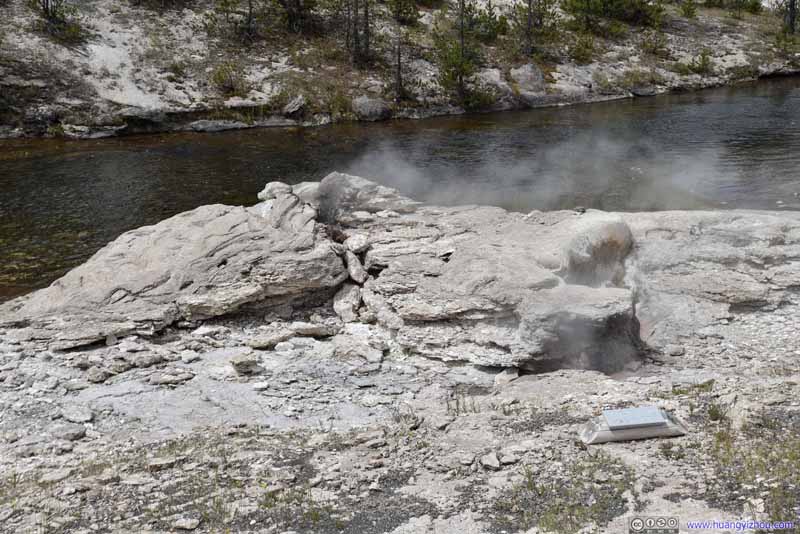
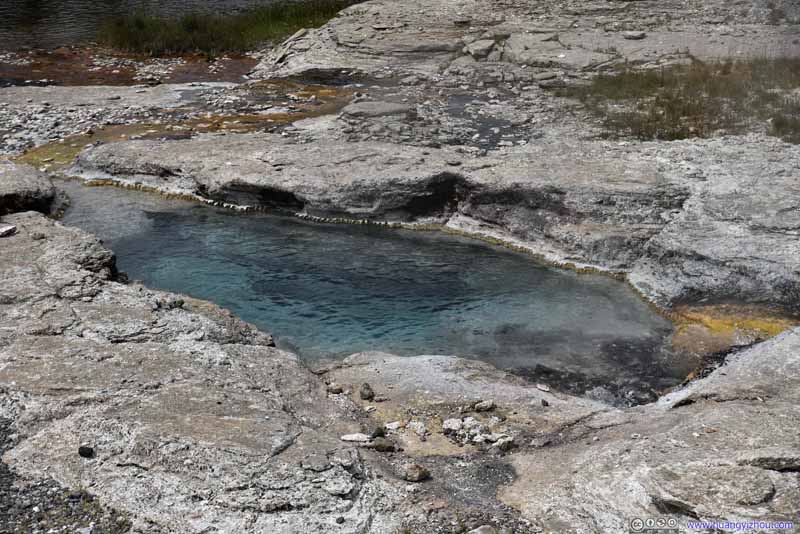
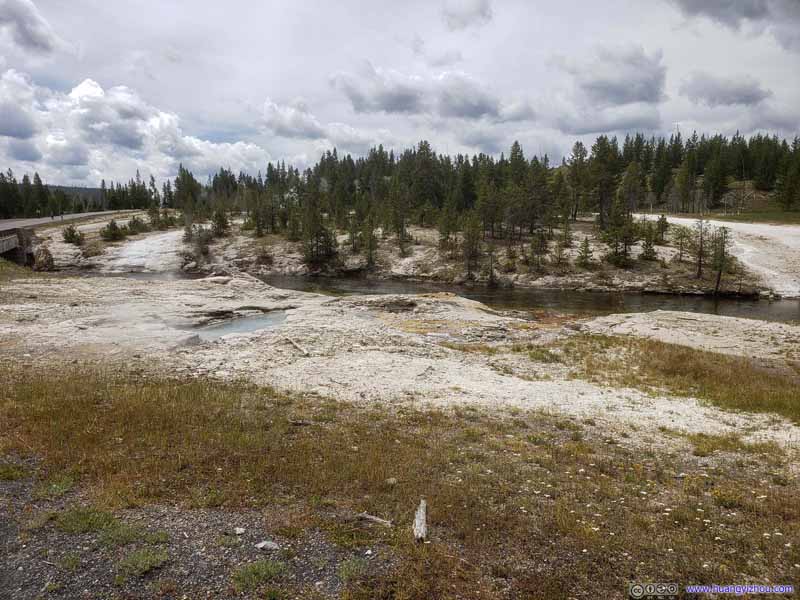
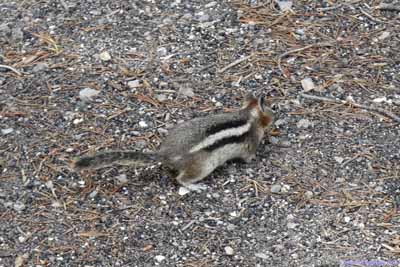
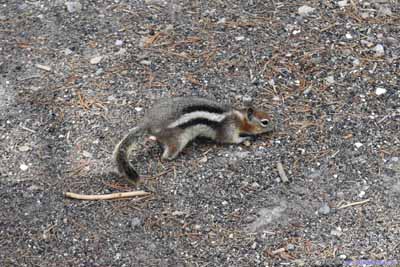
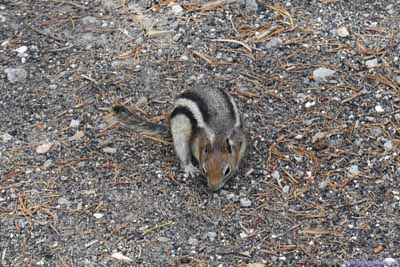
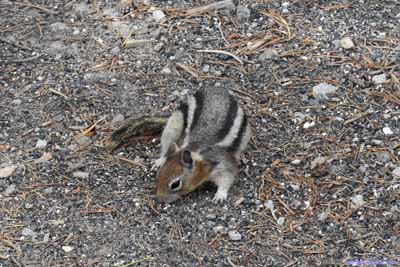
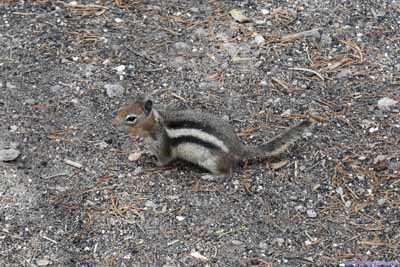
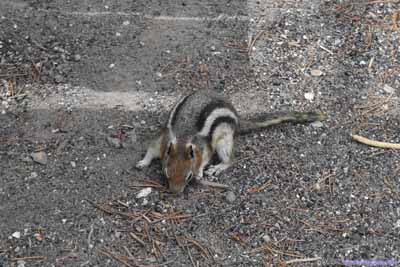
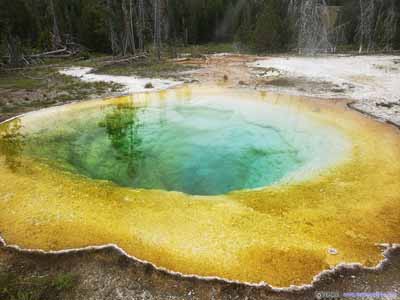
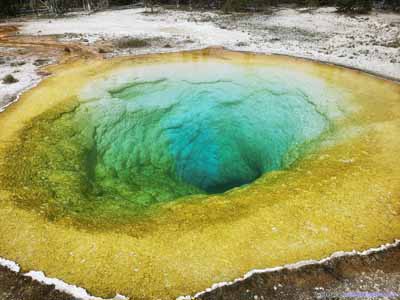
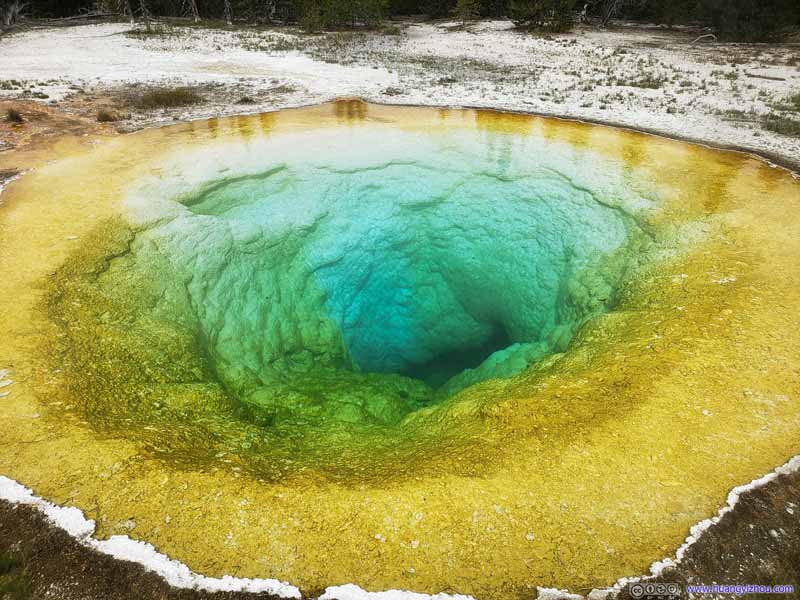
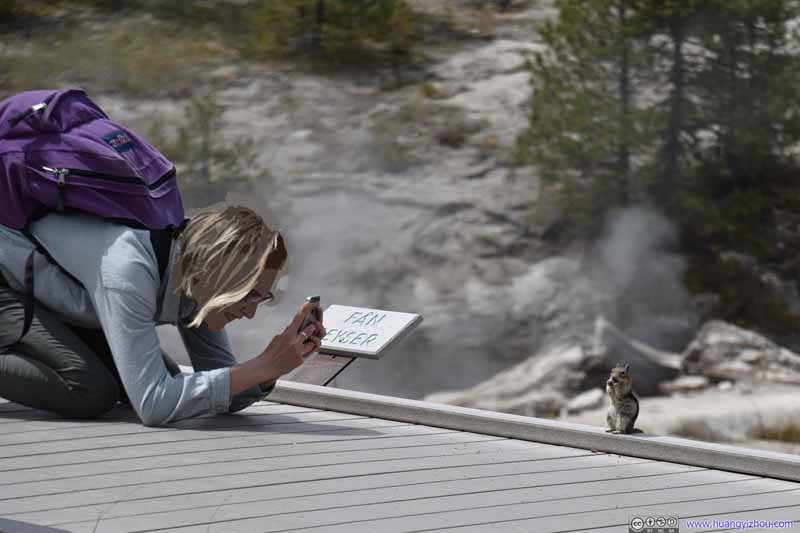
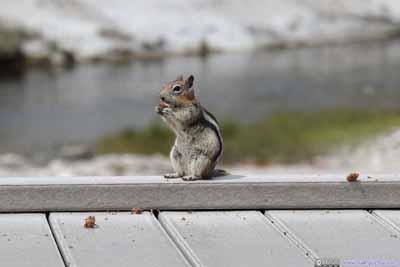
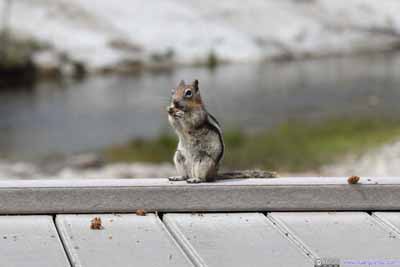
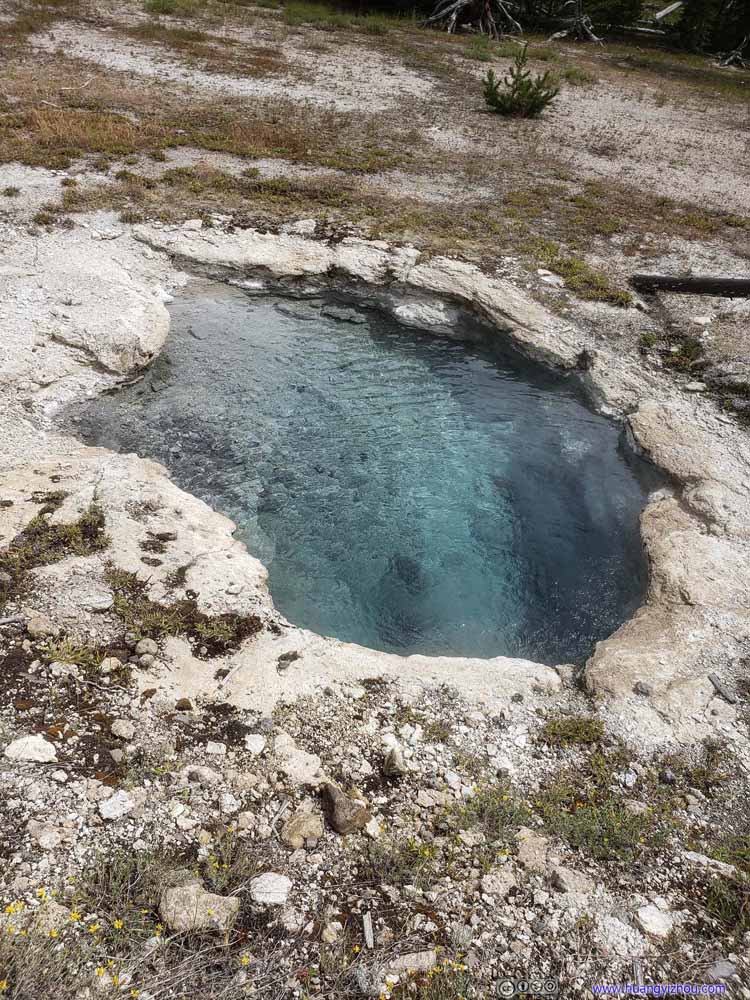
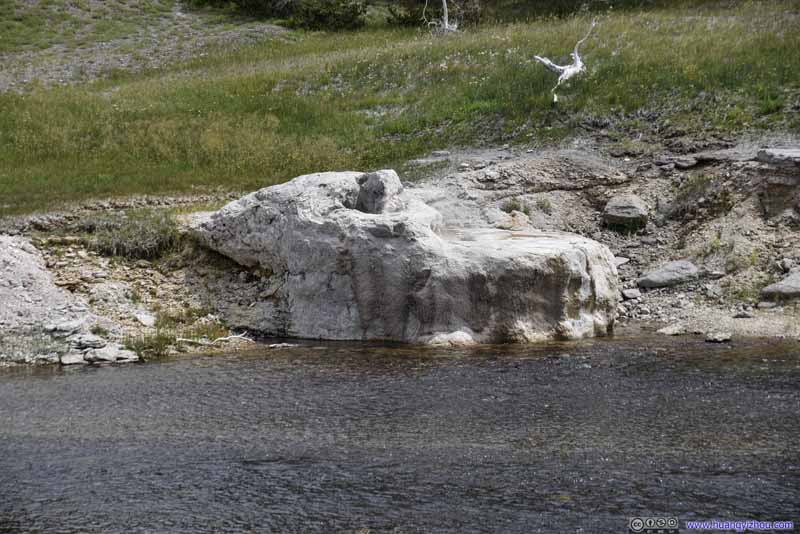
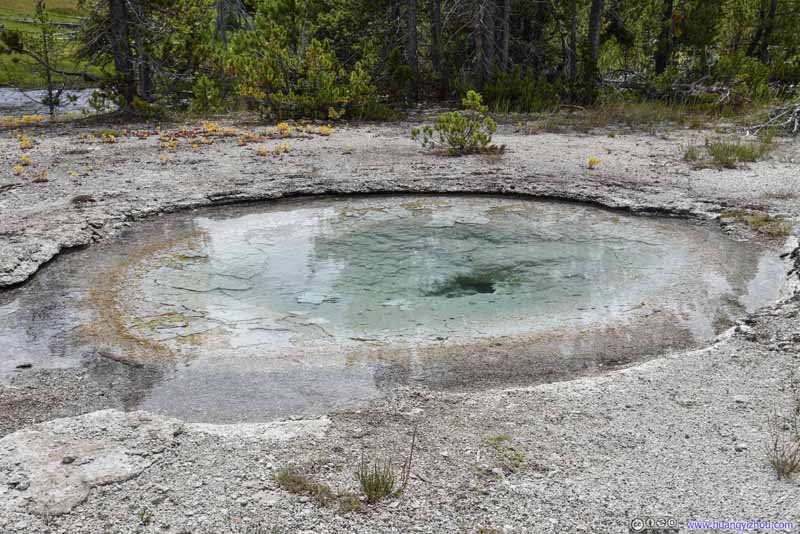
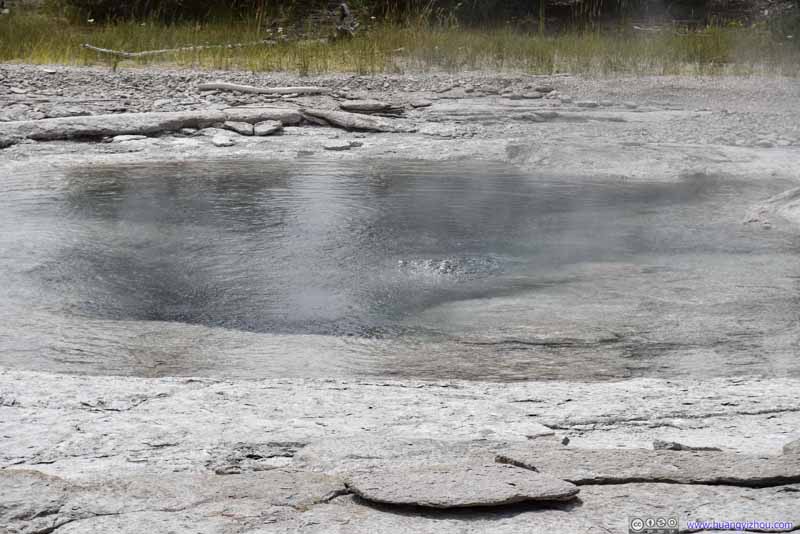
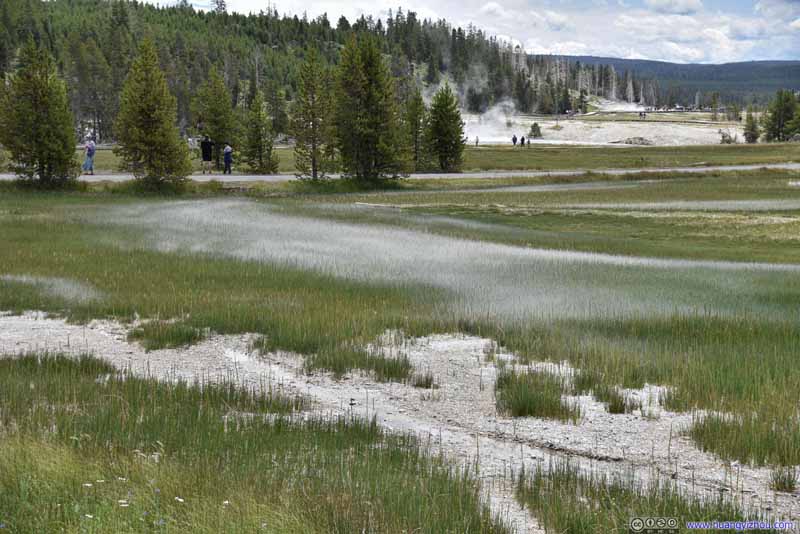
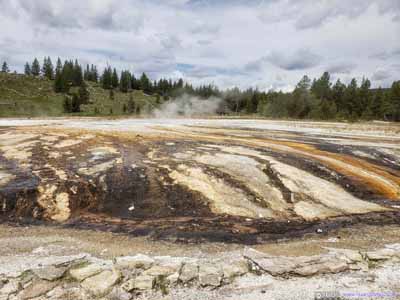
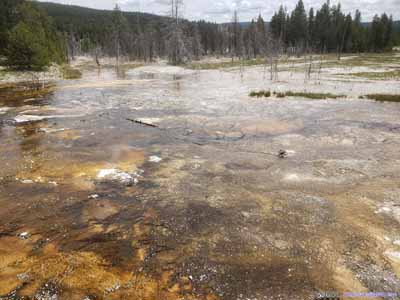
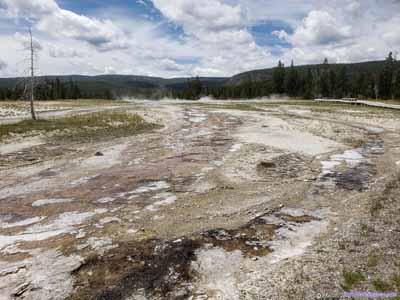
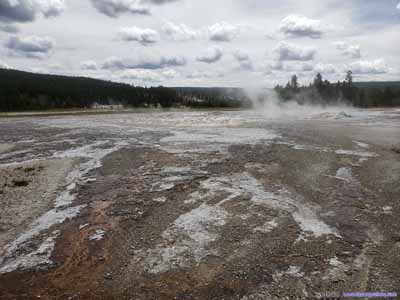
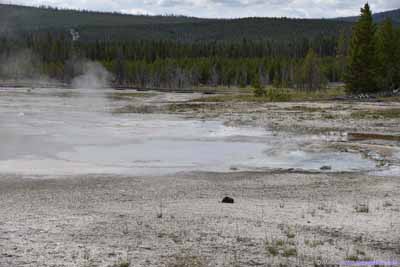
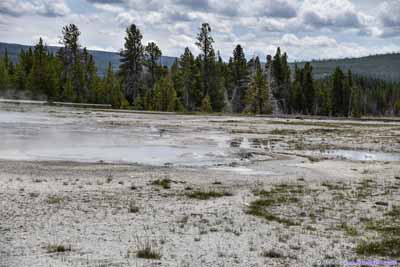
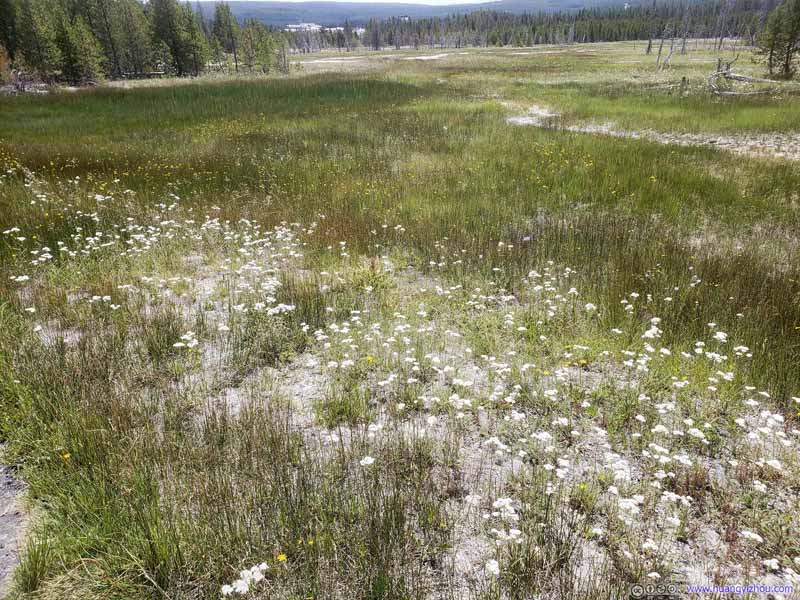
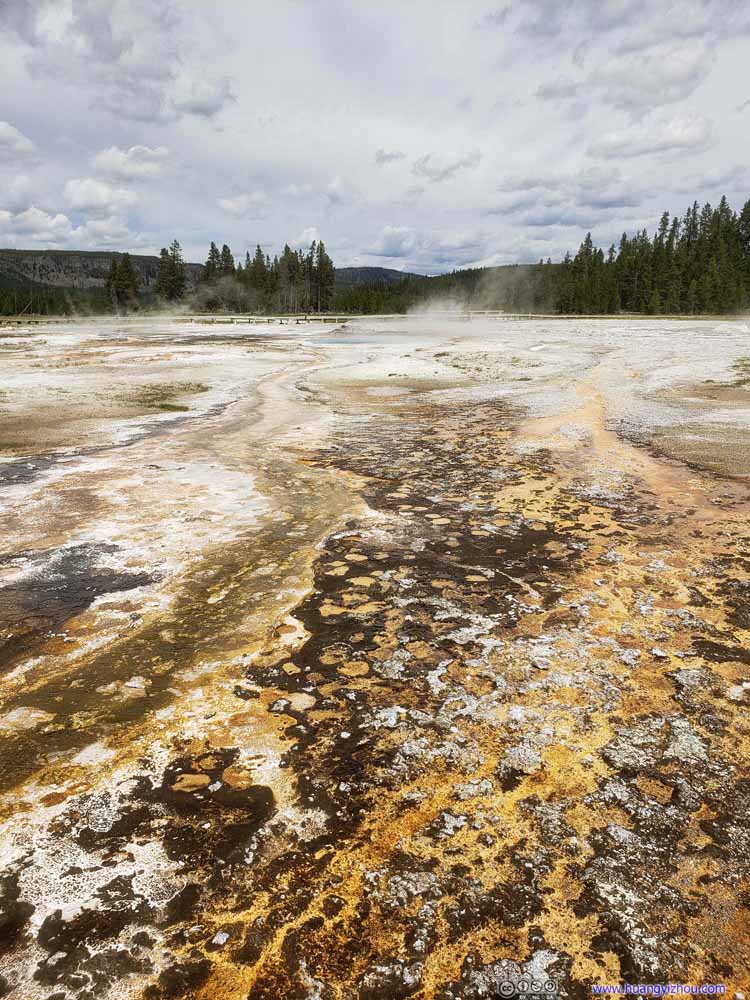
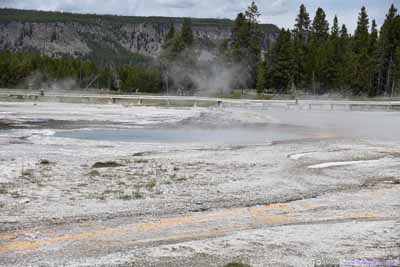
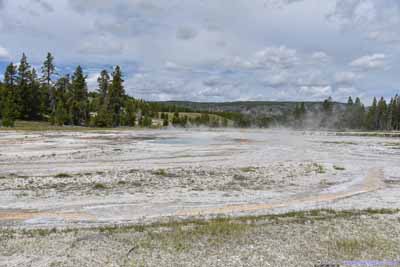
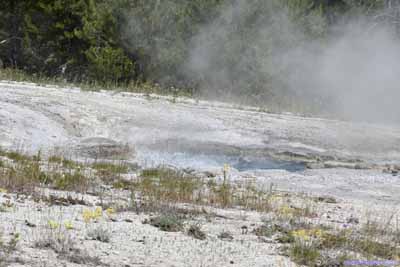
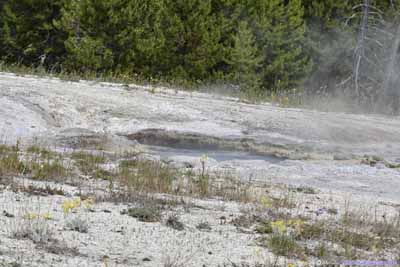
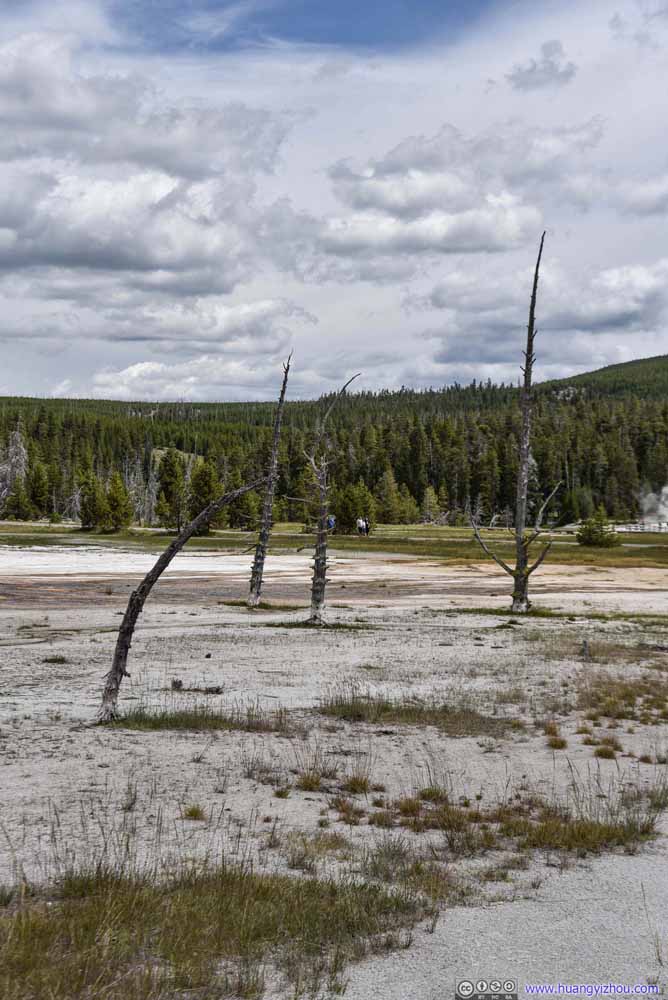

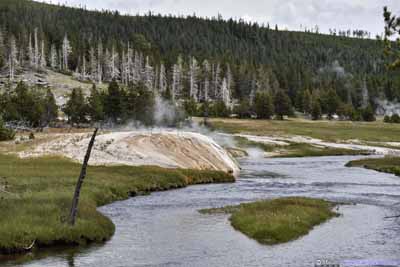
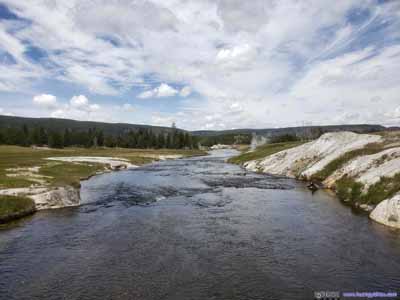
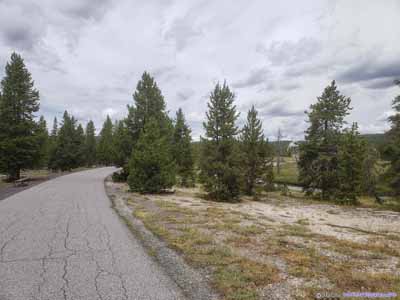
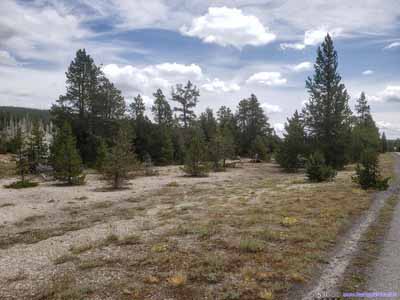
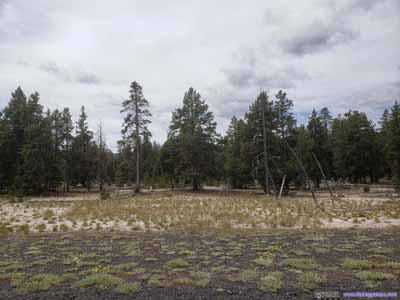
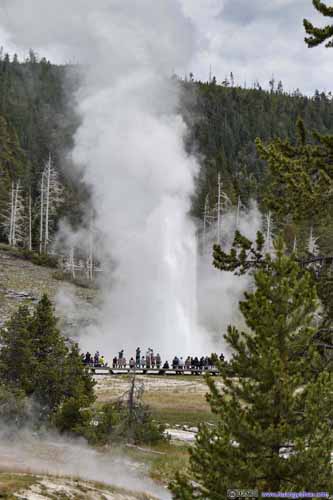
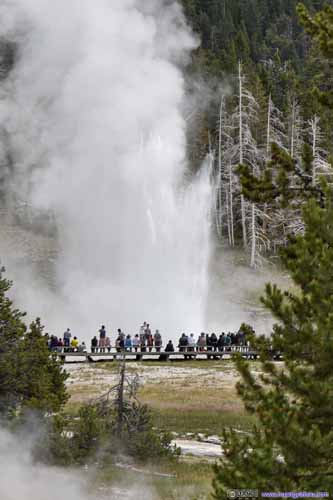
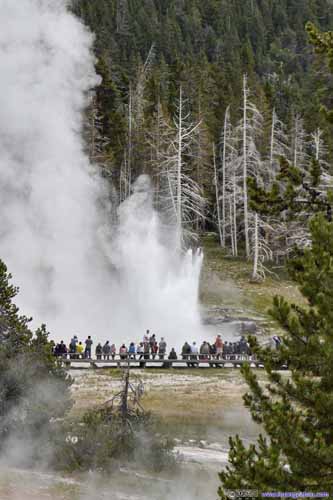
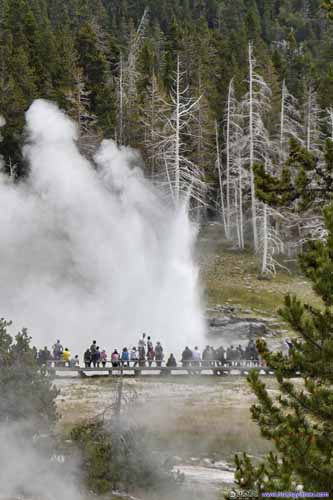
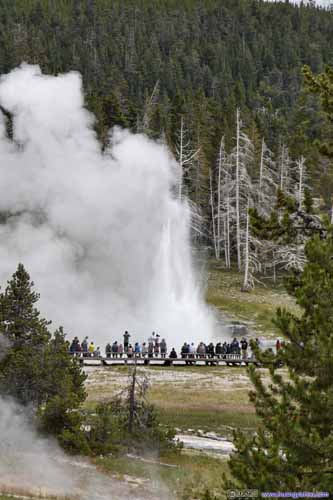
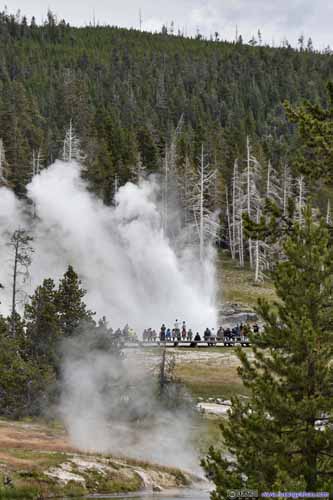
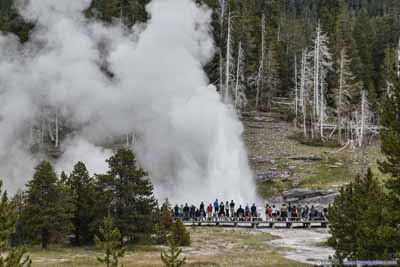
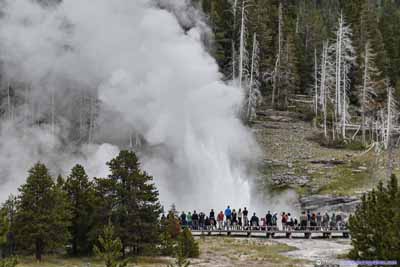
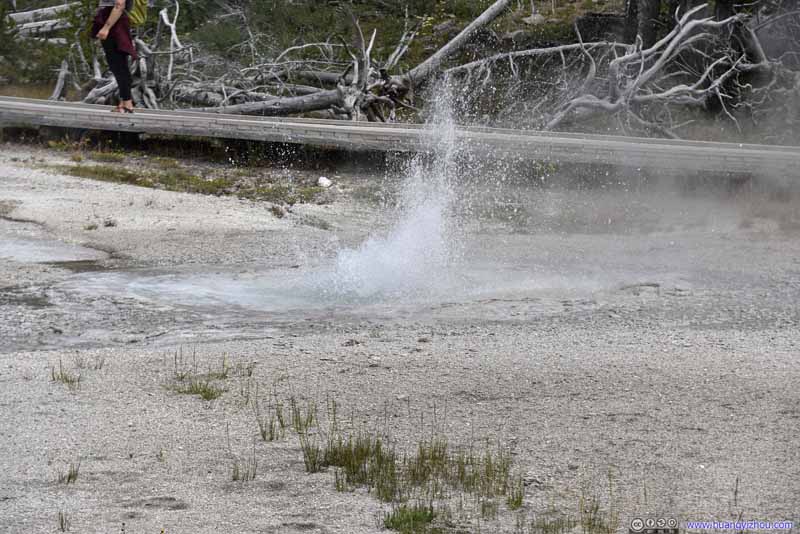
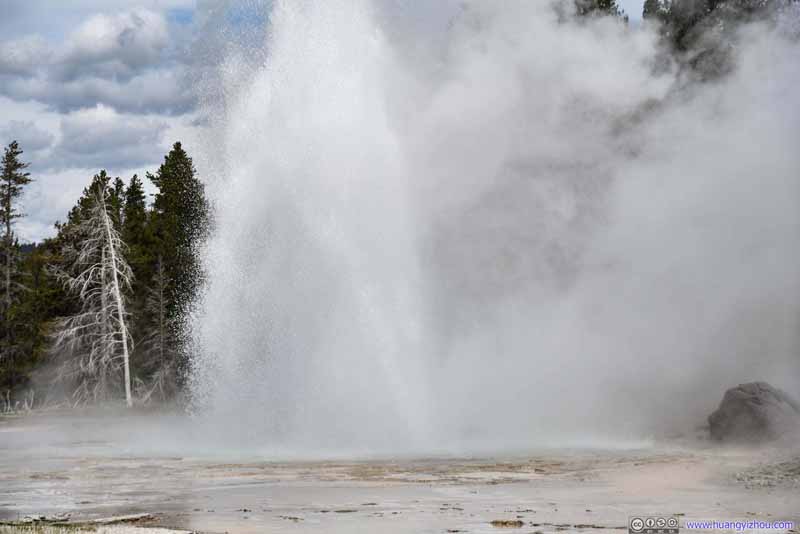
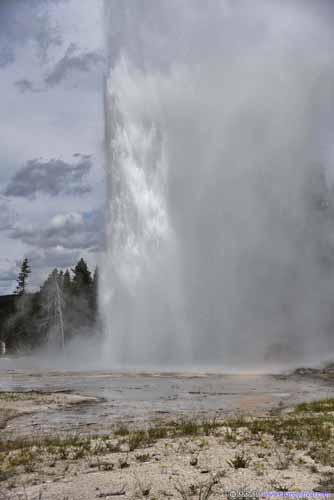
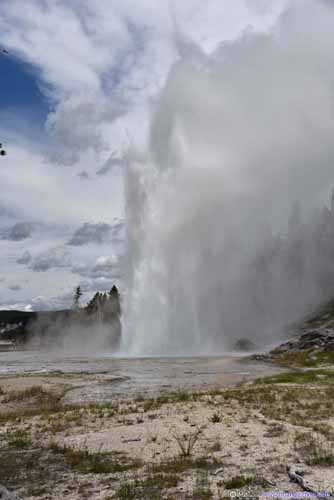
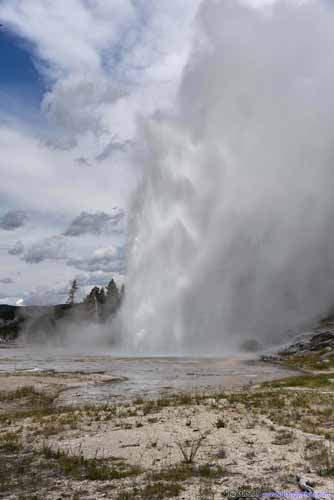
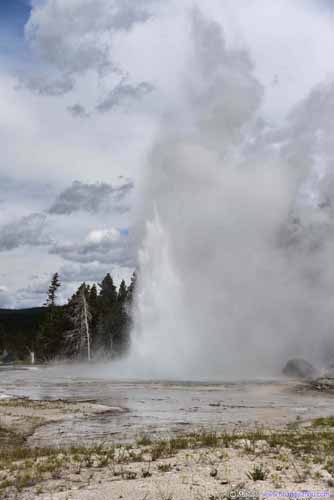
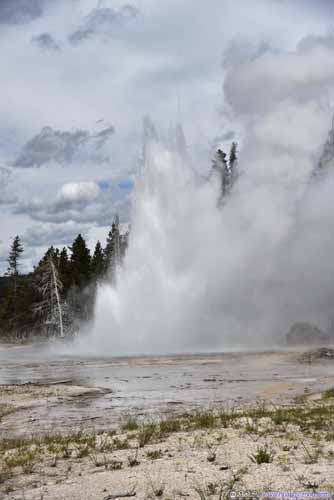
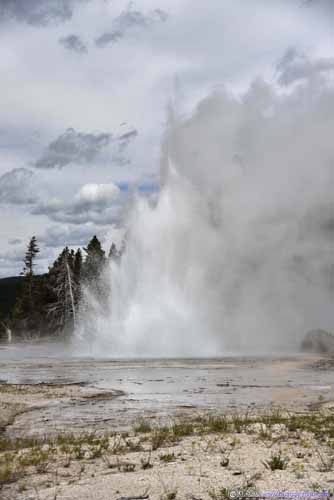
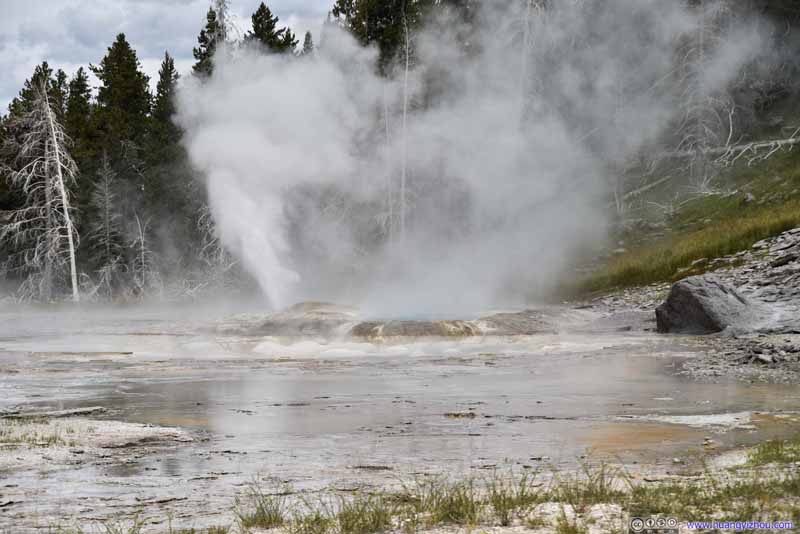
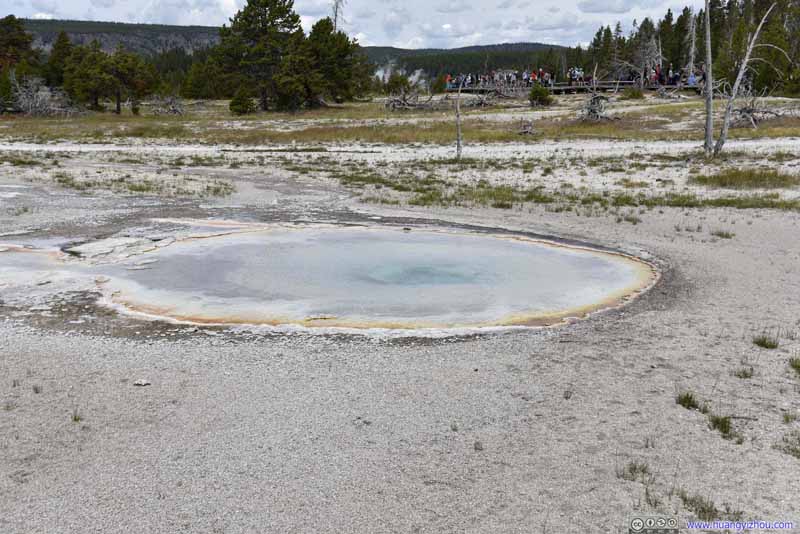
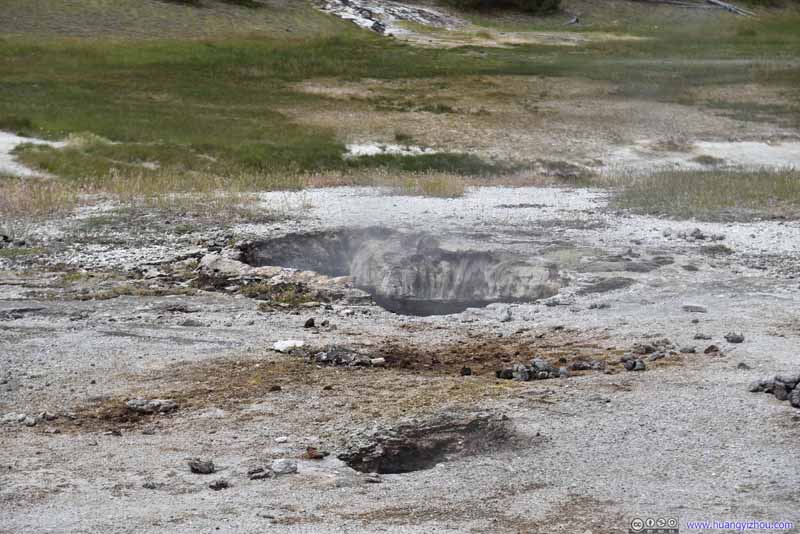
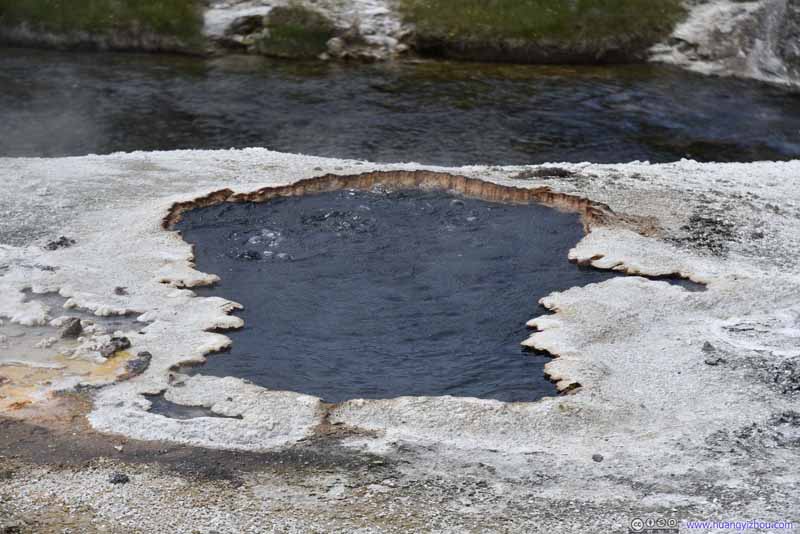
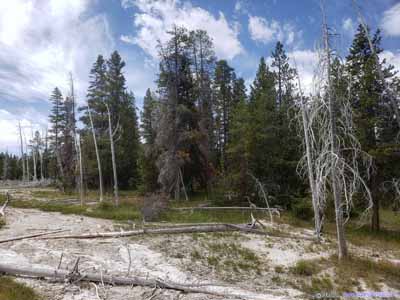
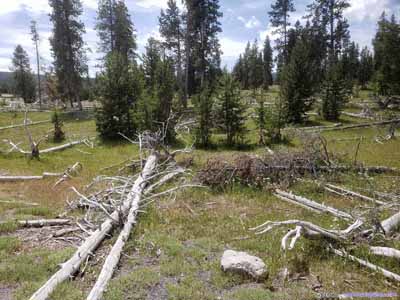
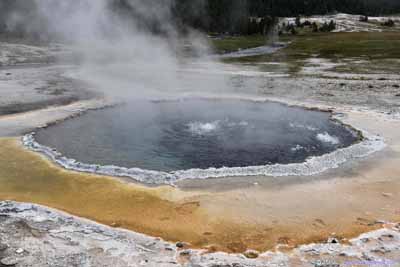
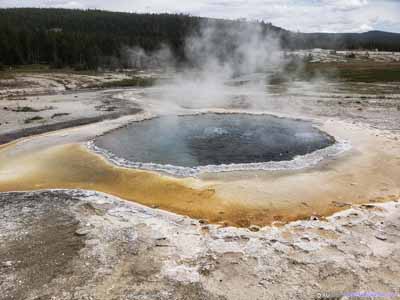
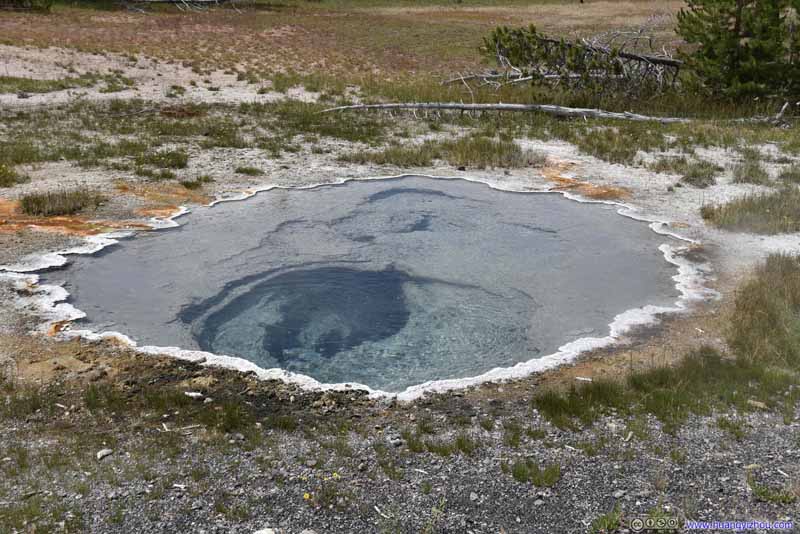
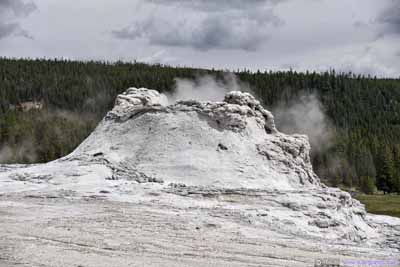
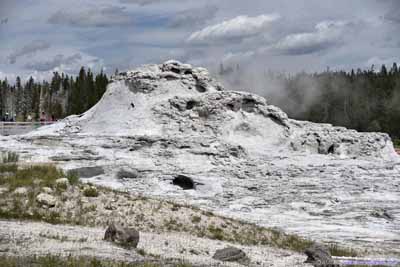
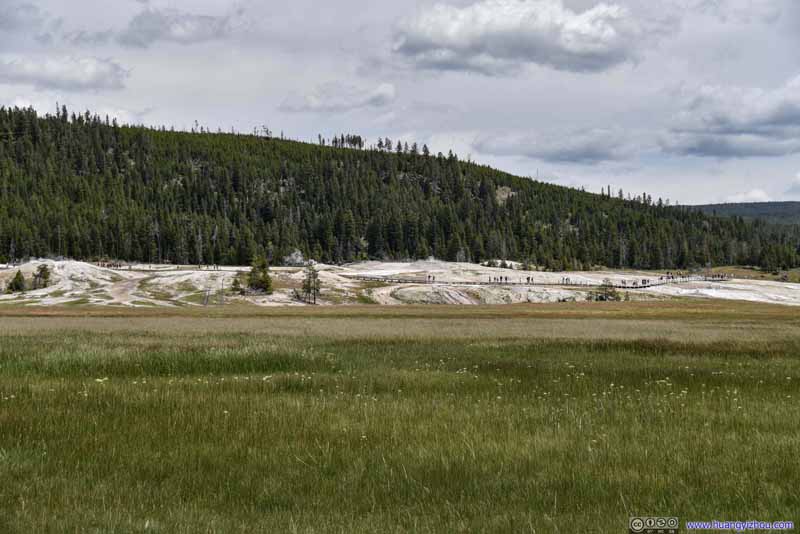
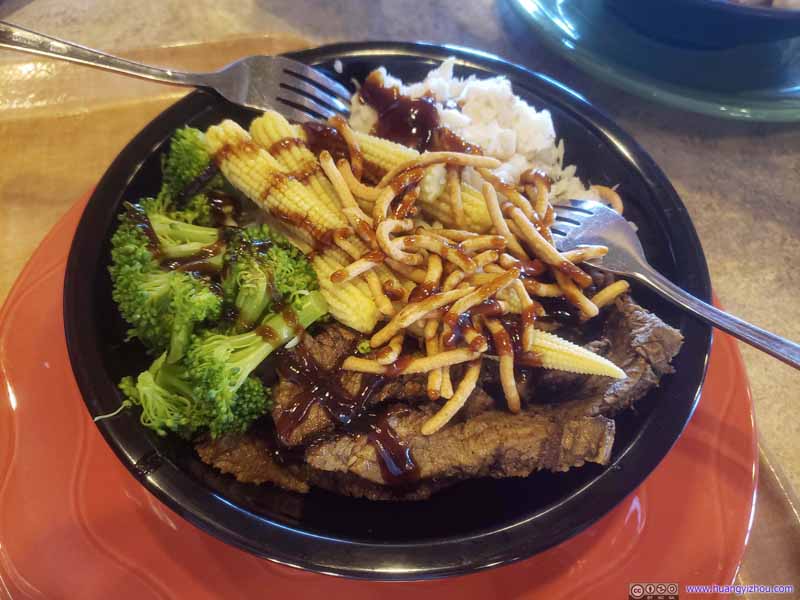

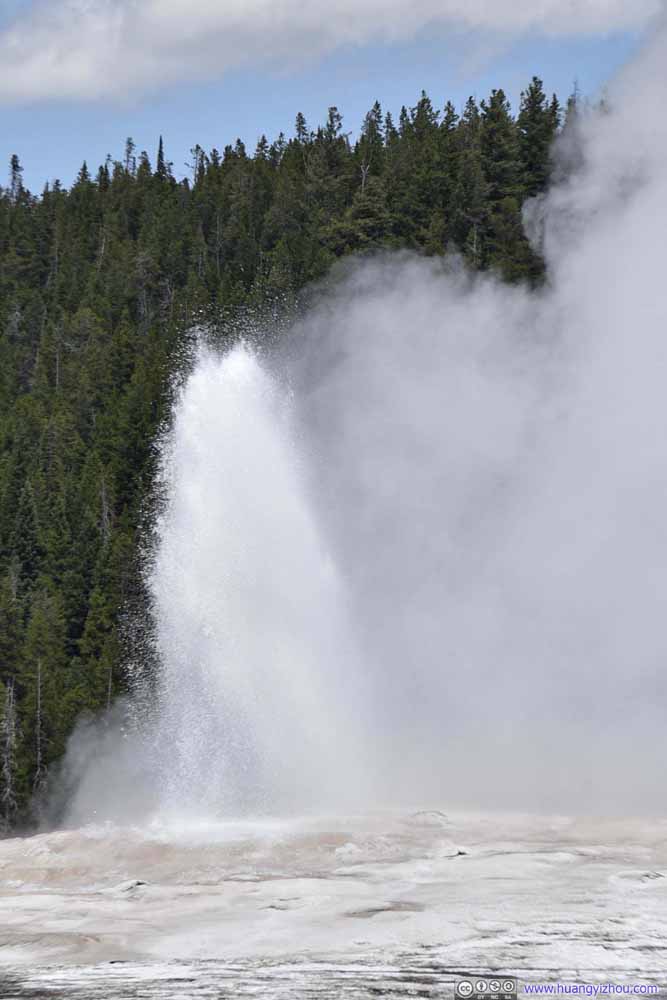
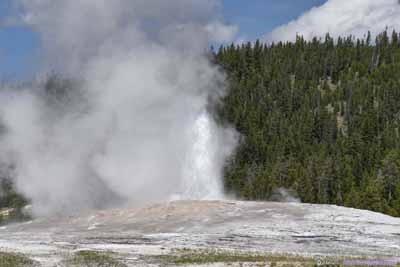
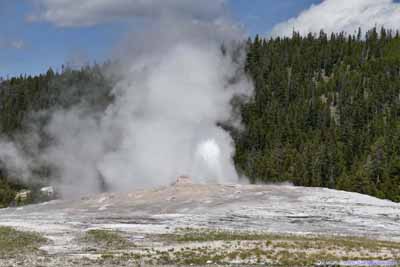
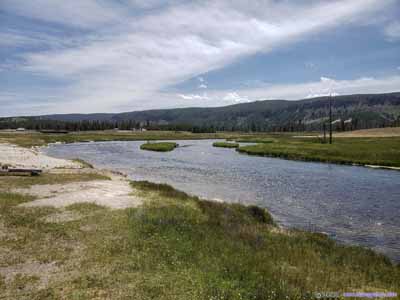
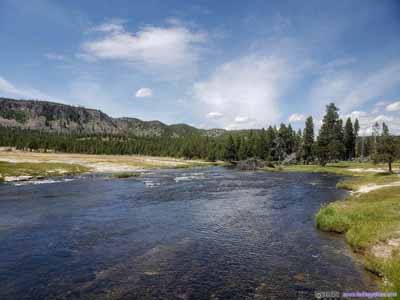
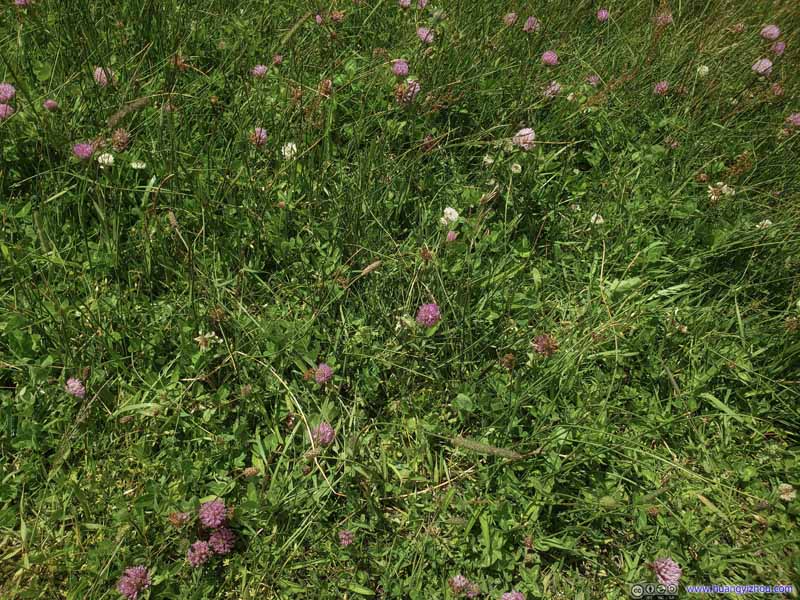
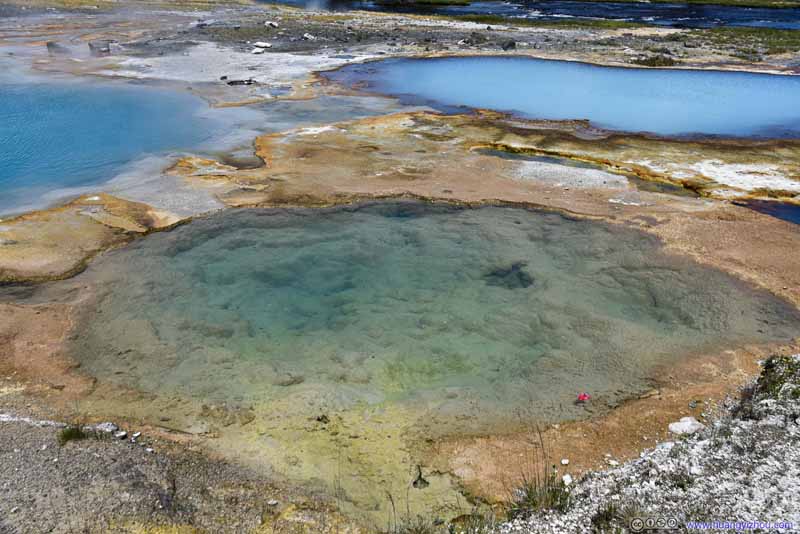
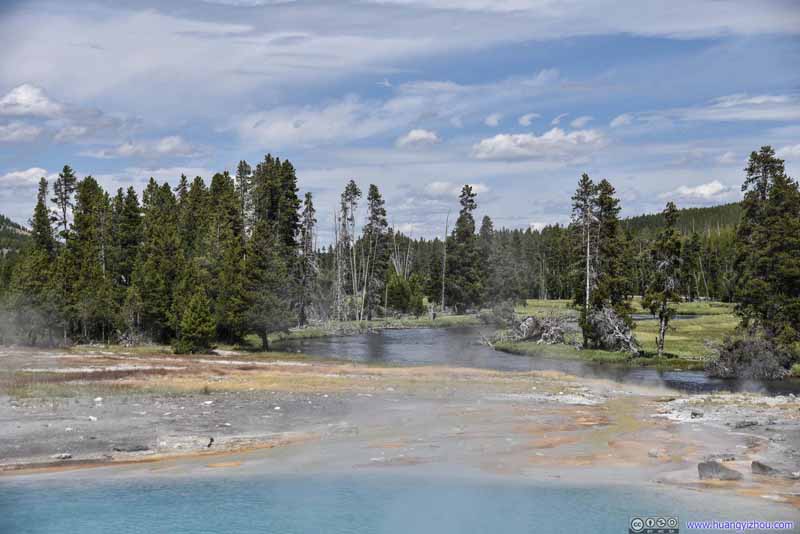
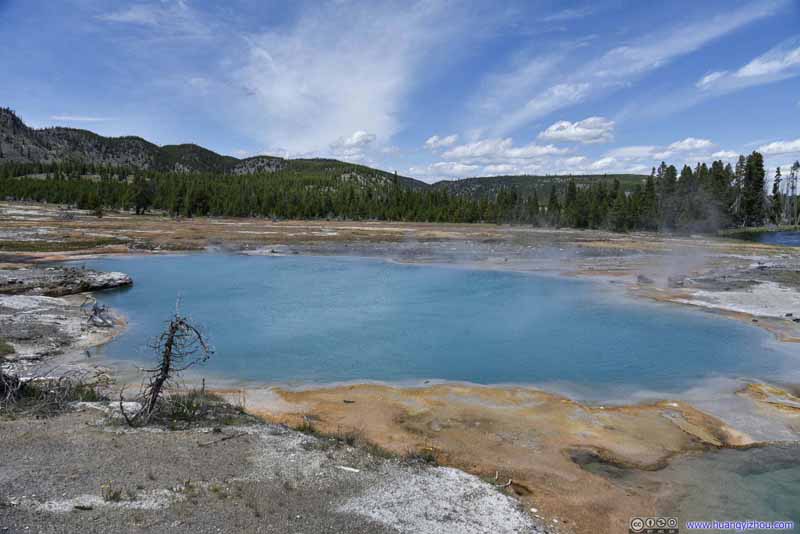
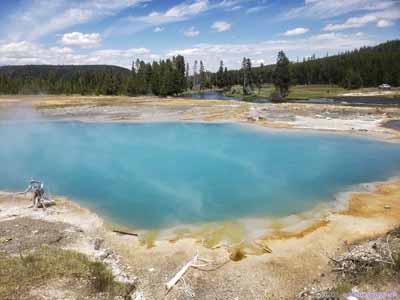
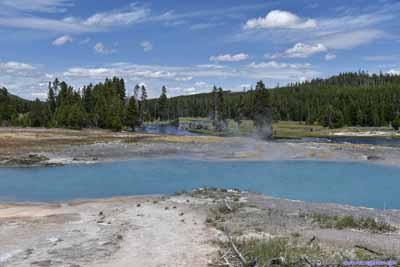
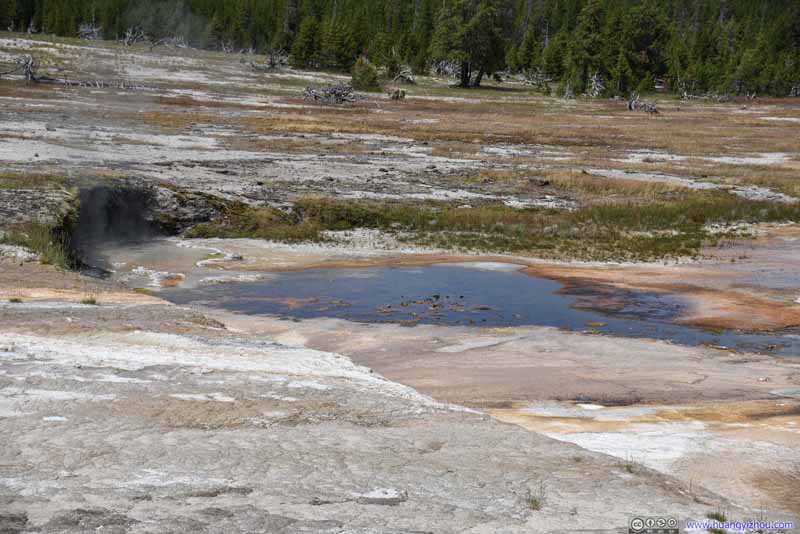
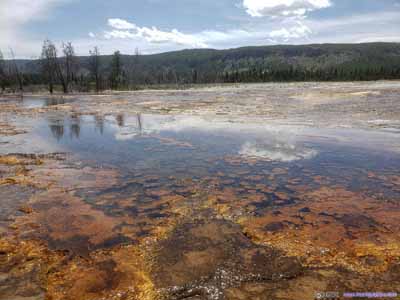
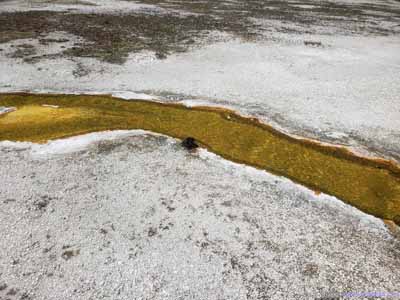
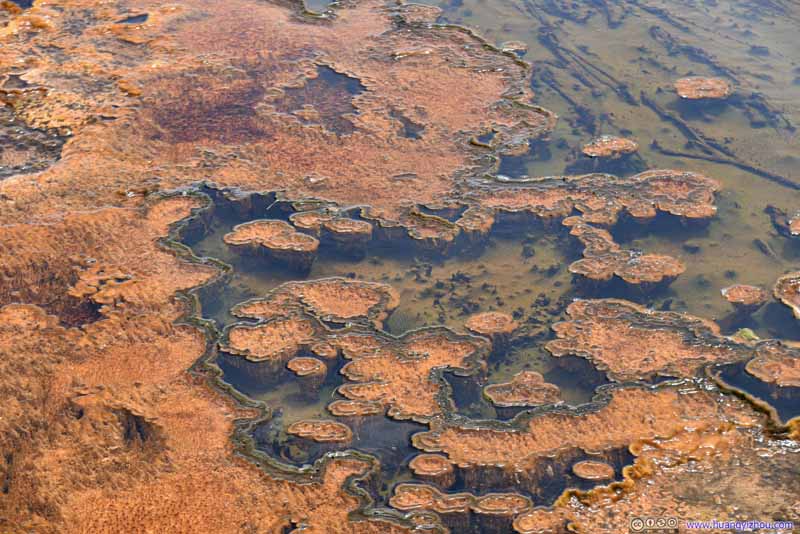
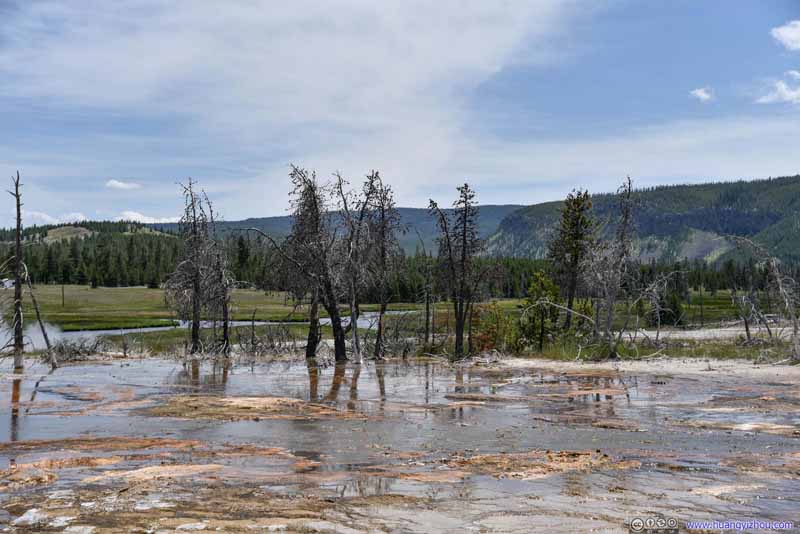
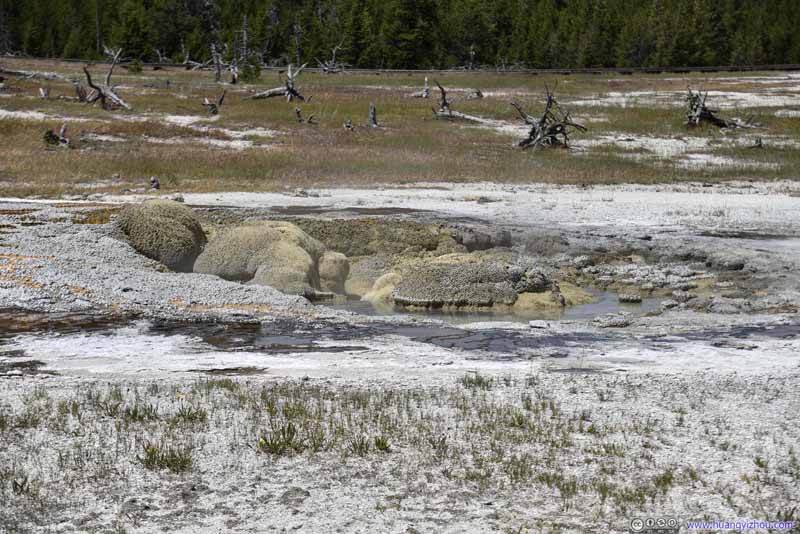
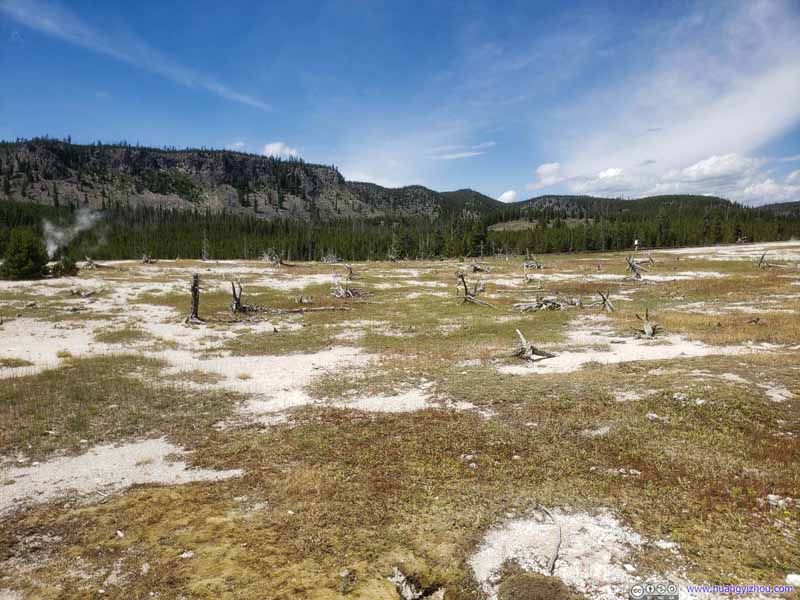
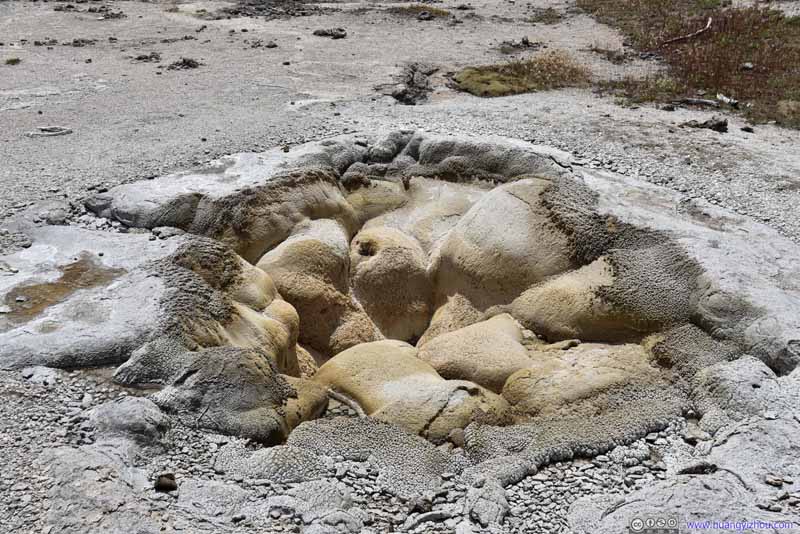
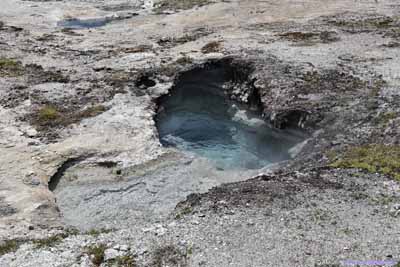
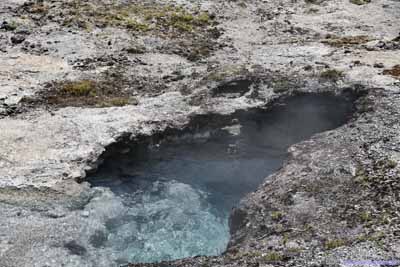
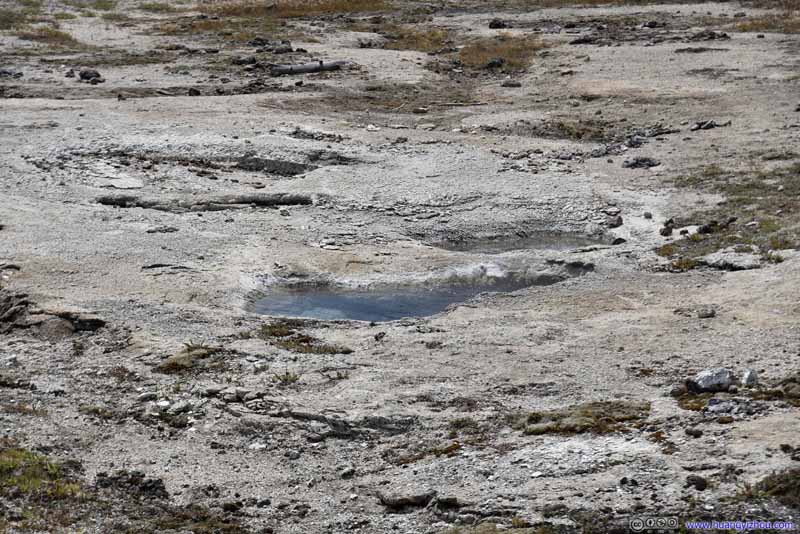
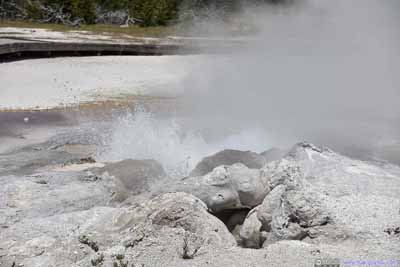
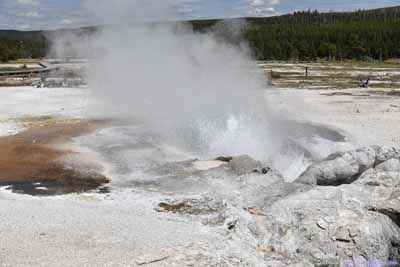
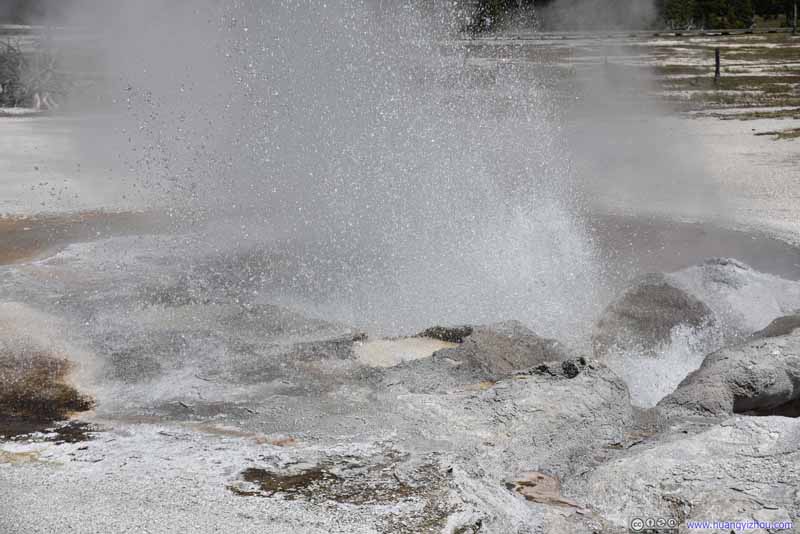
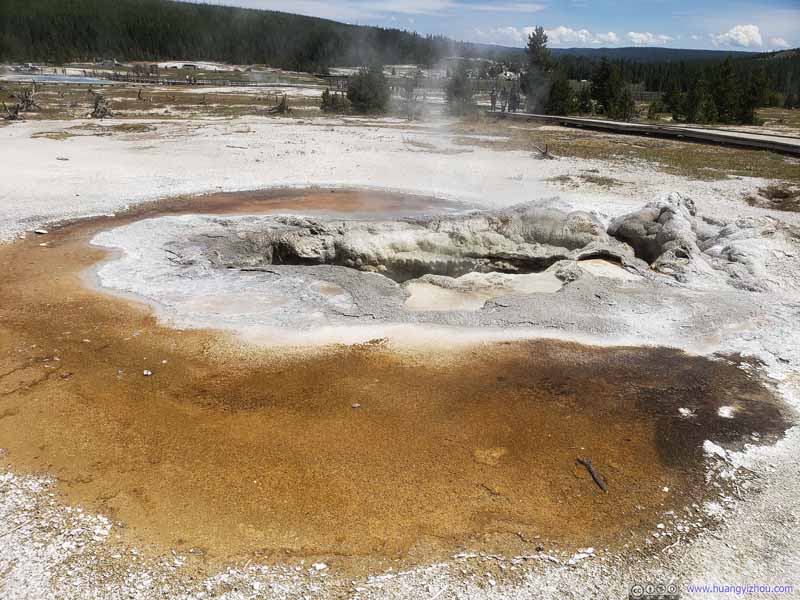
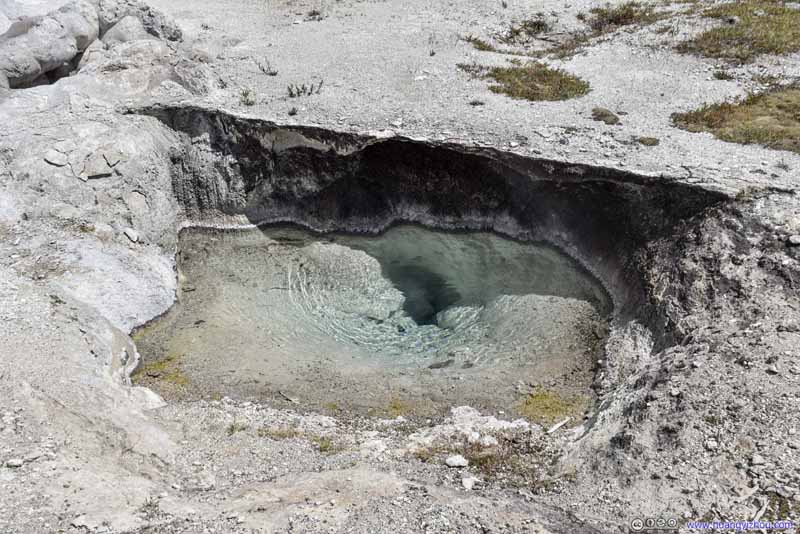
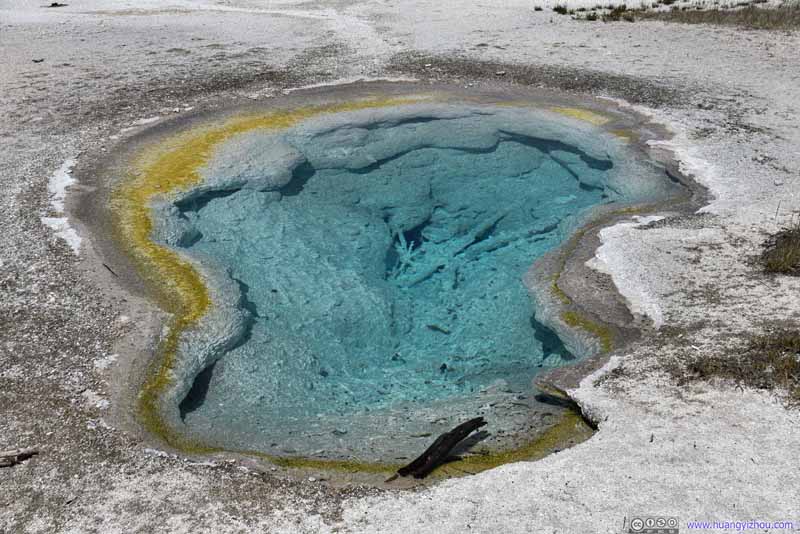
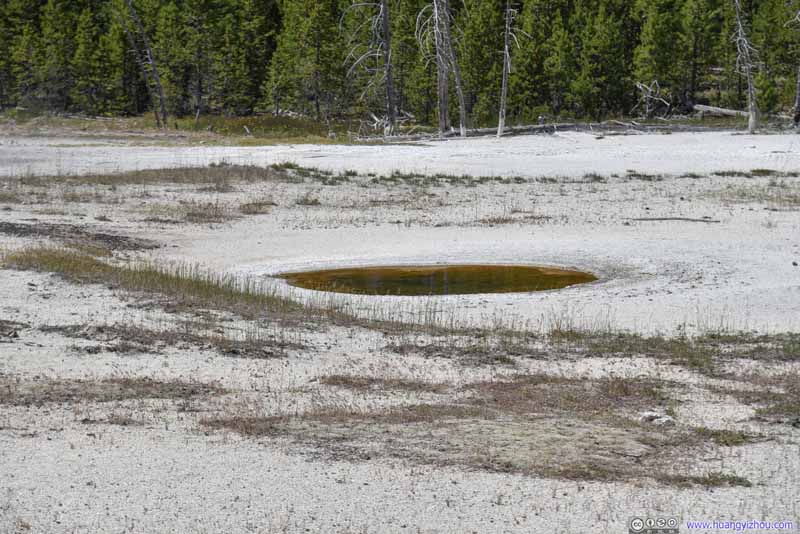
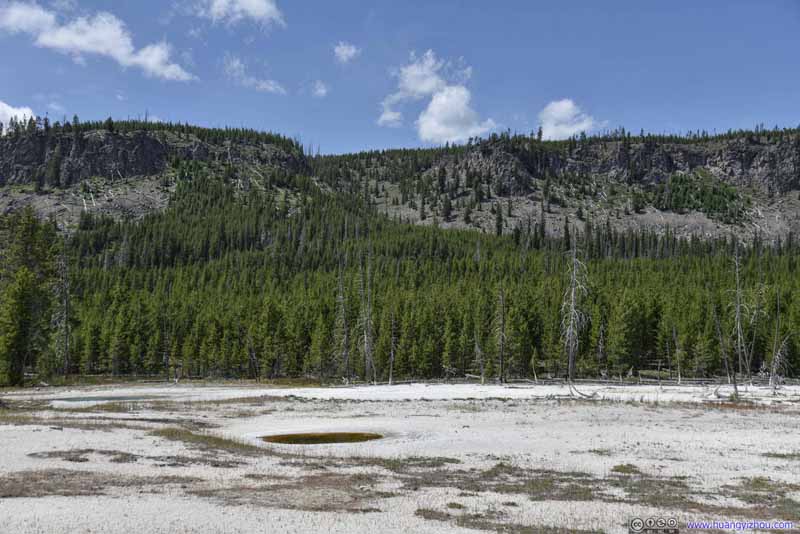
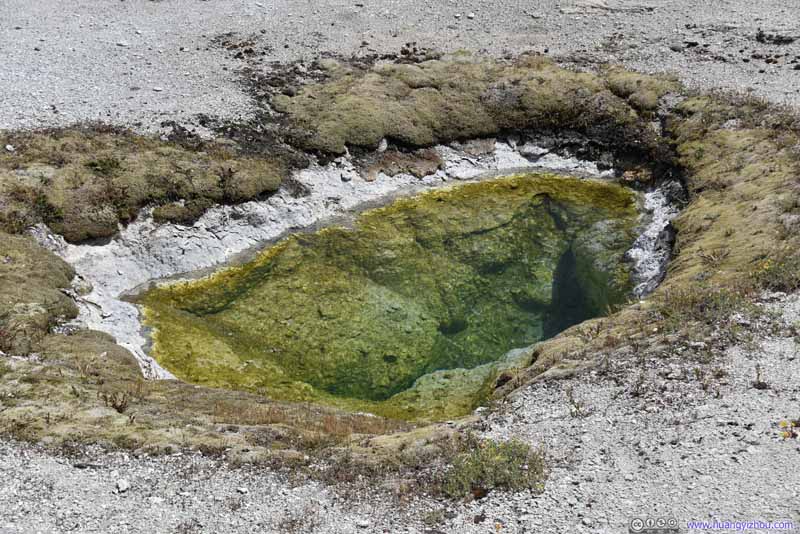
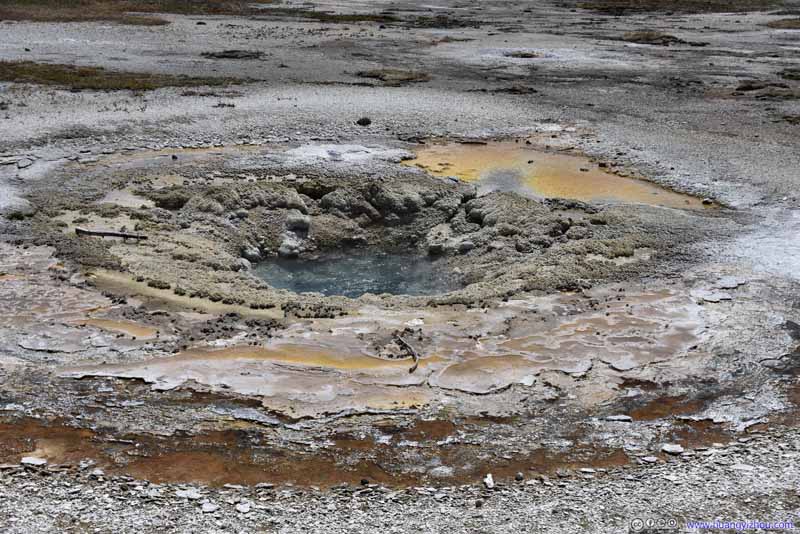
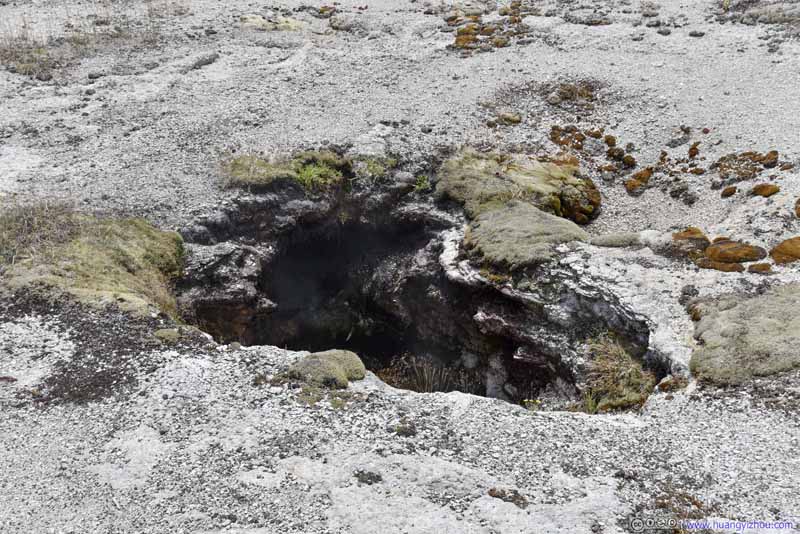
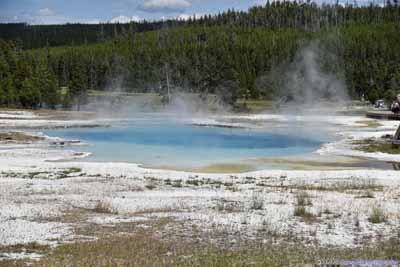
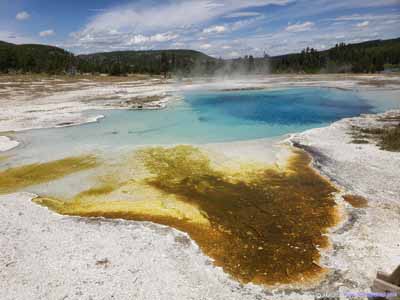
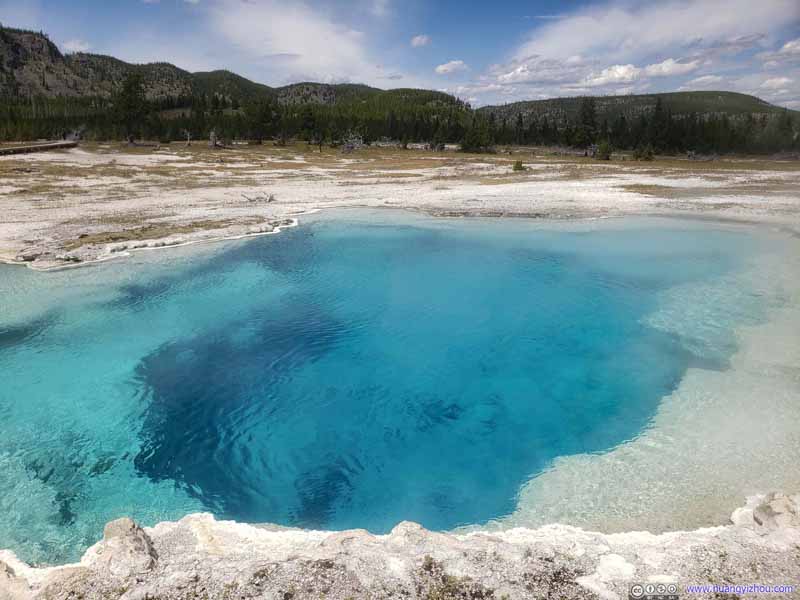
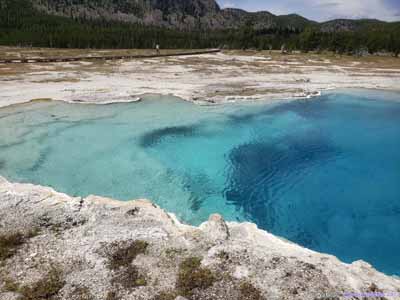
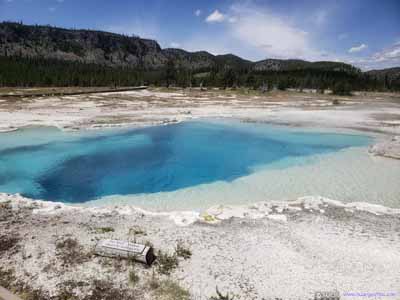
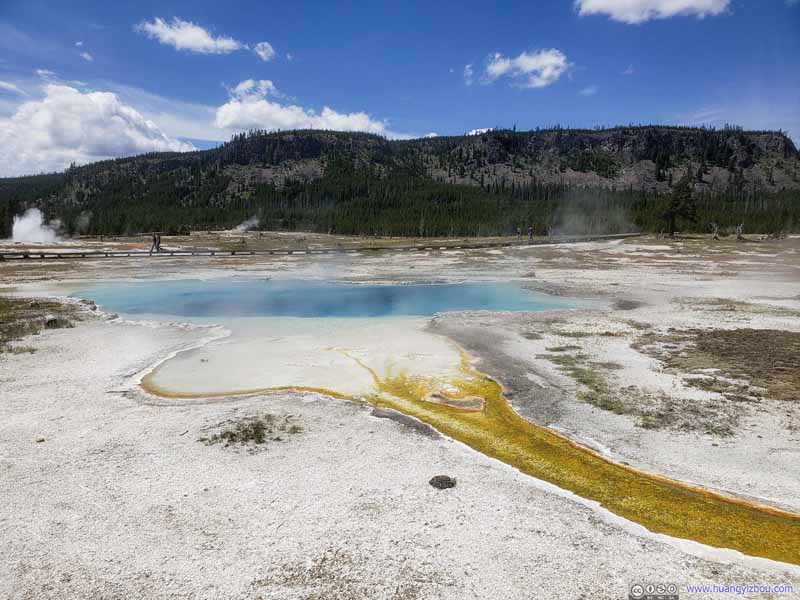
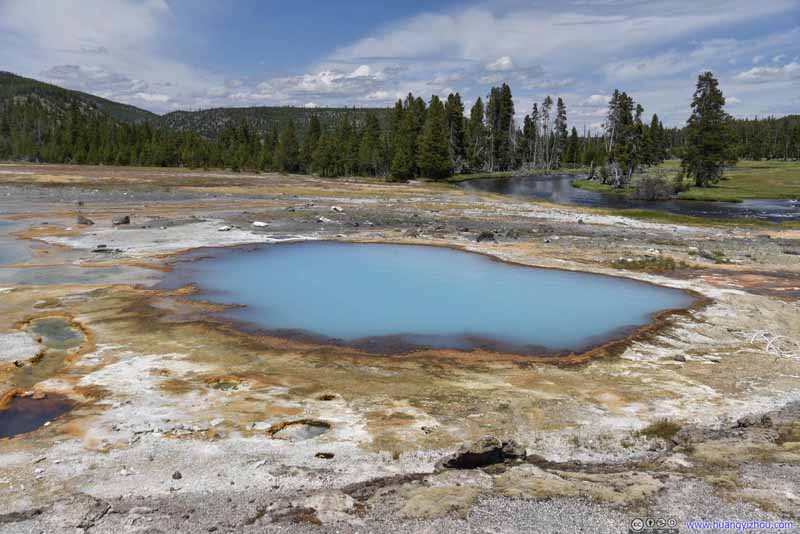
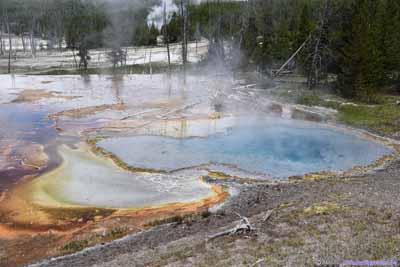
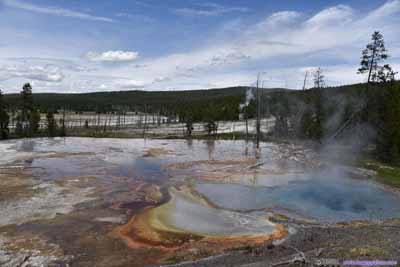
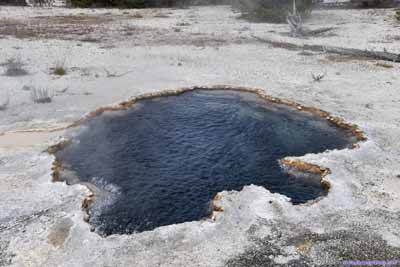
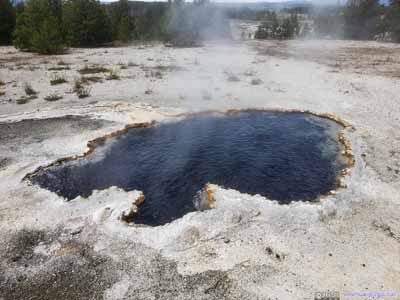
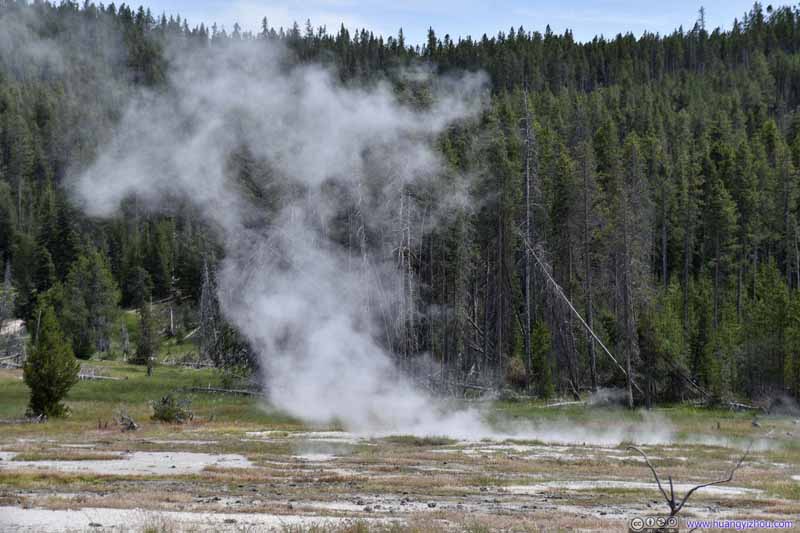
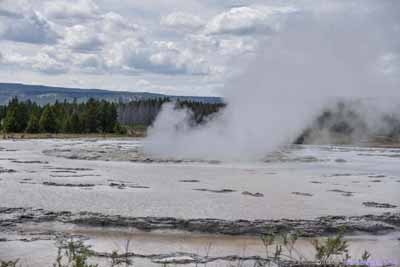
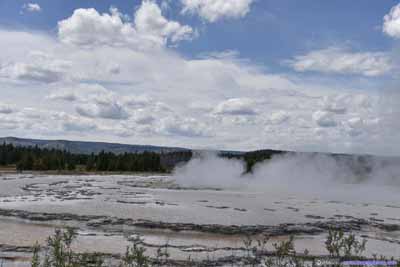
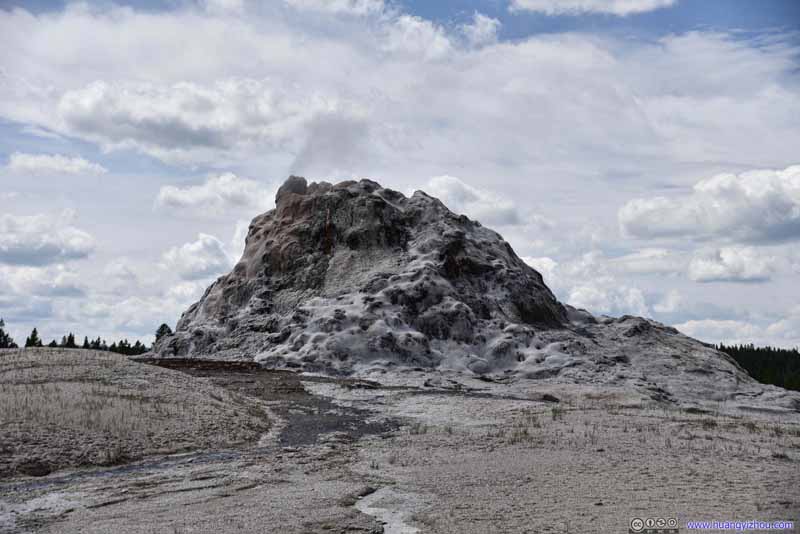
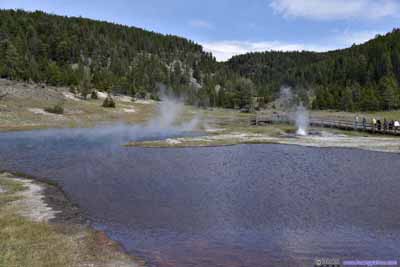
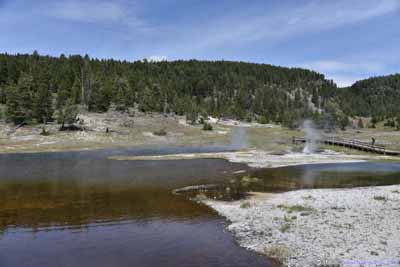
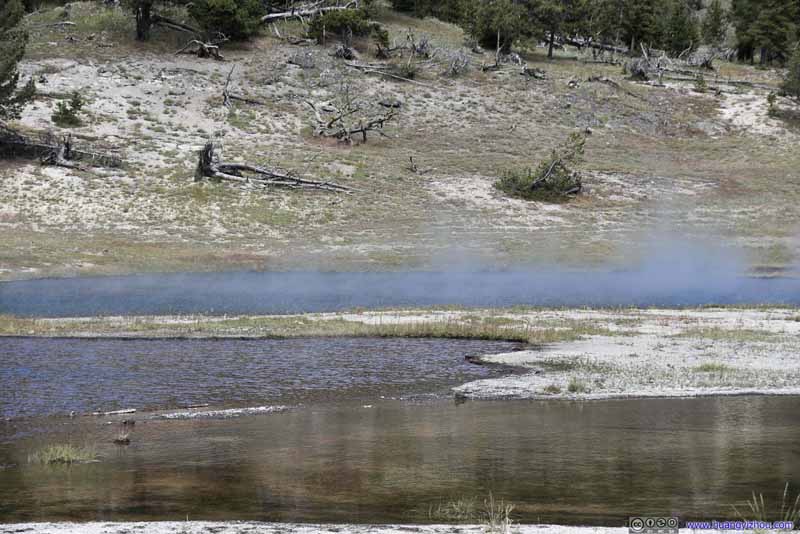
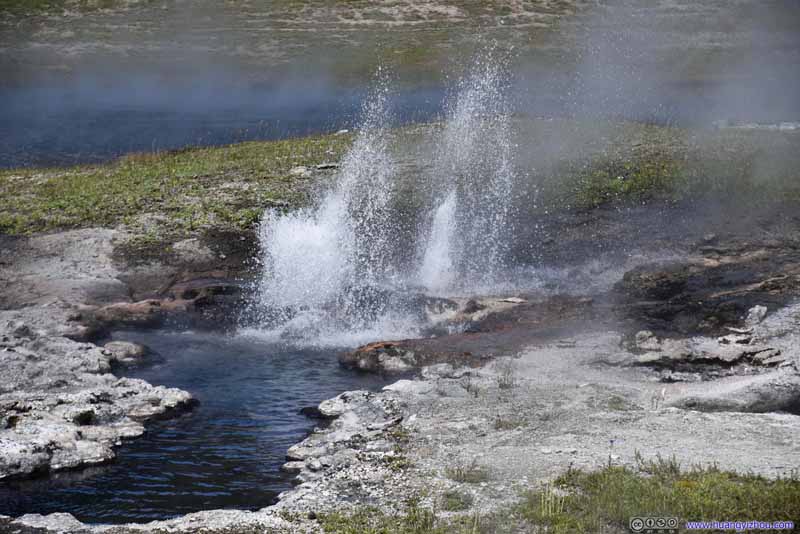
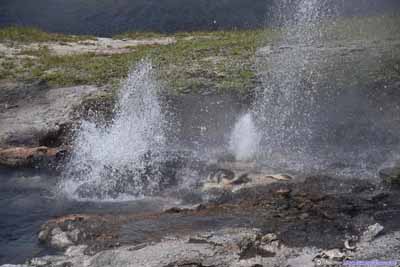
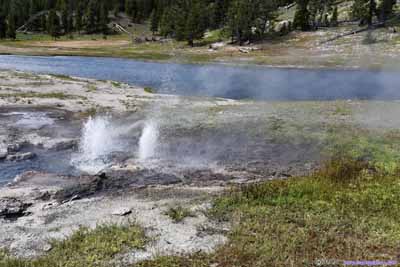
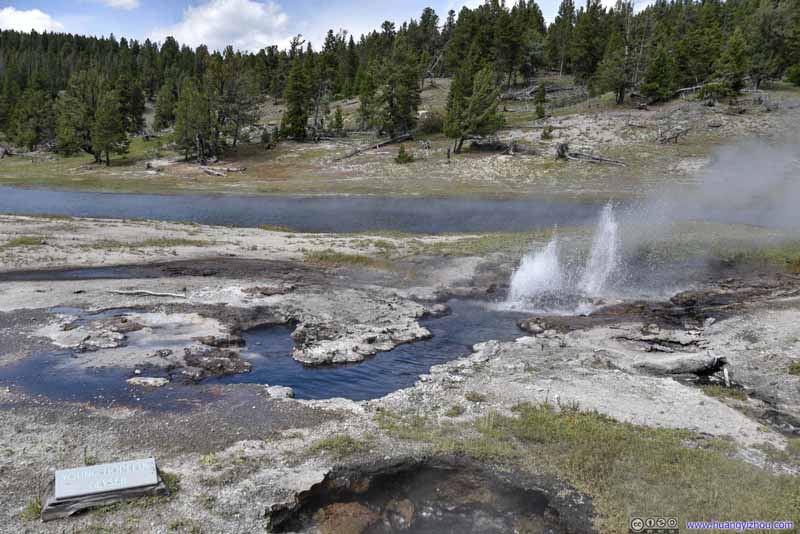
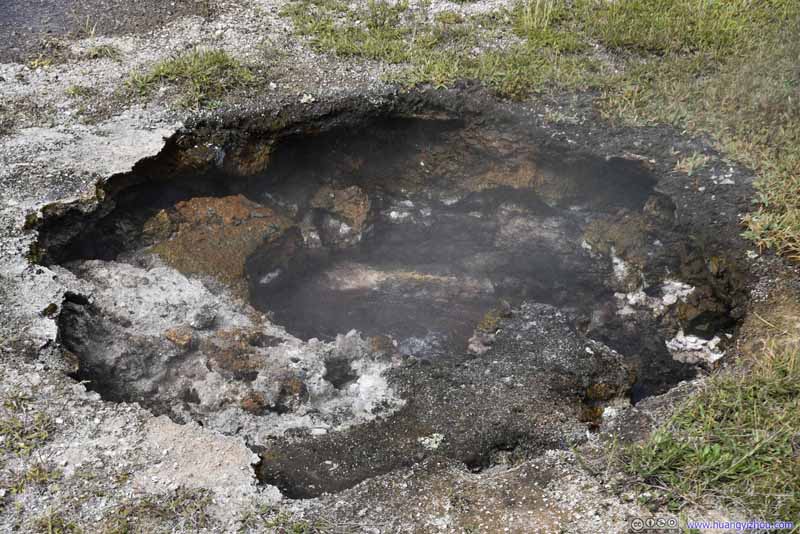
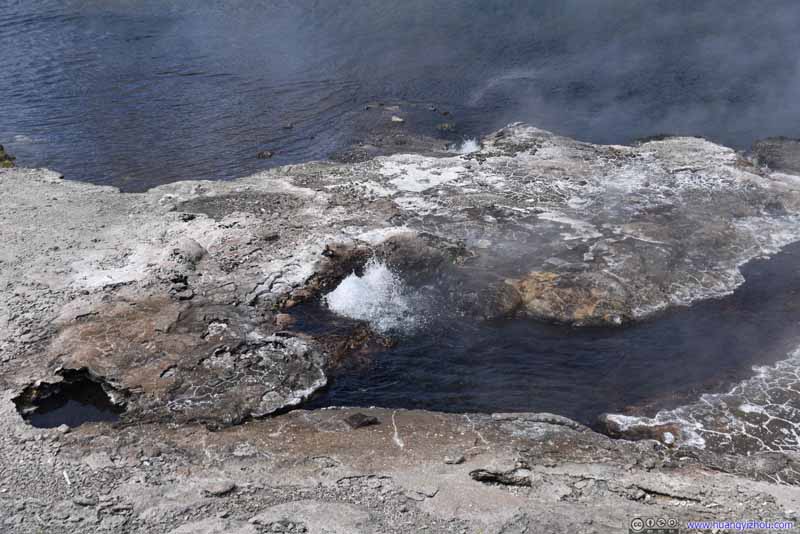
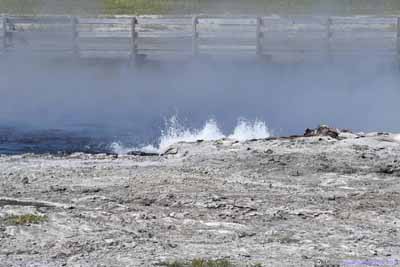
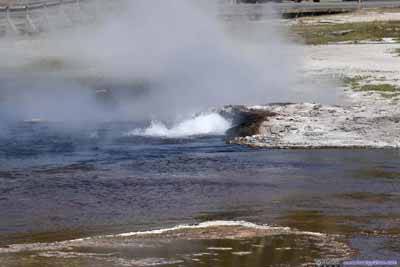
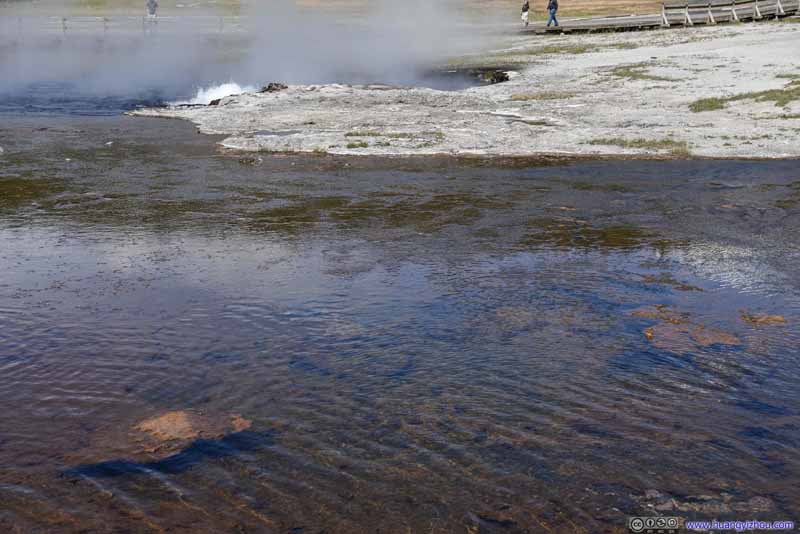
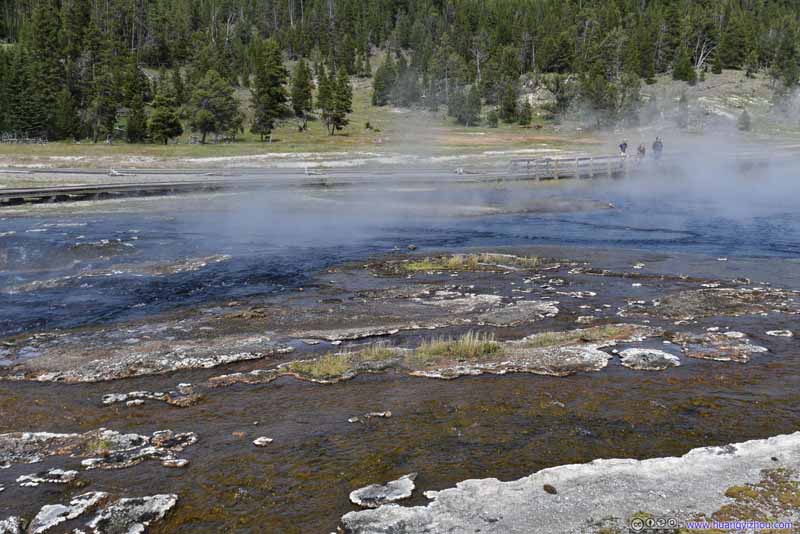
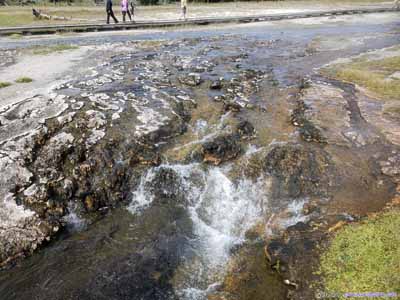
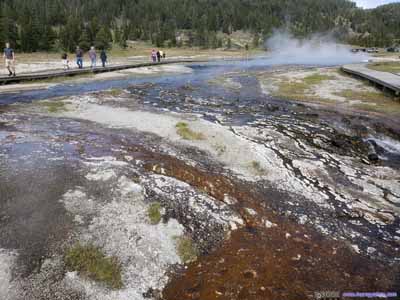
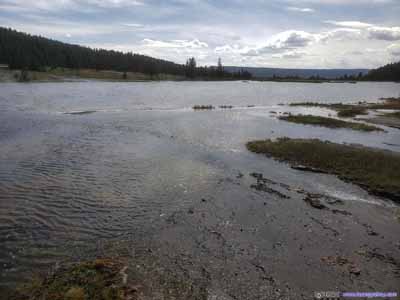
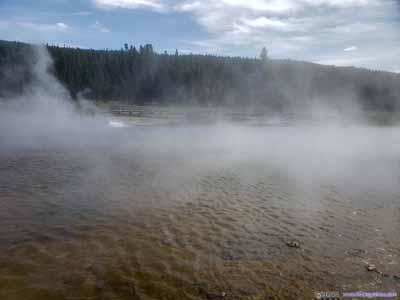
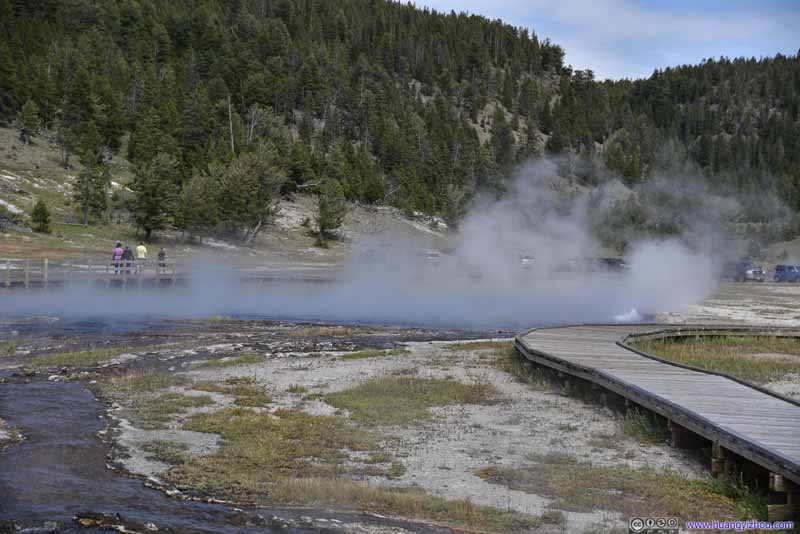
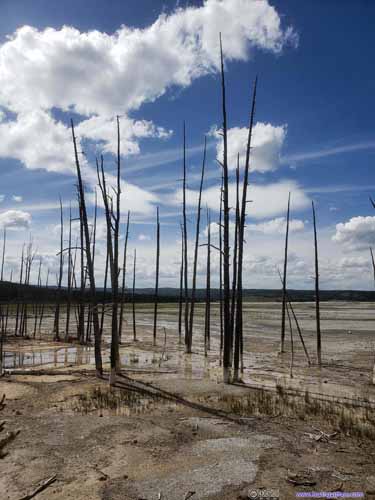
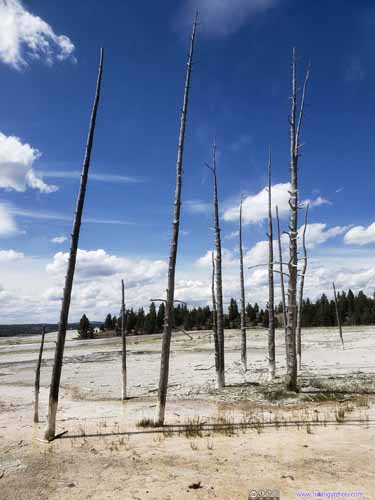
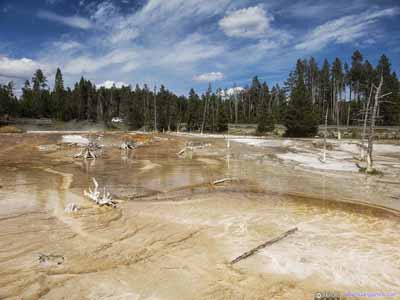
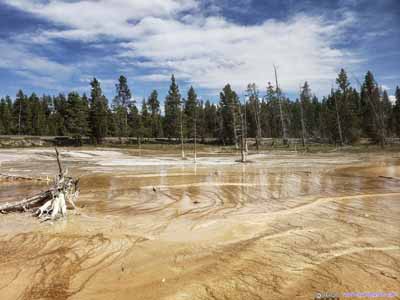
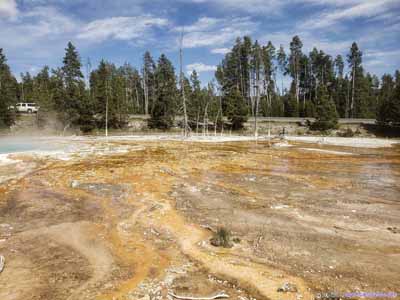
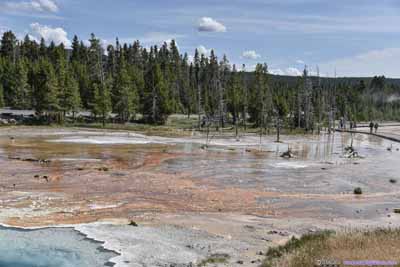
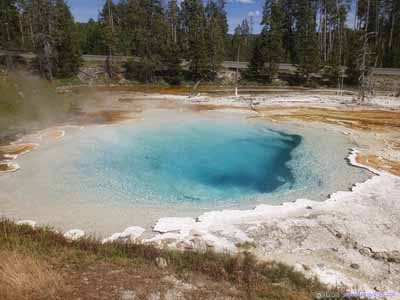
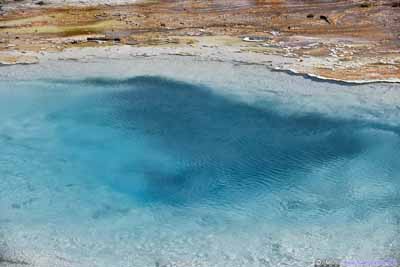
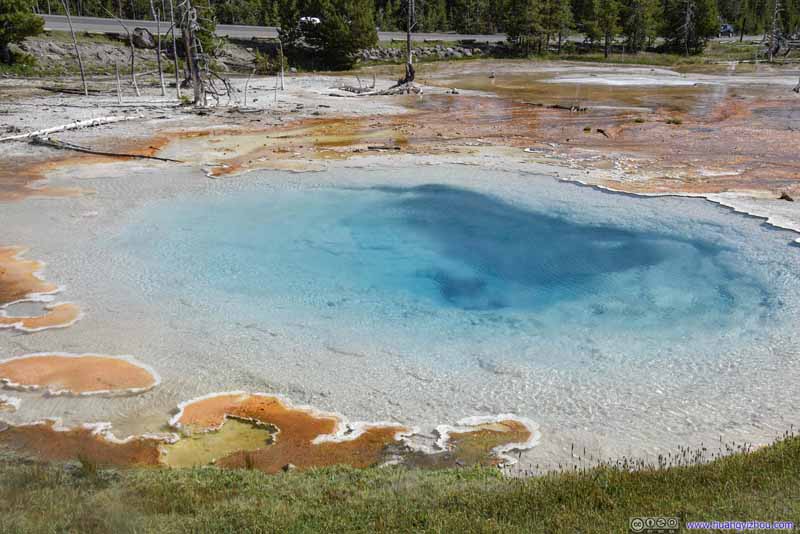
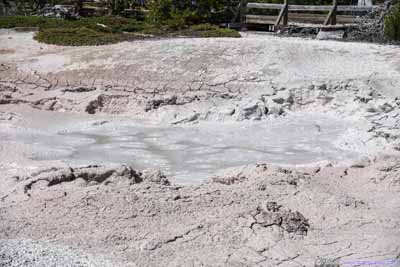
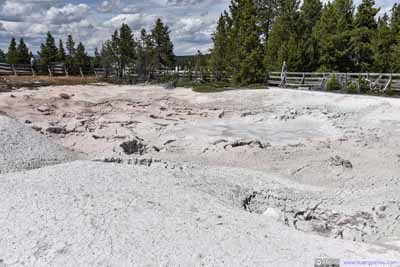
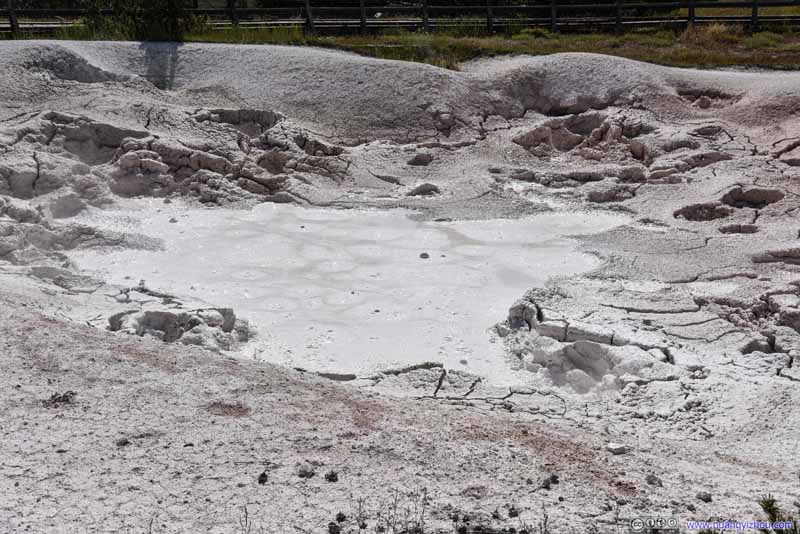
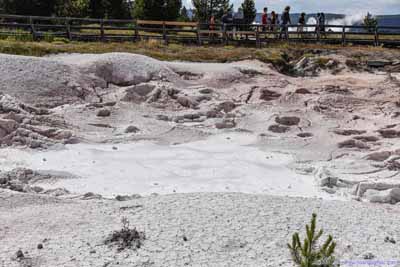
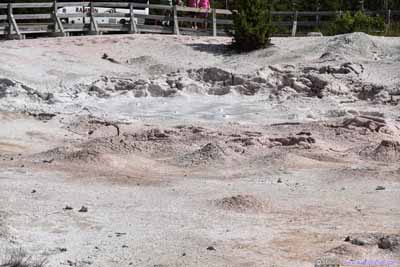
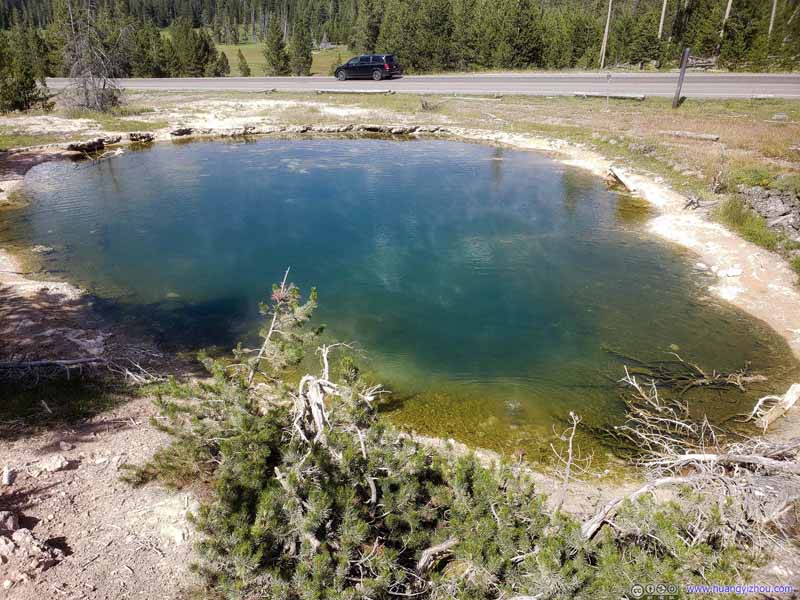
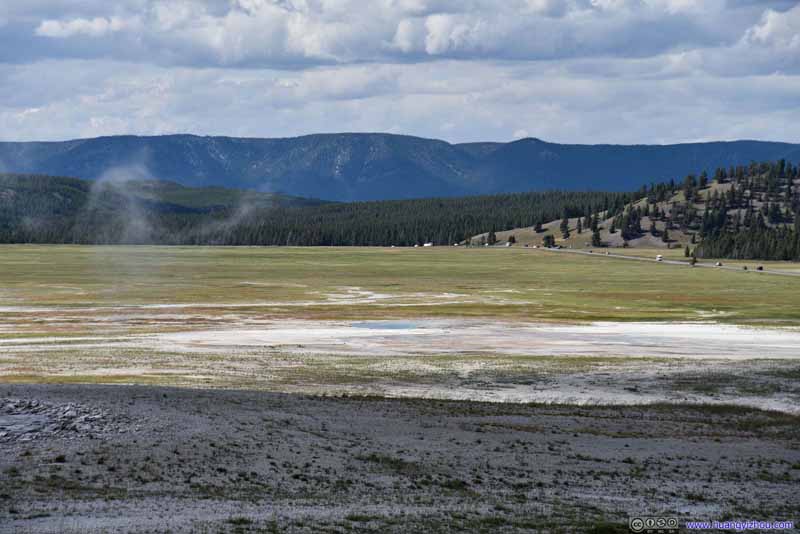
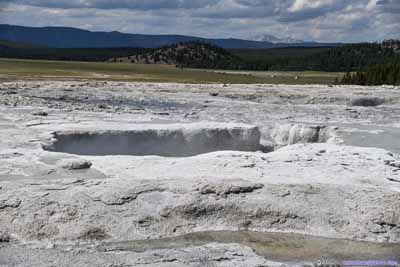
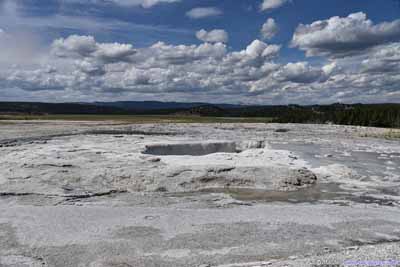
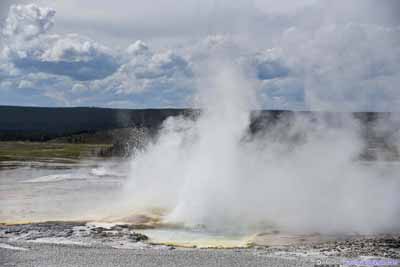
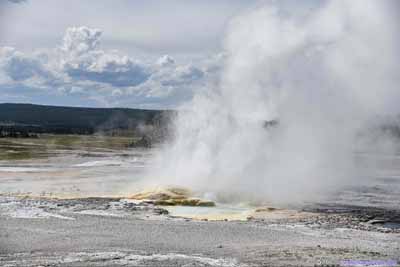
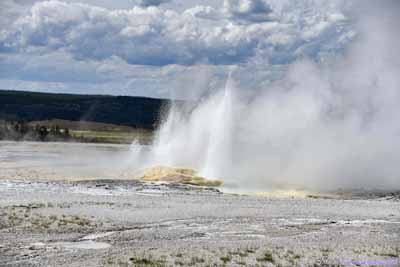
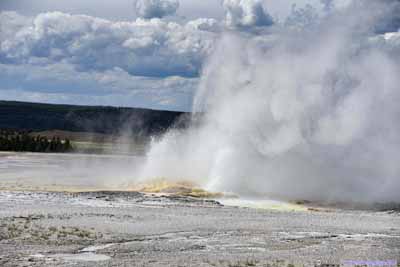
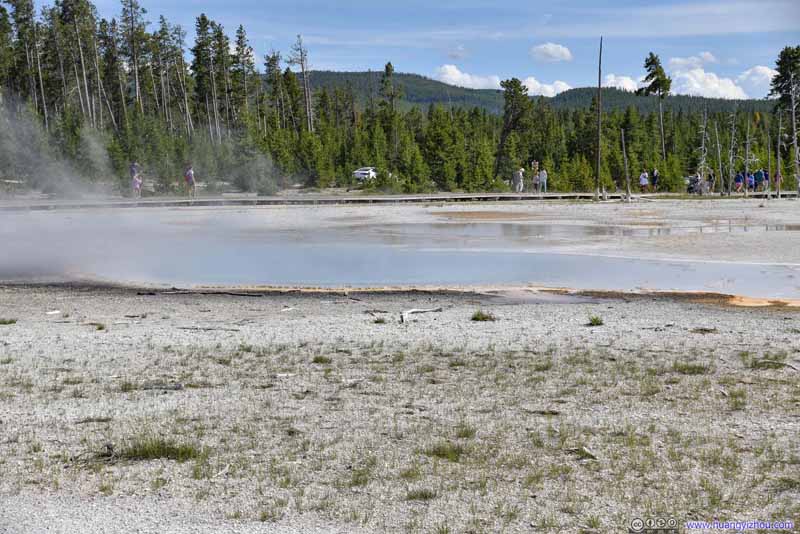
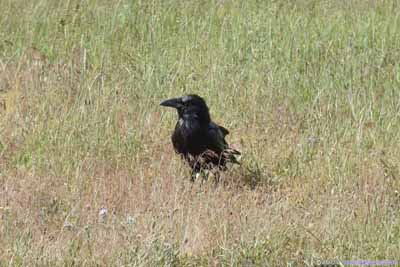
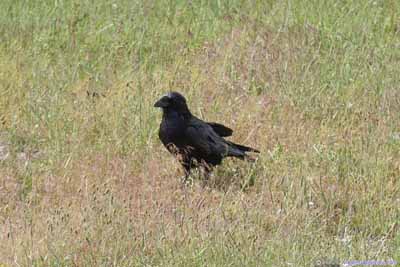
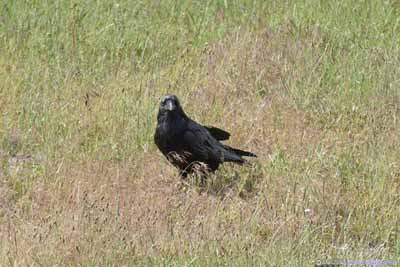
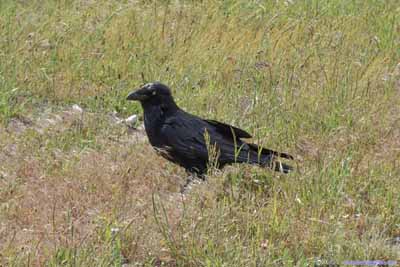
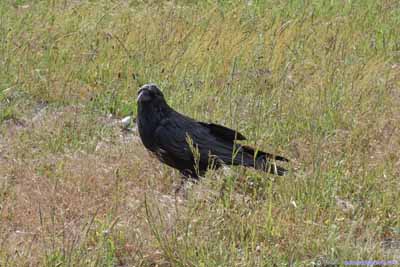
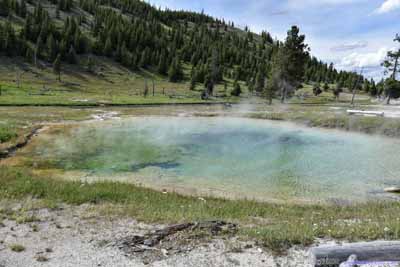
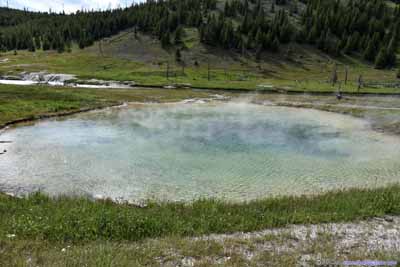
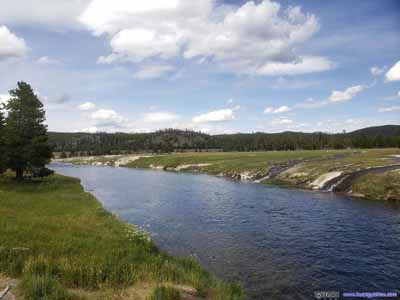
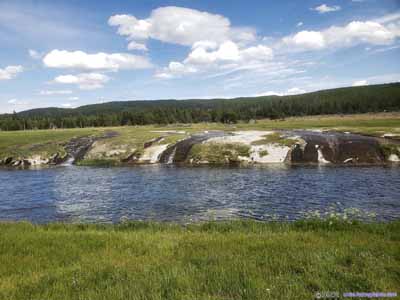
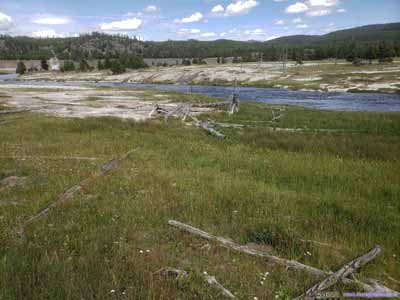
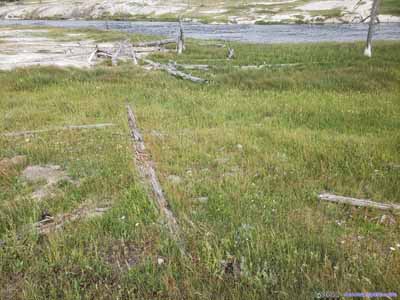
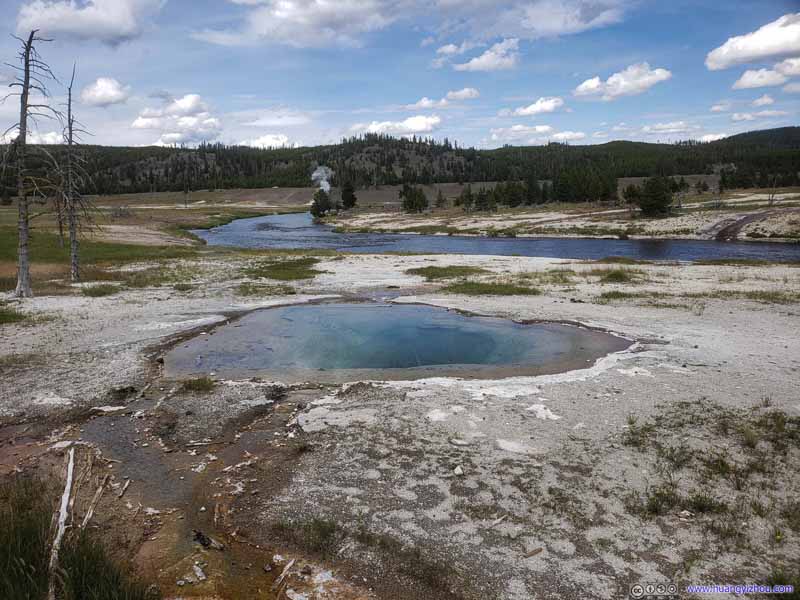
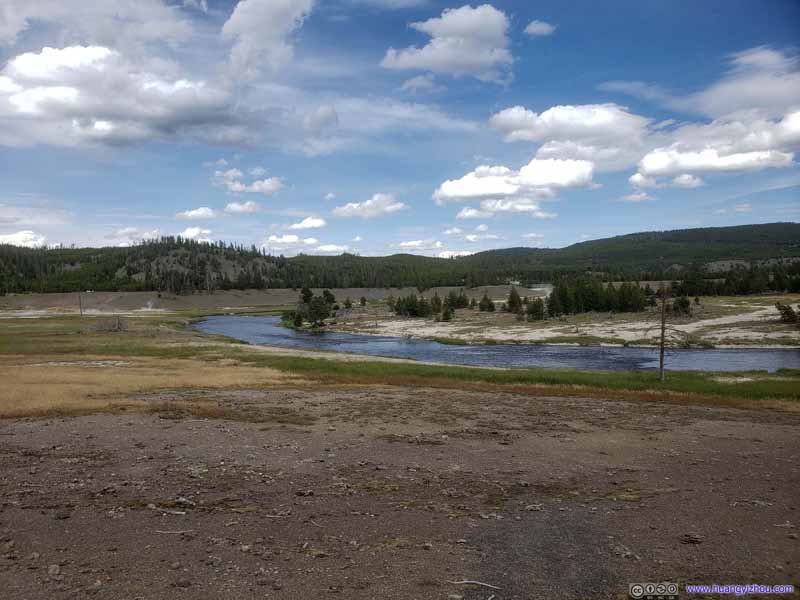
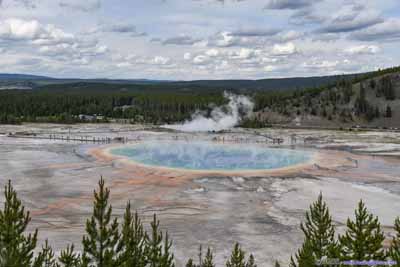
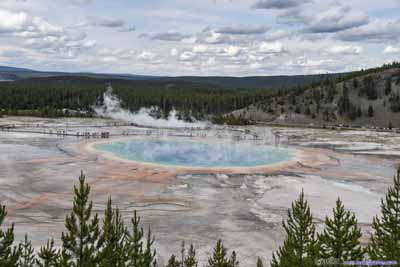
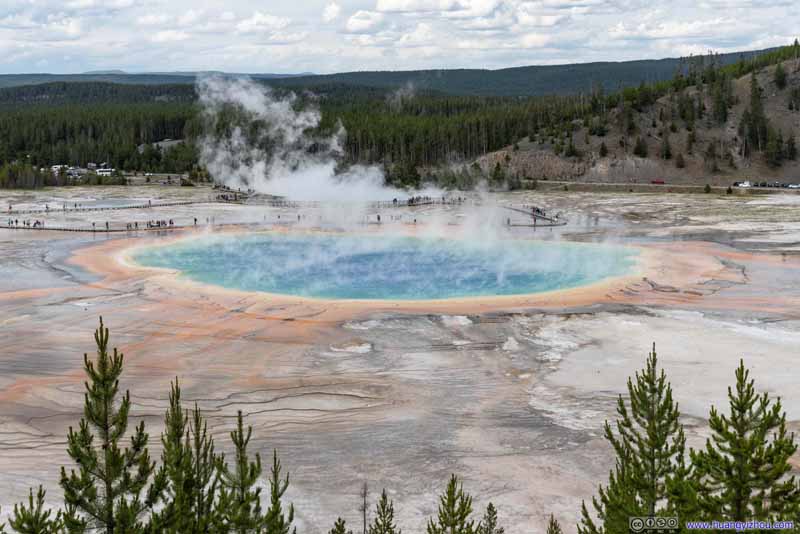
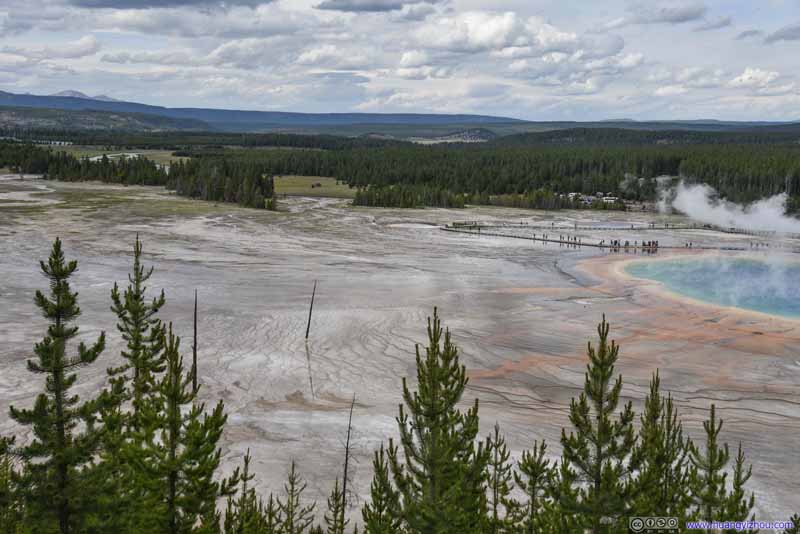
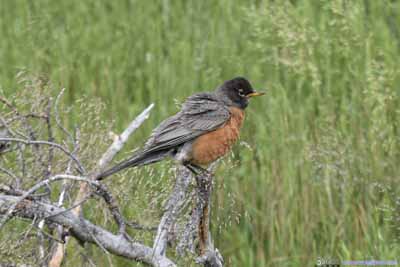
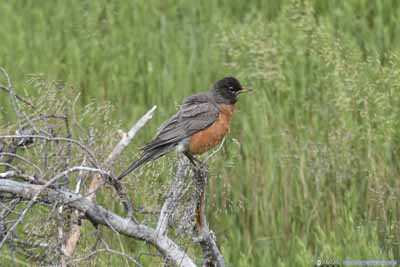
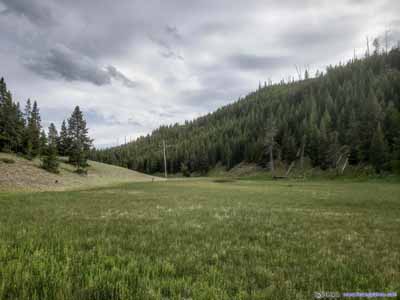
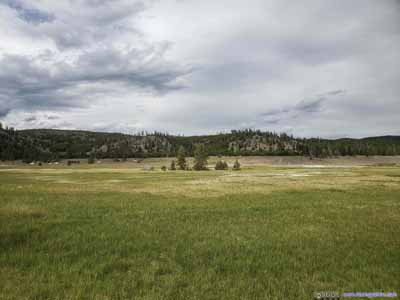
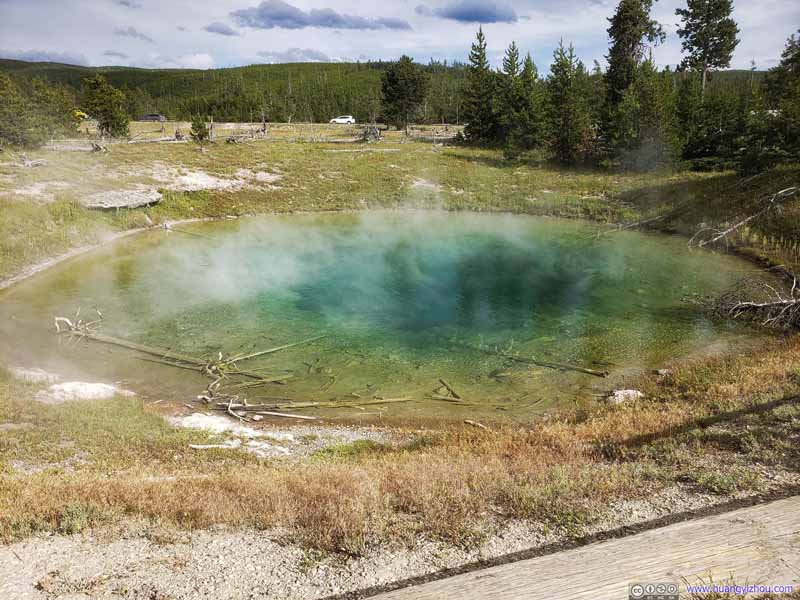
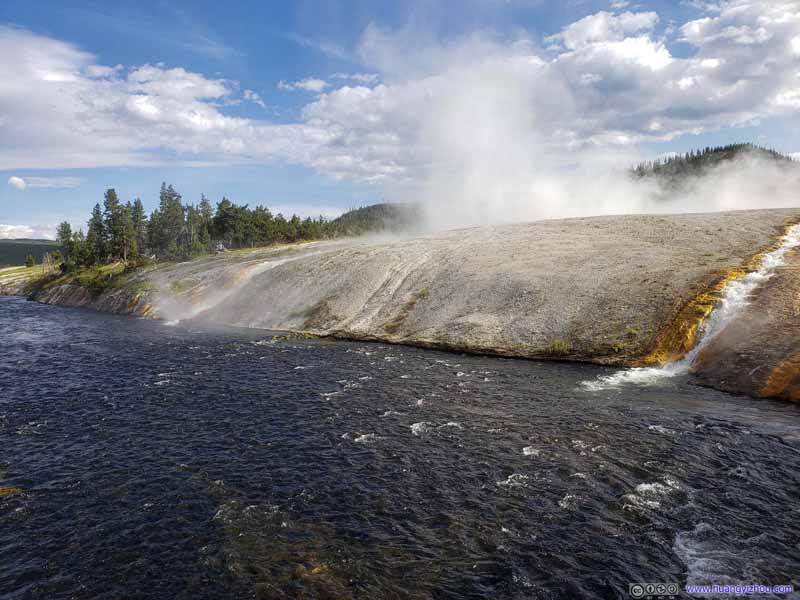
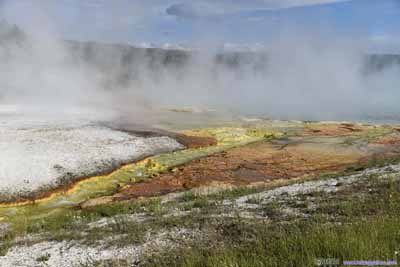
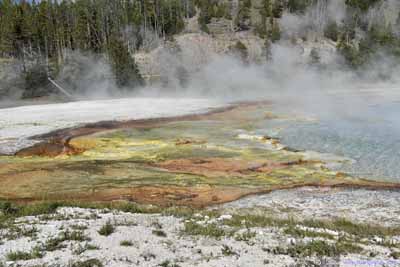
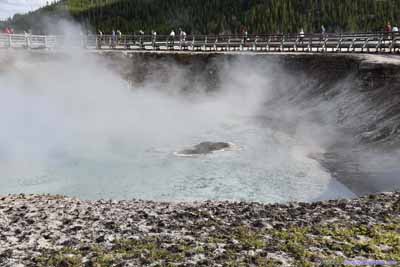
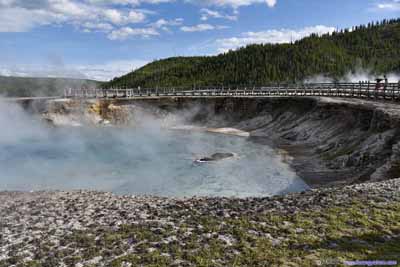
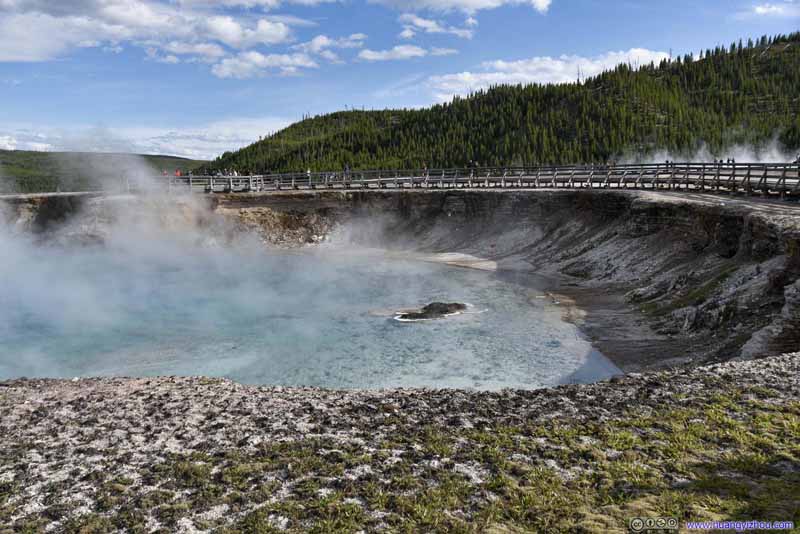
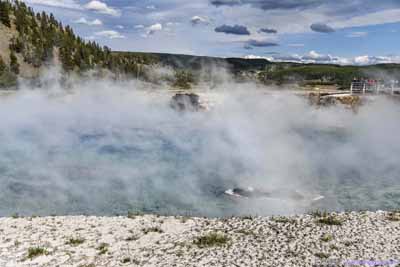
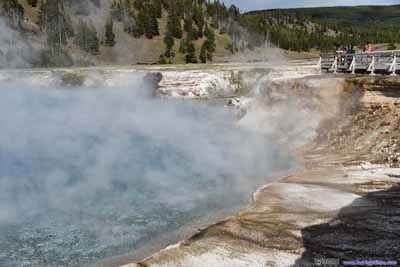
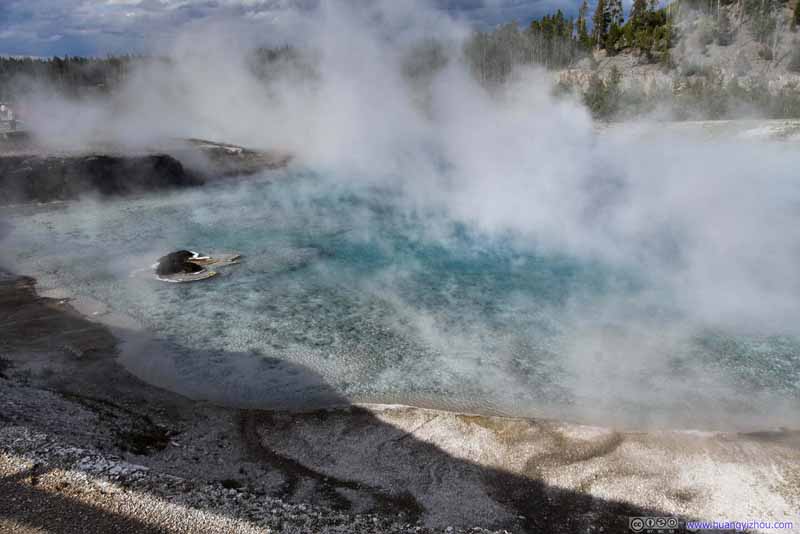
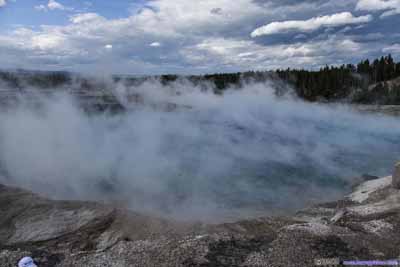
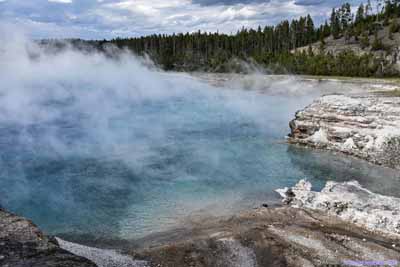
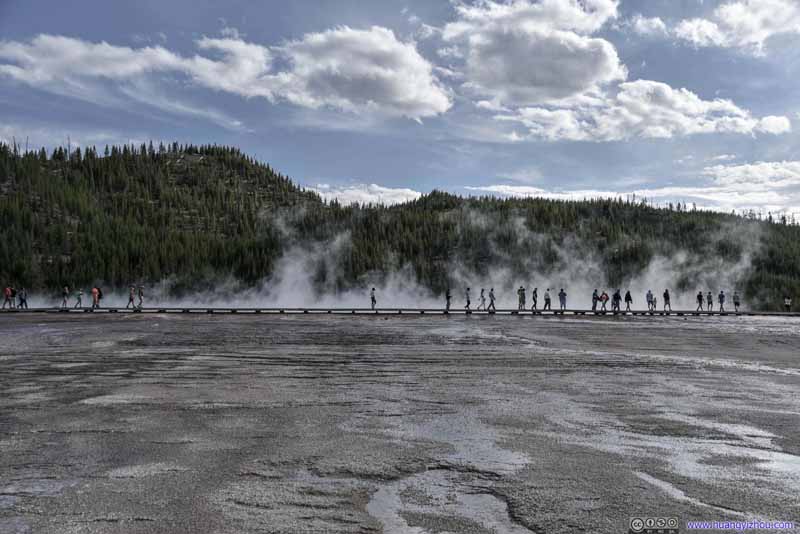
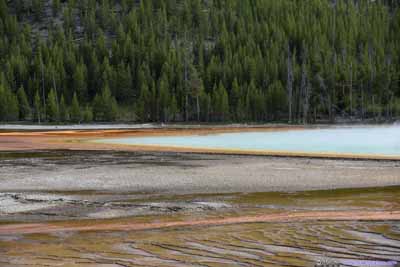
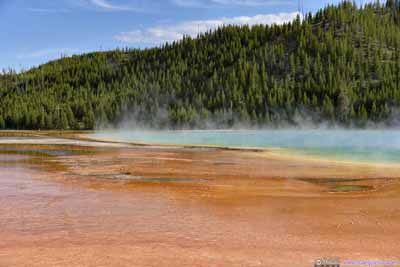
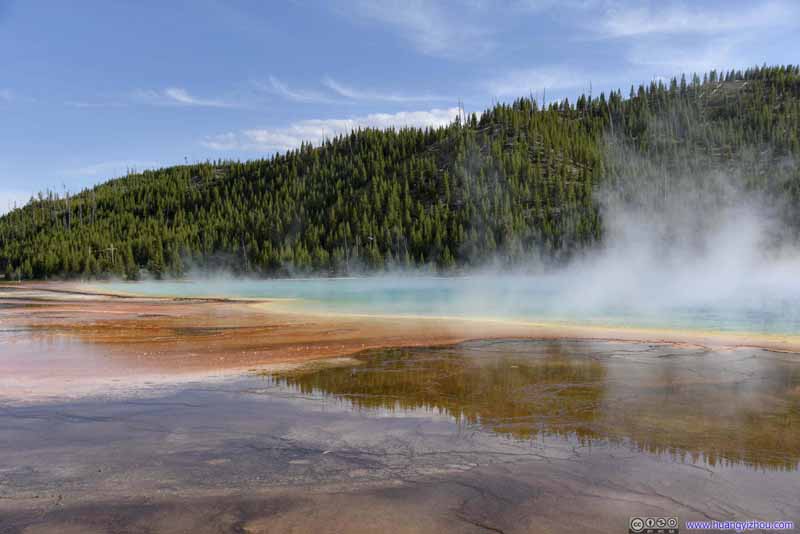
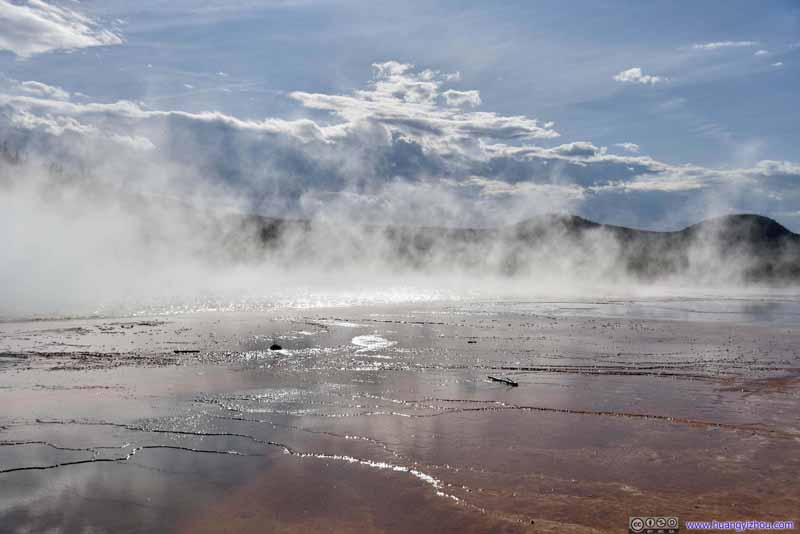
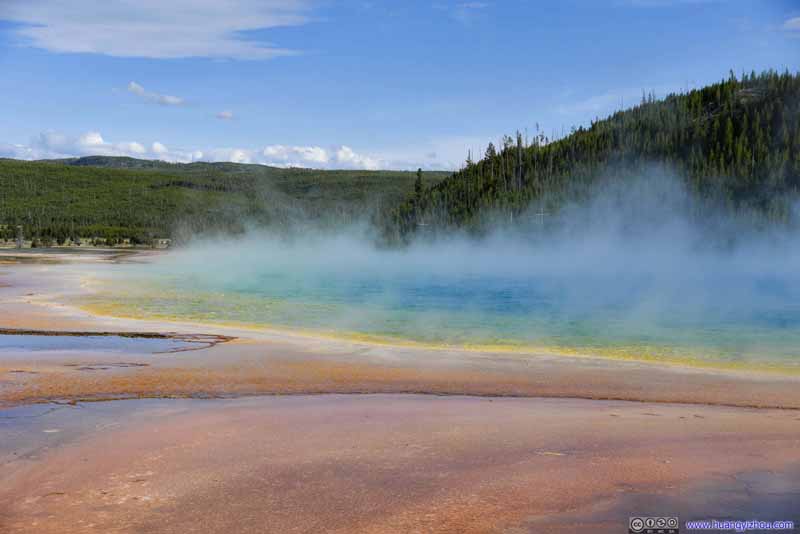
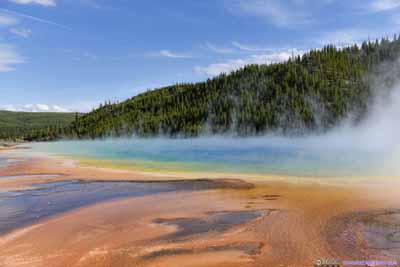
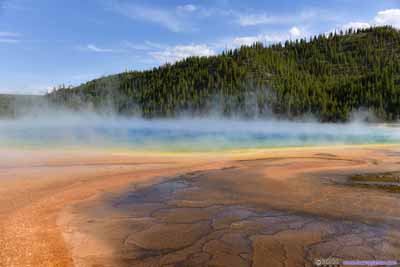
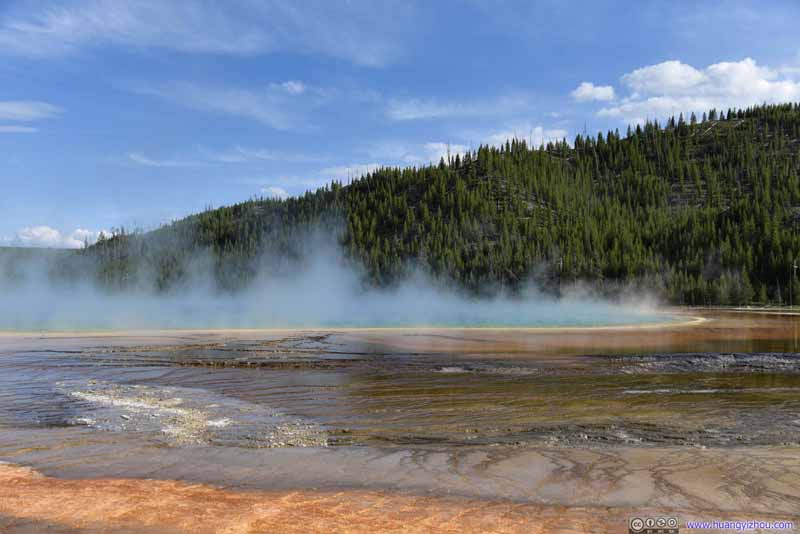
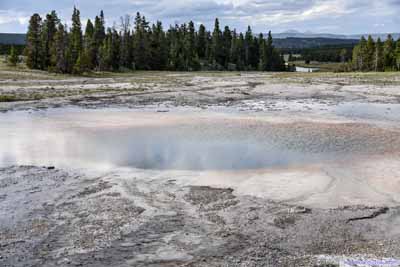
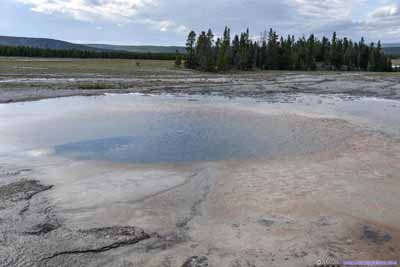
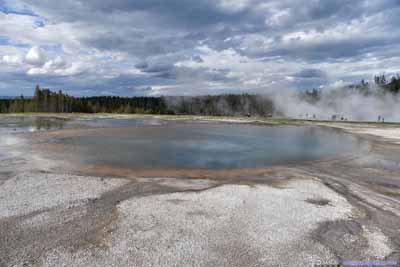
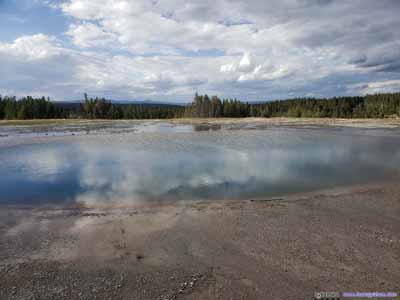
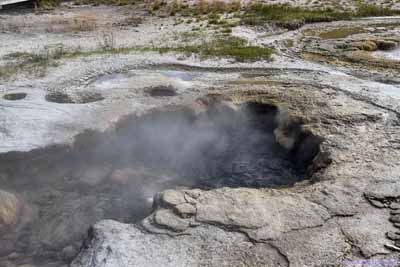
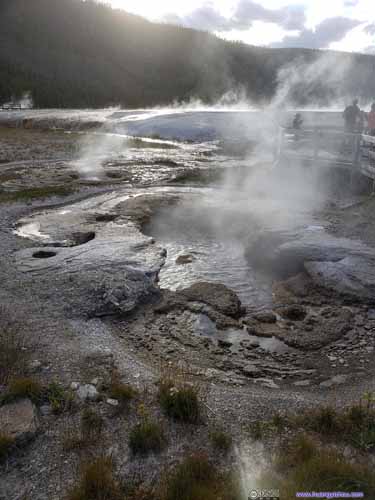
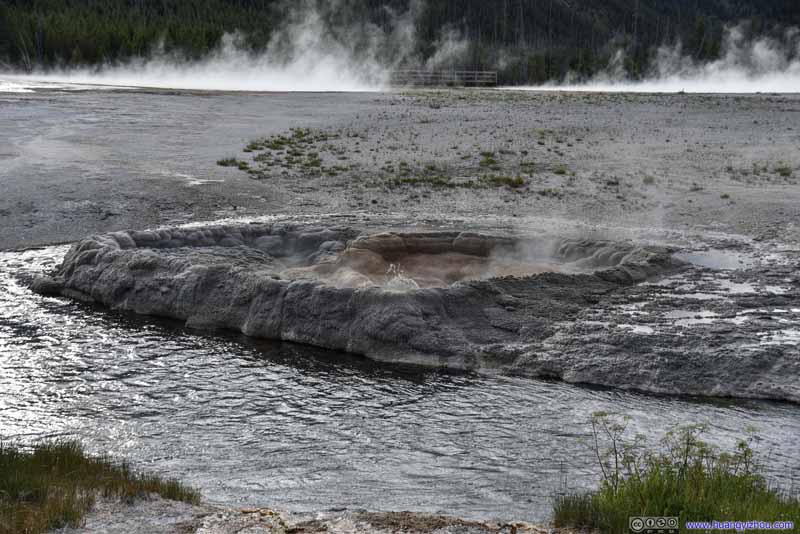
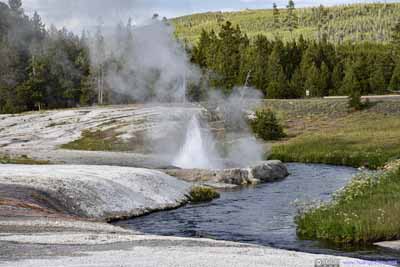
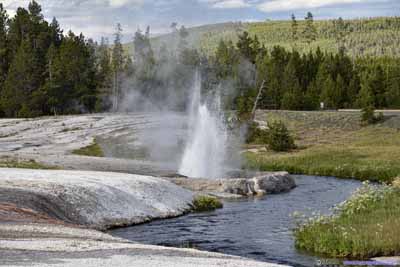
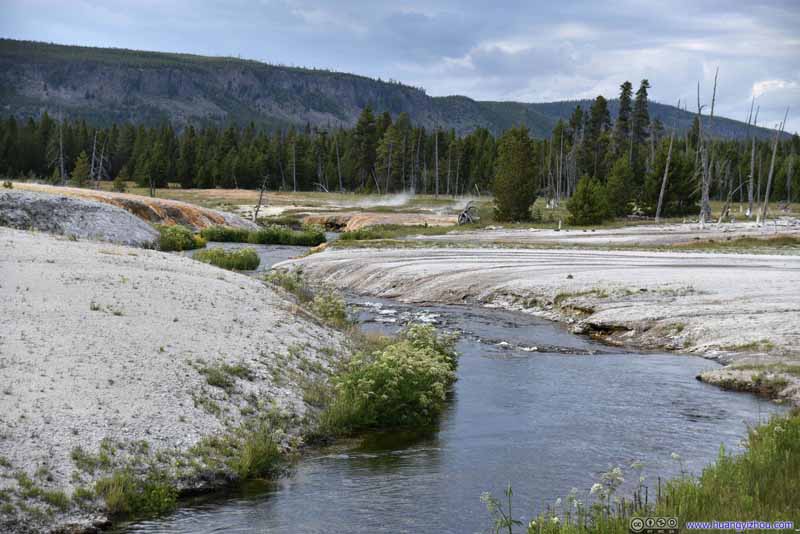
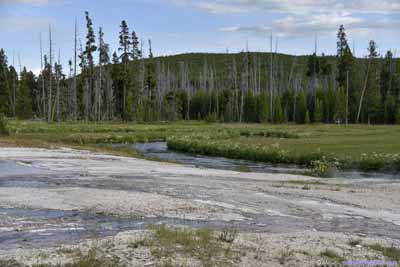
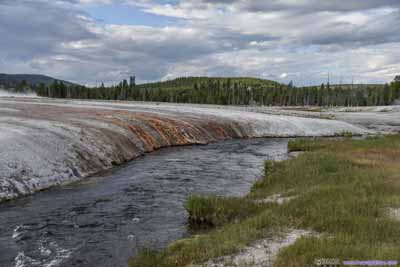
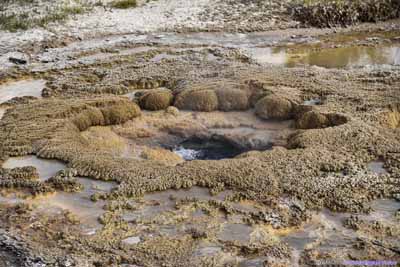
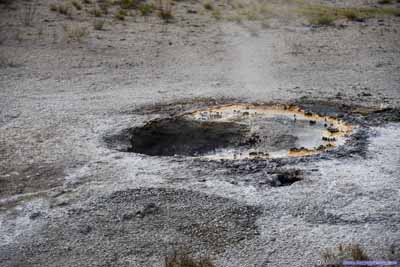
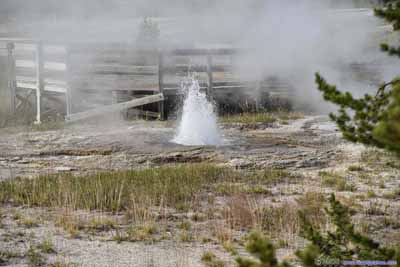
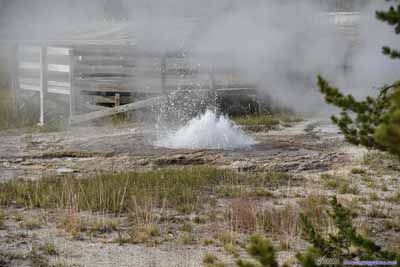
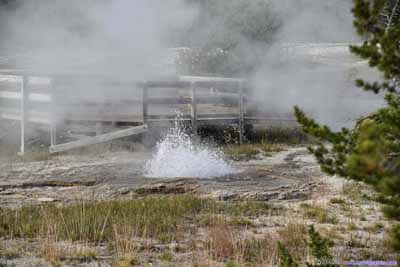
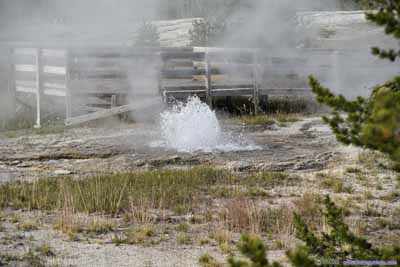
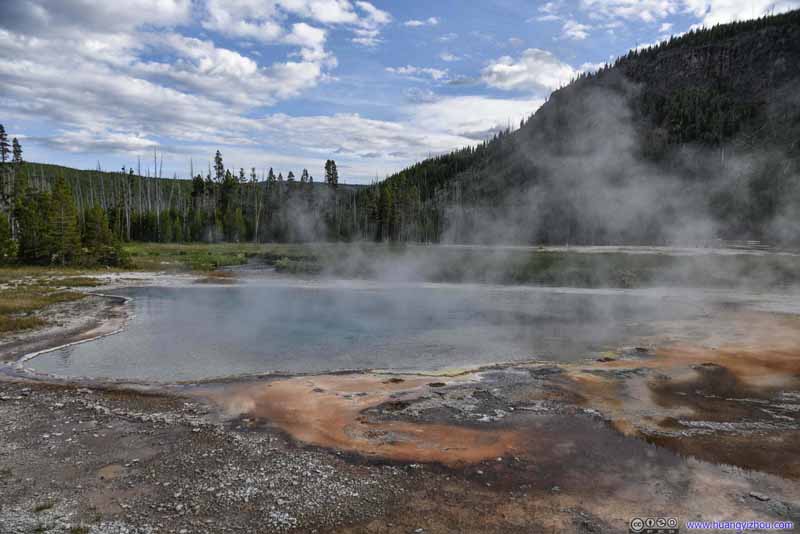
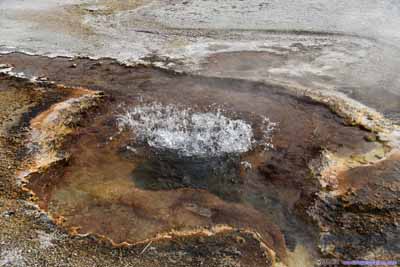
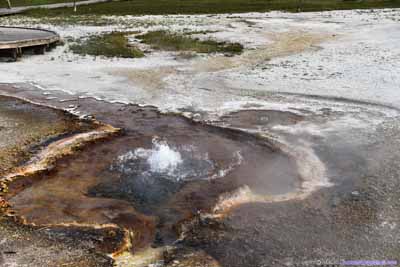
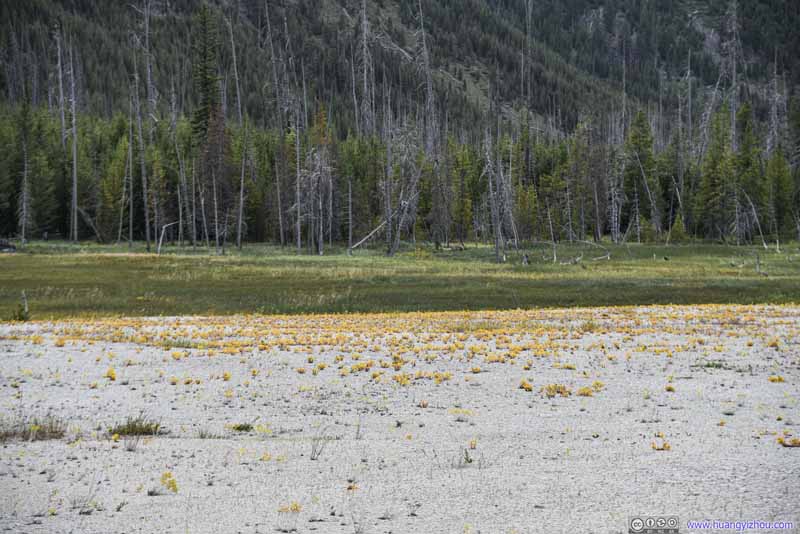
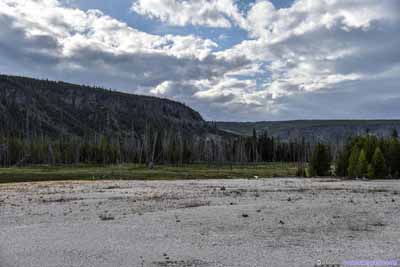
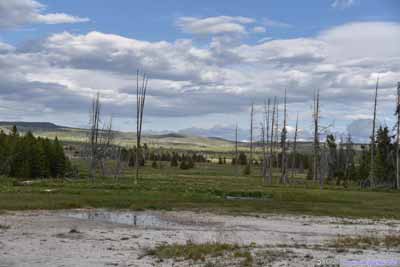
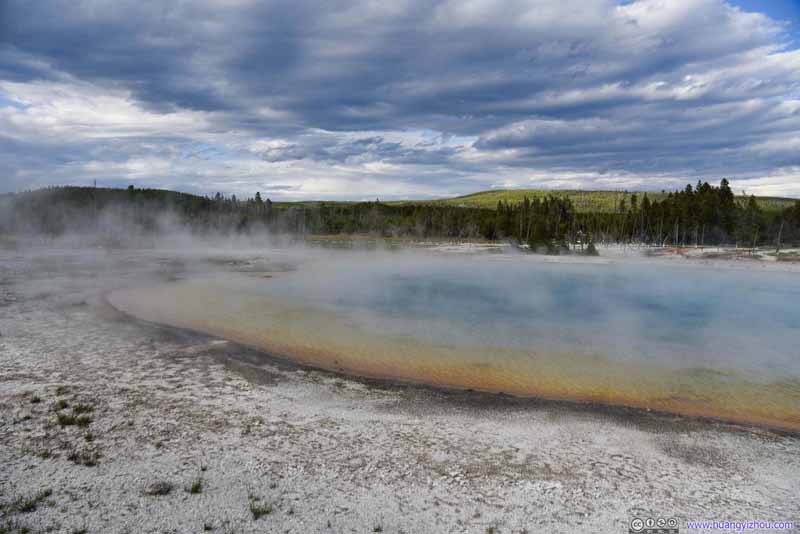
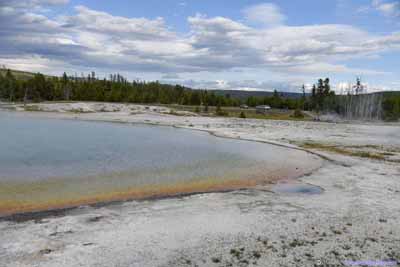
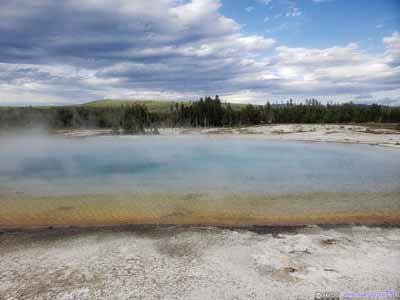
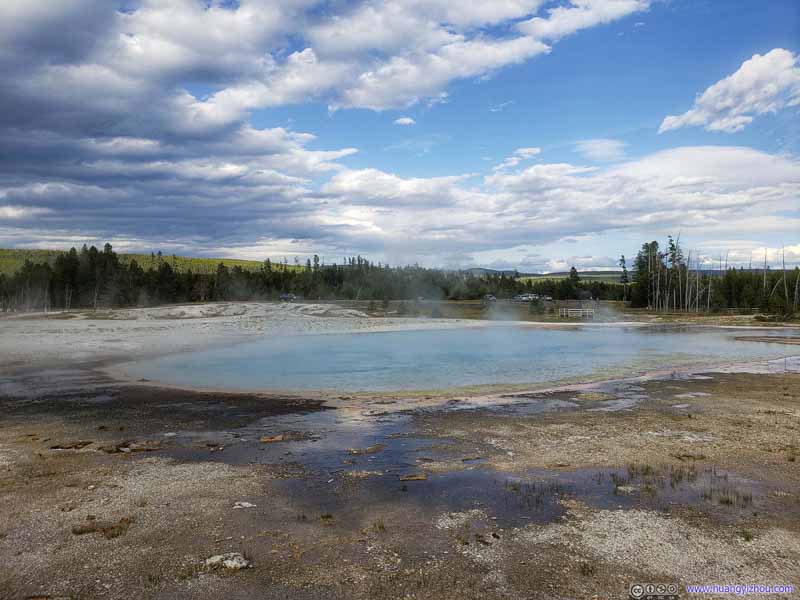
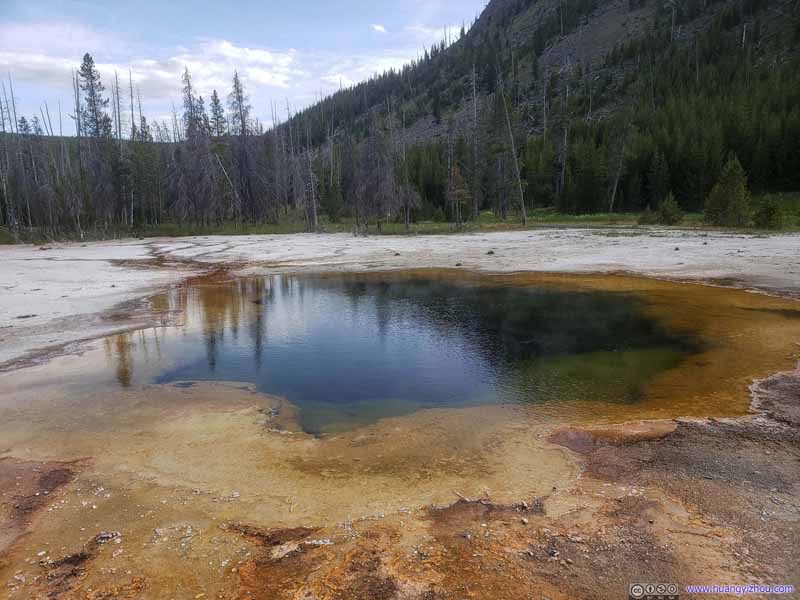
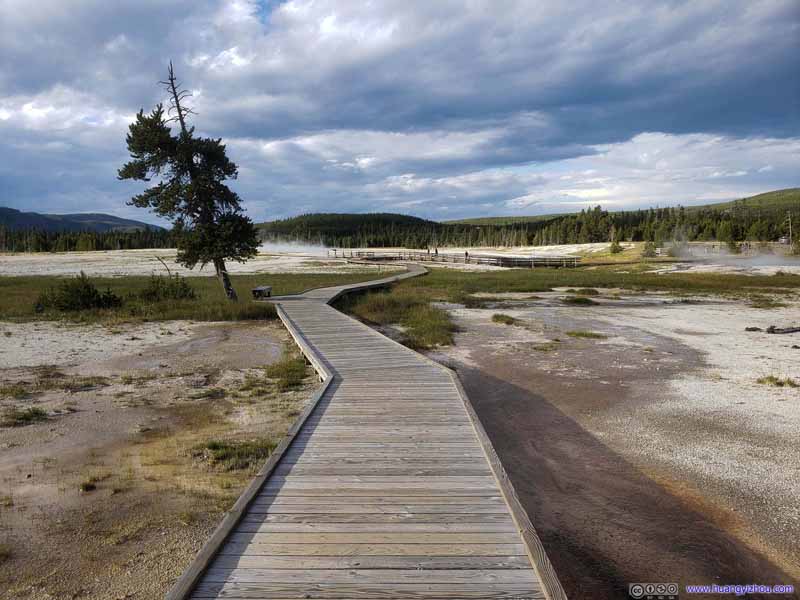
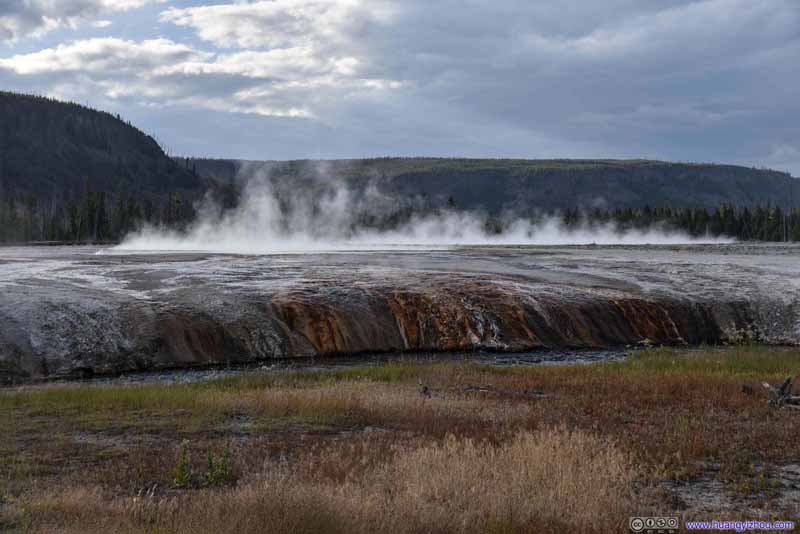
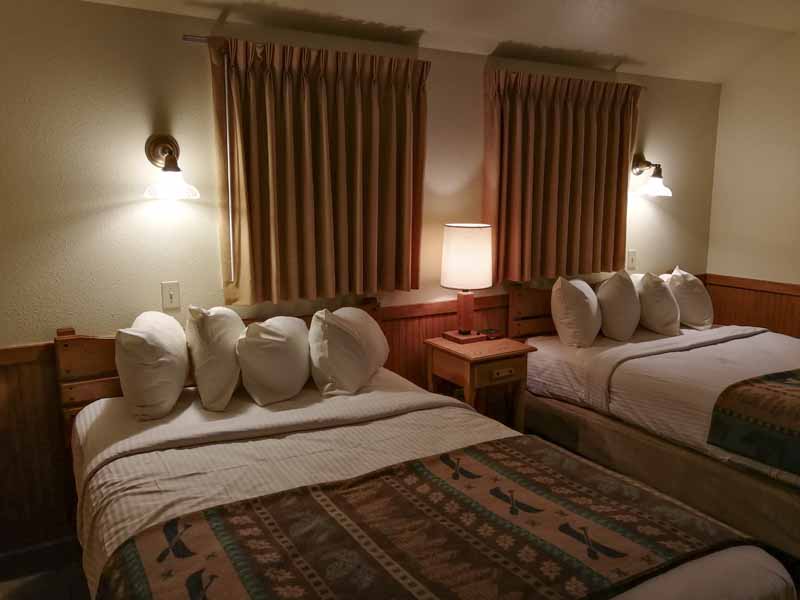
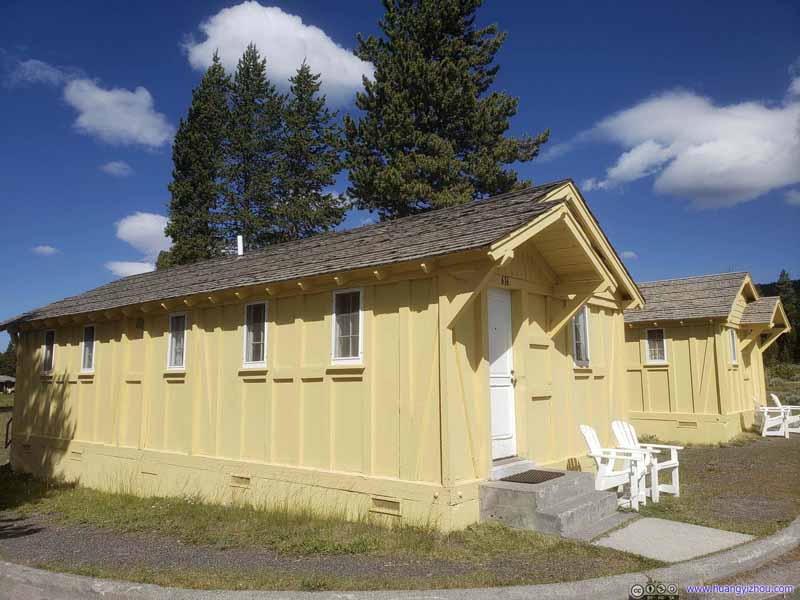
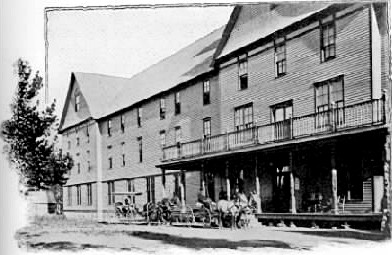
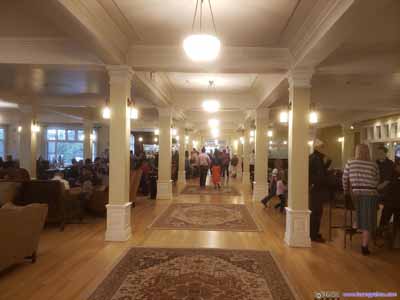

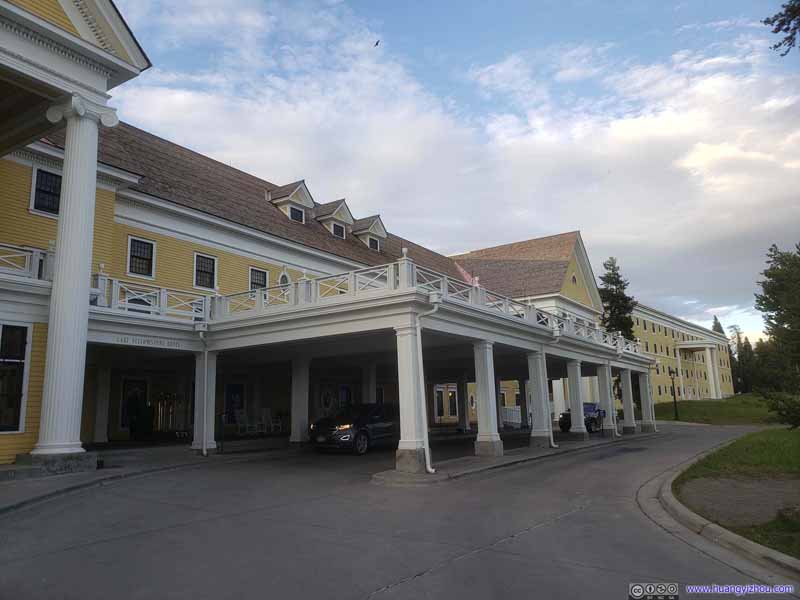
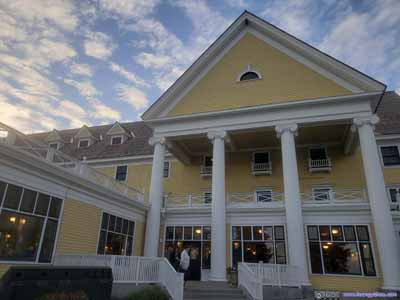
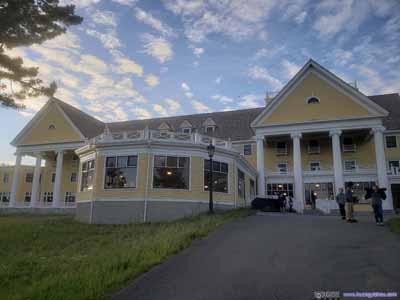
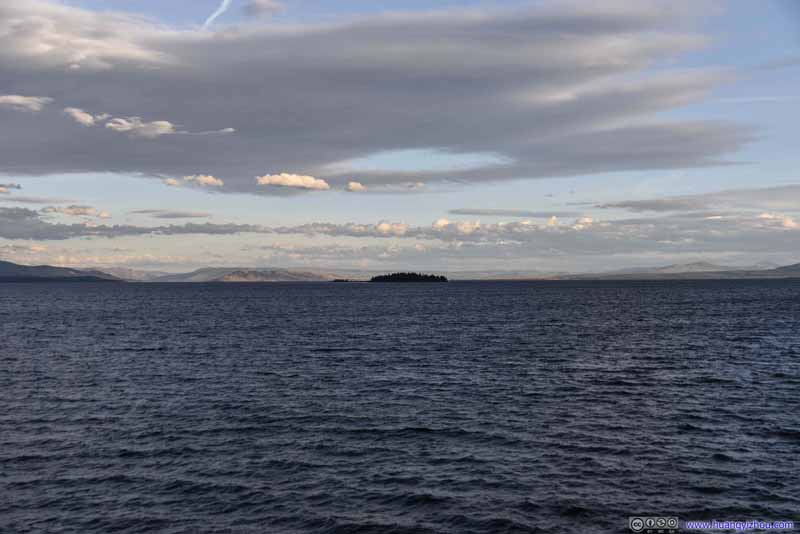

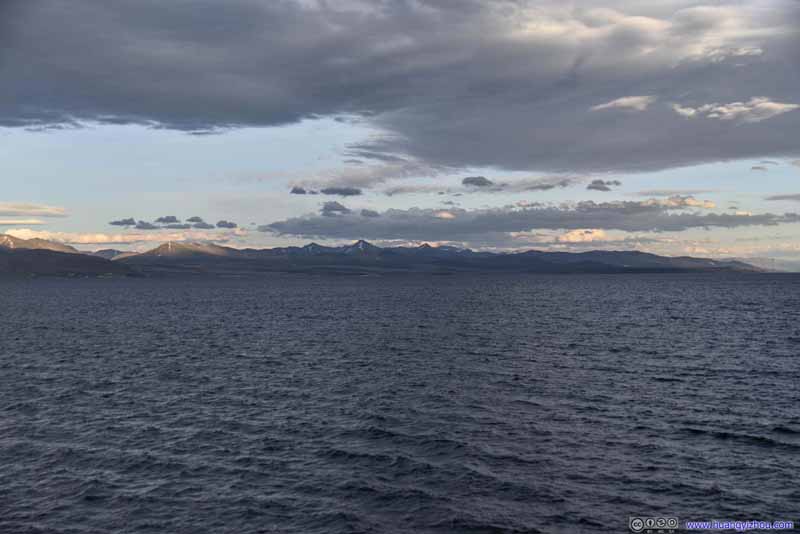
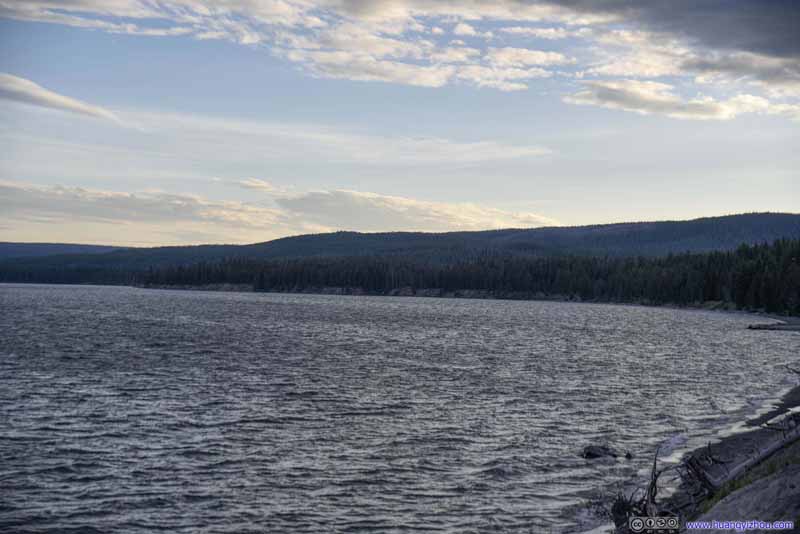
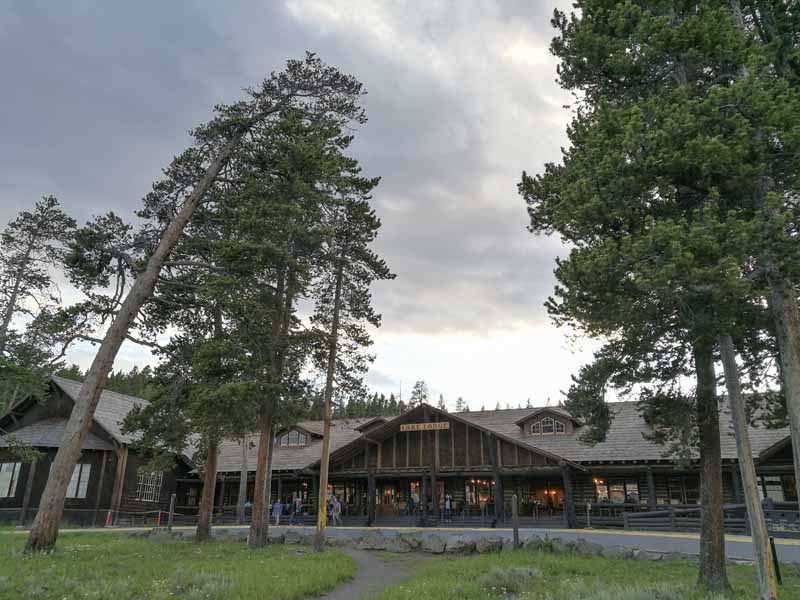
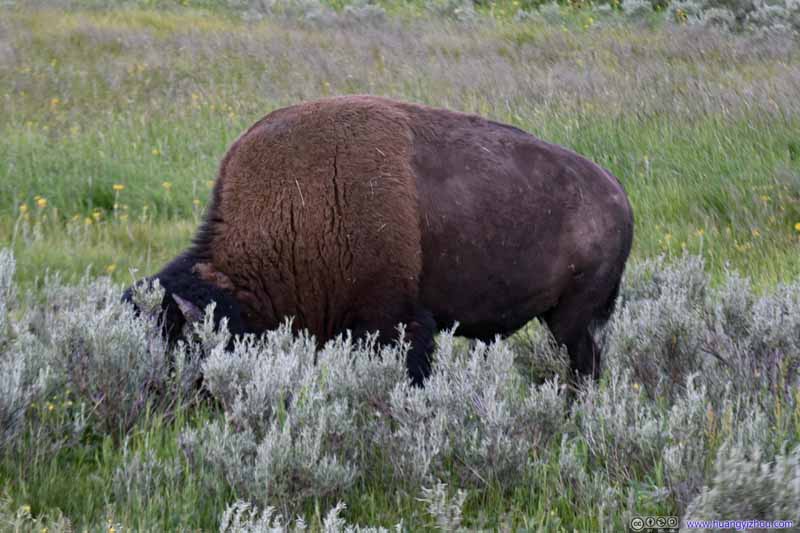
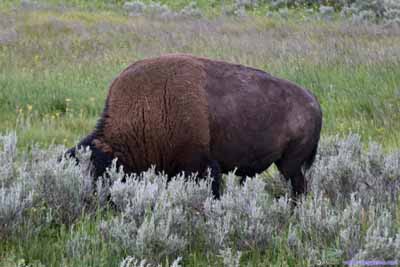
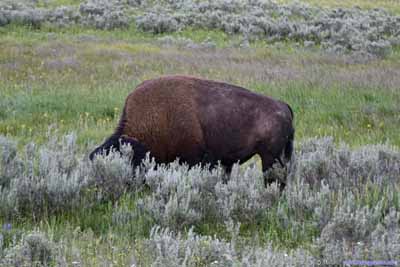
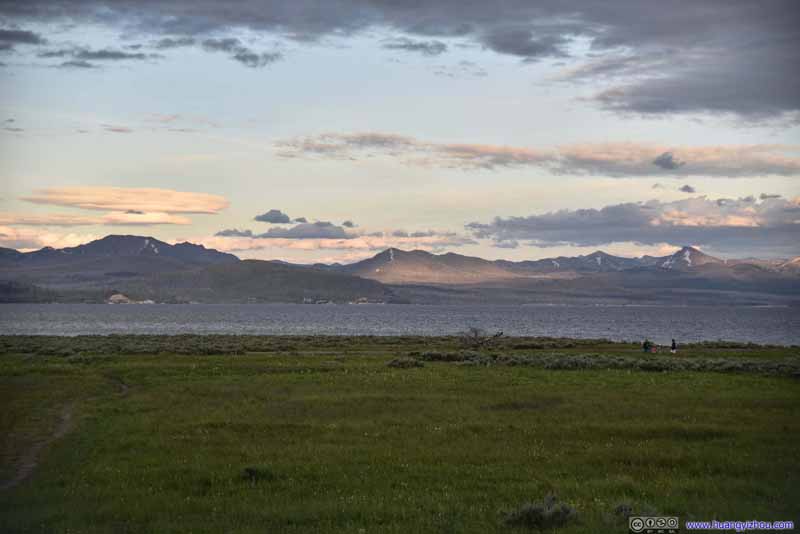
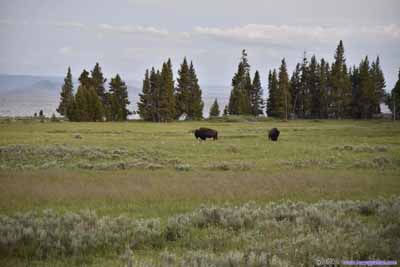
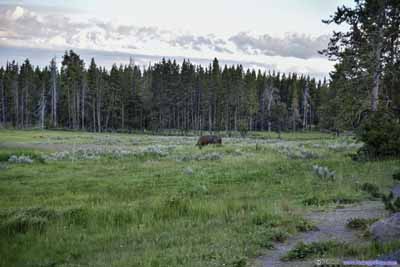
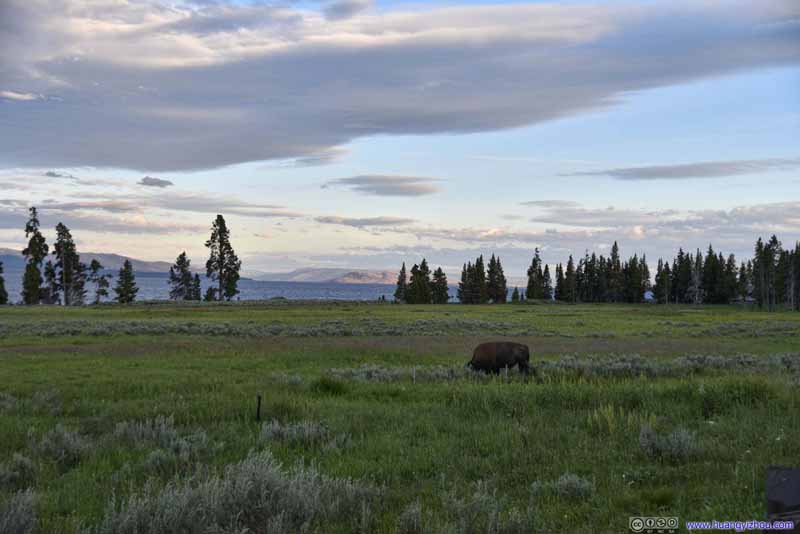
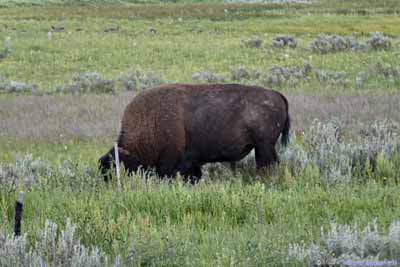
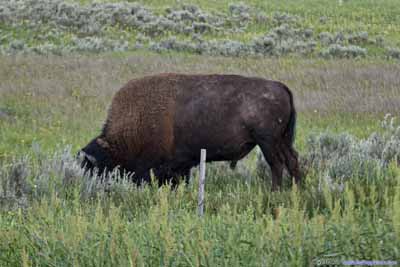
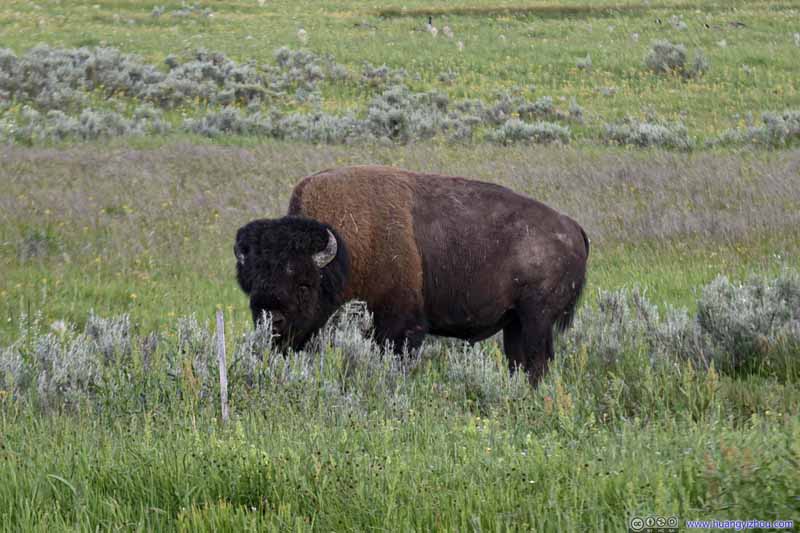
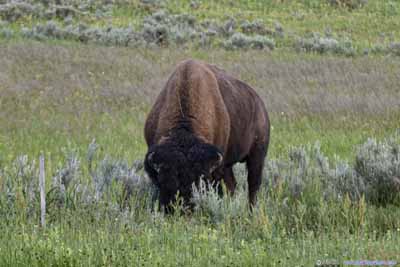
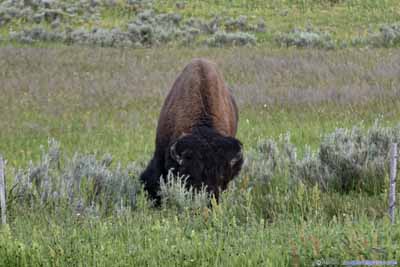
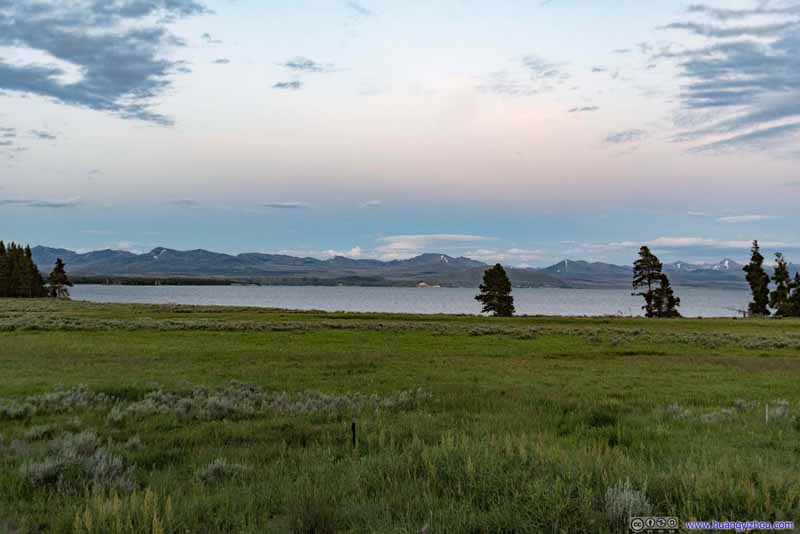
Nice blog! I saw a lot of new things and found out. I am really thankful for the author for sharing such a wonderful blog. Please keep sharing.